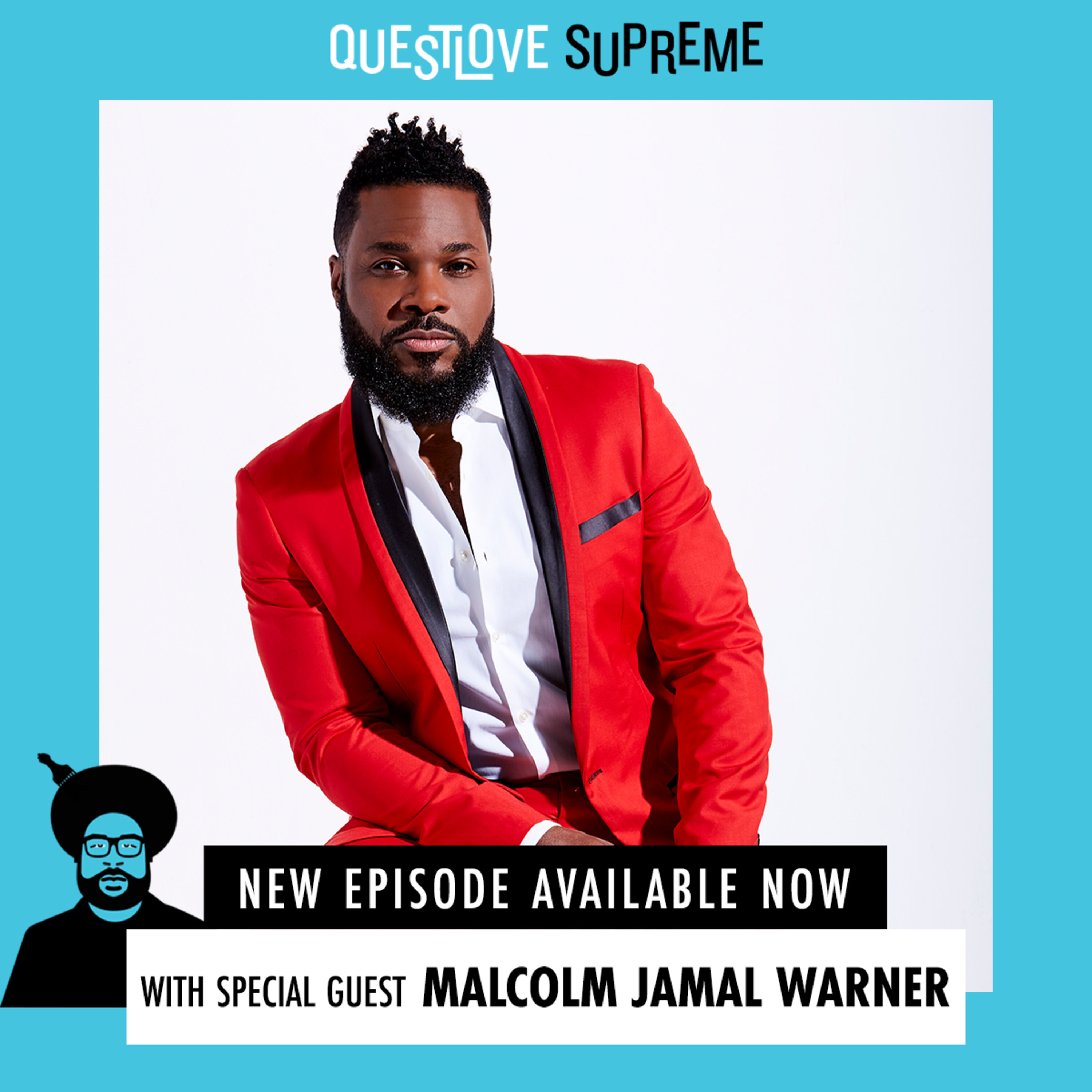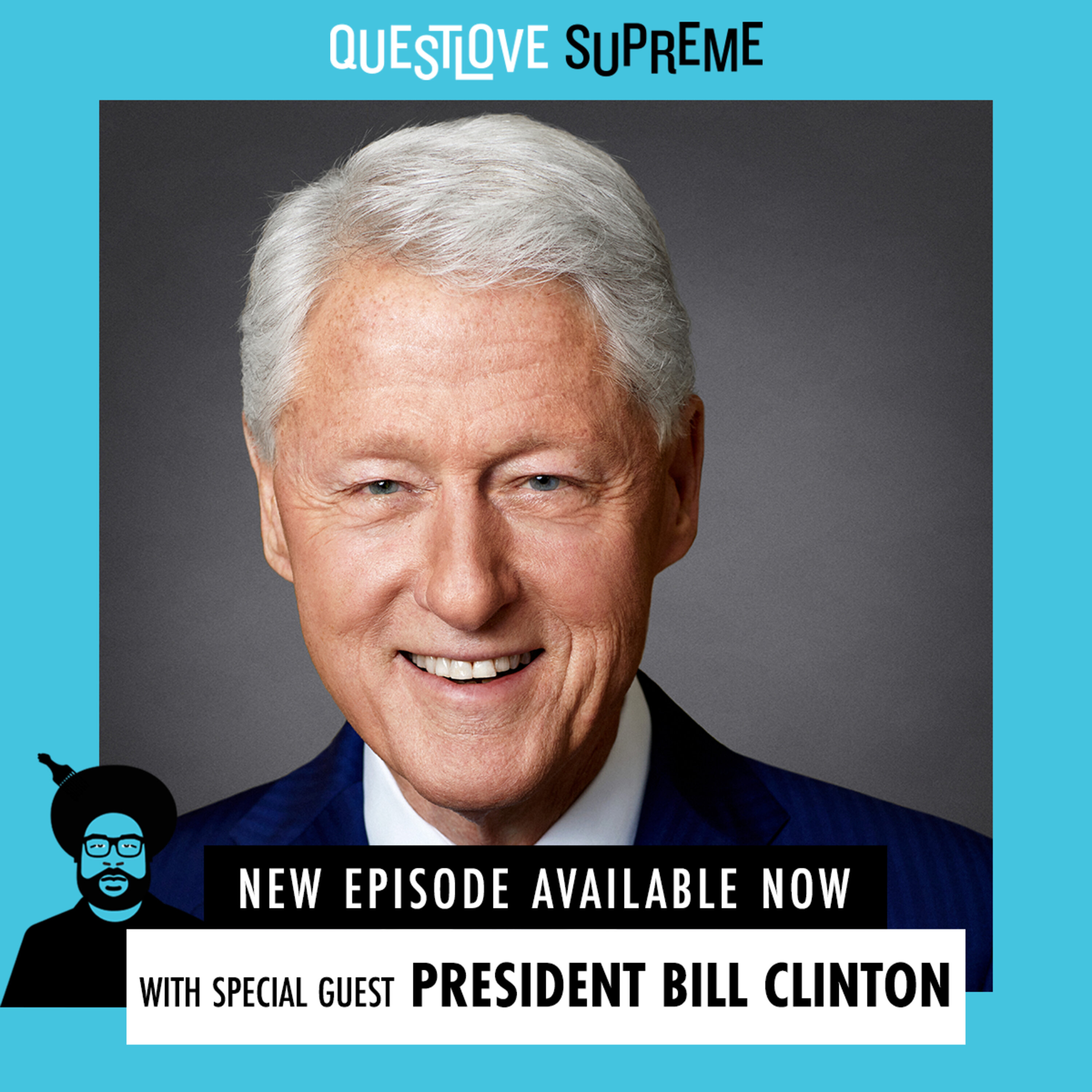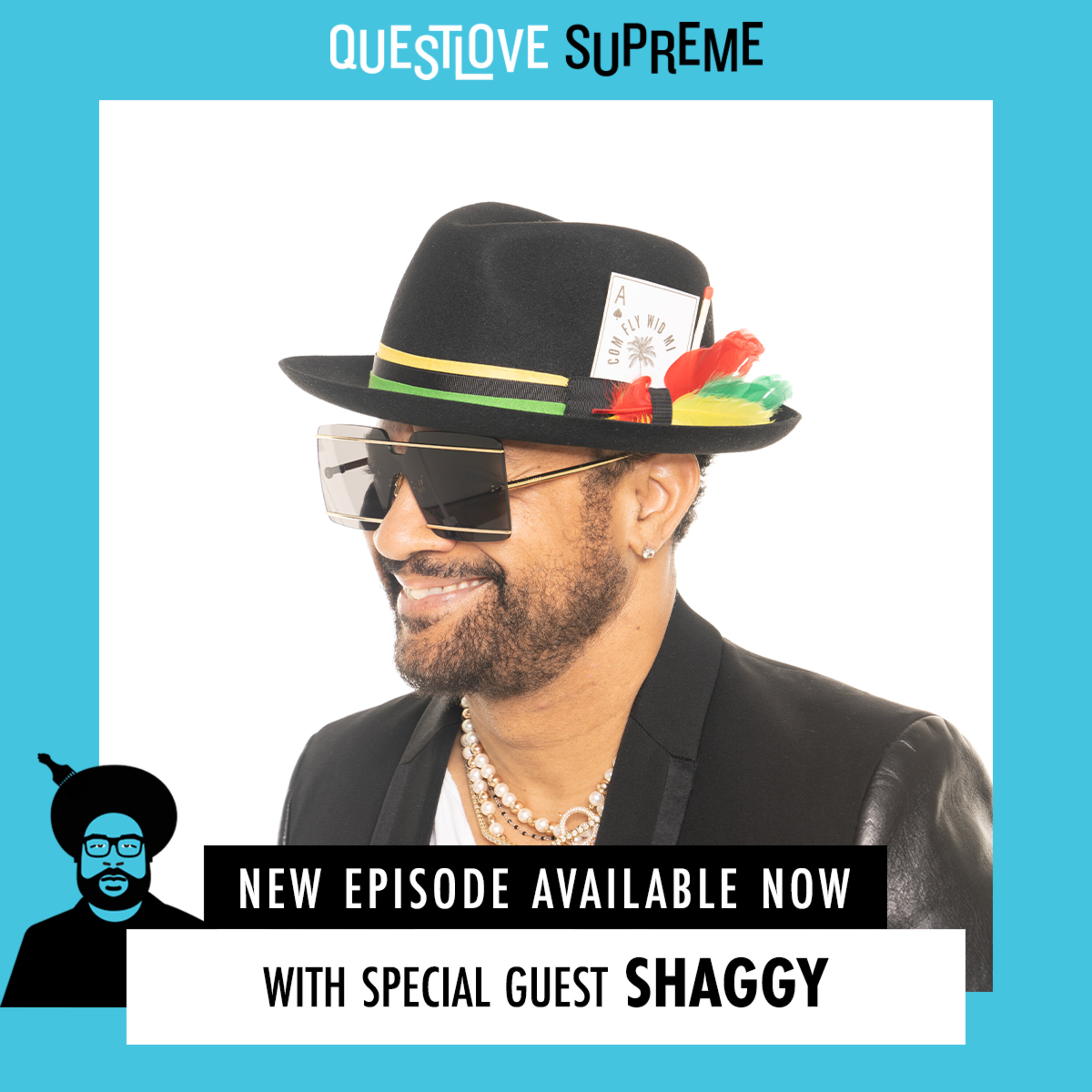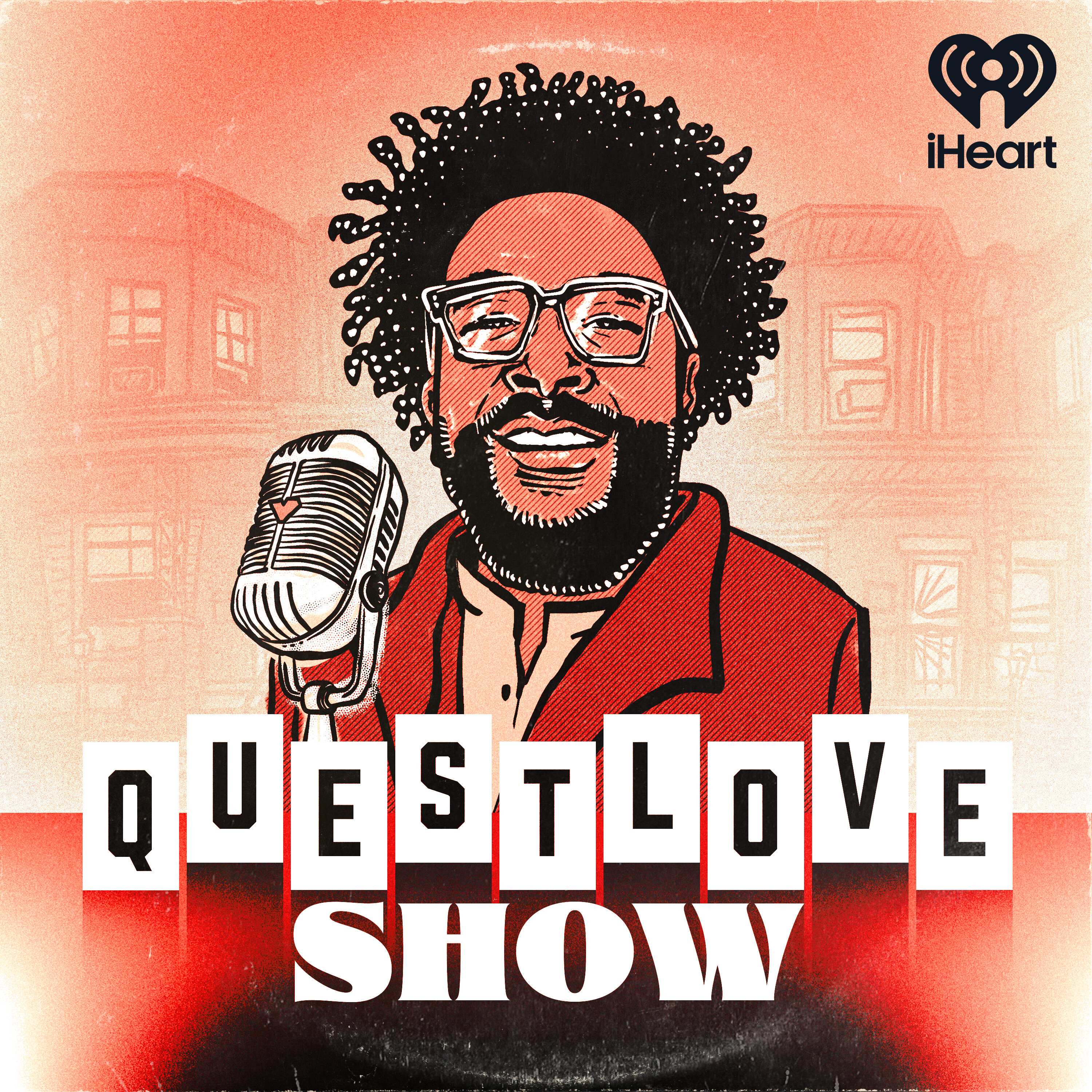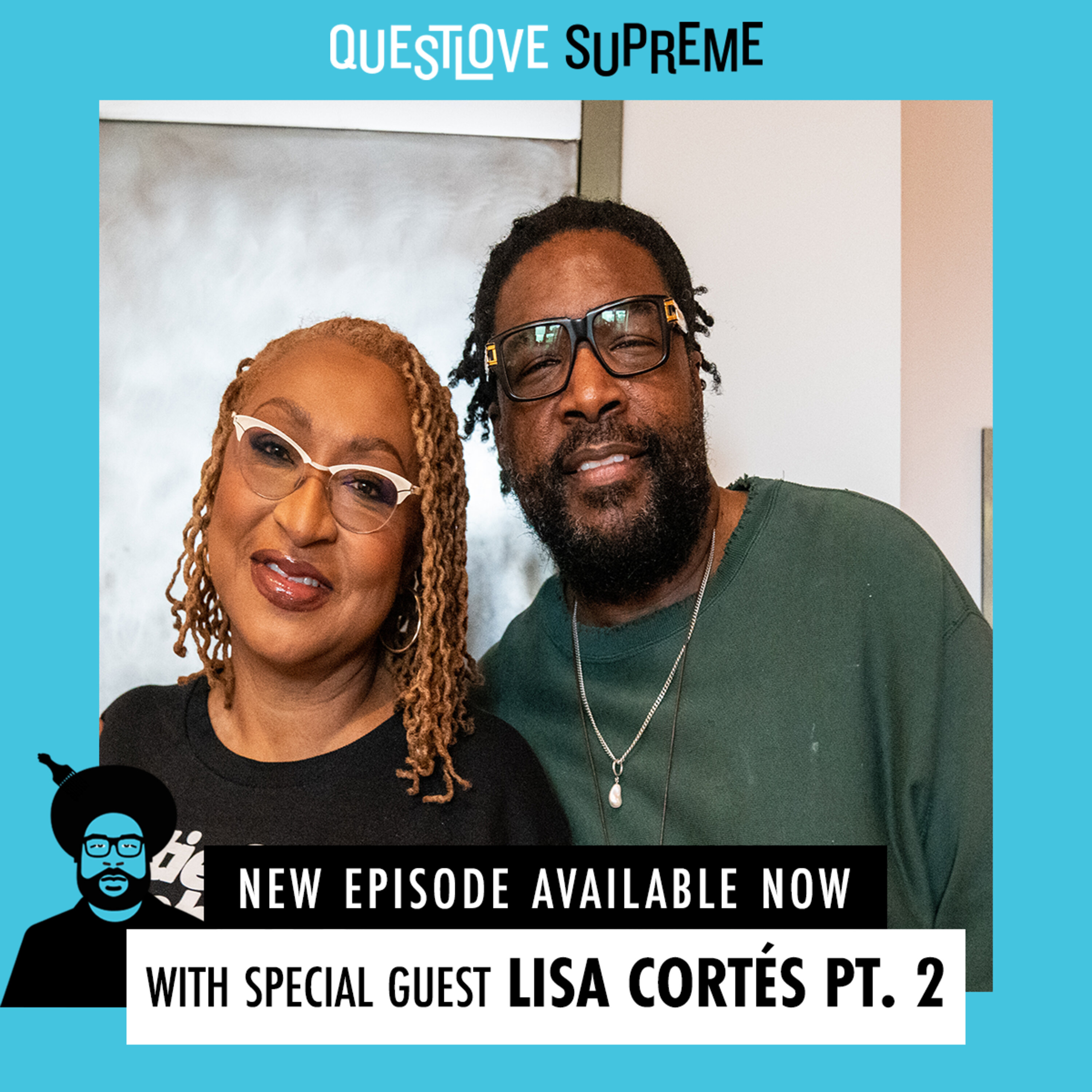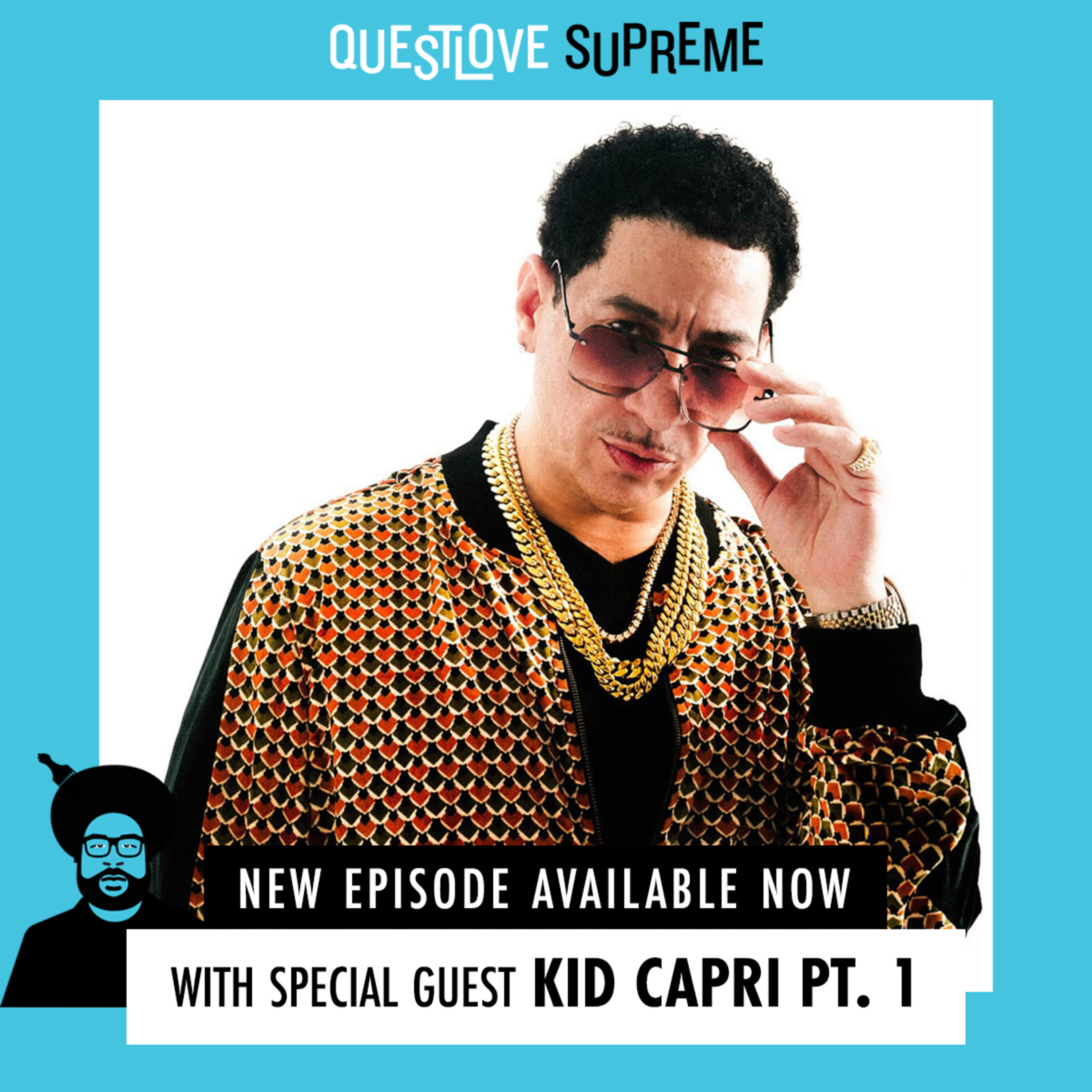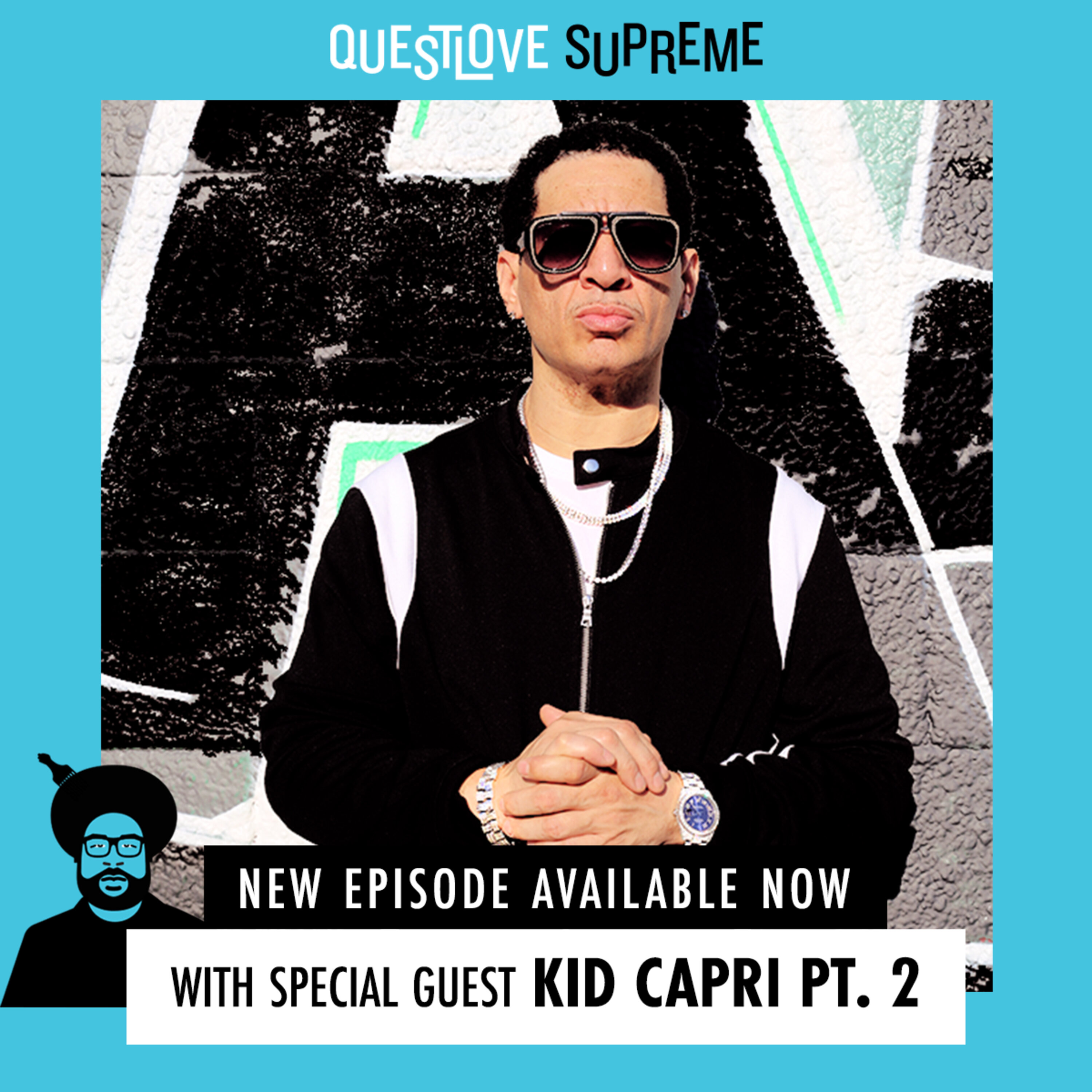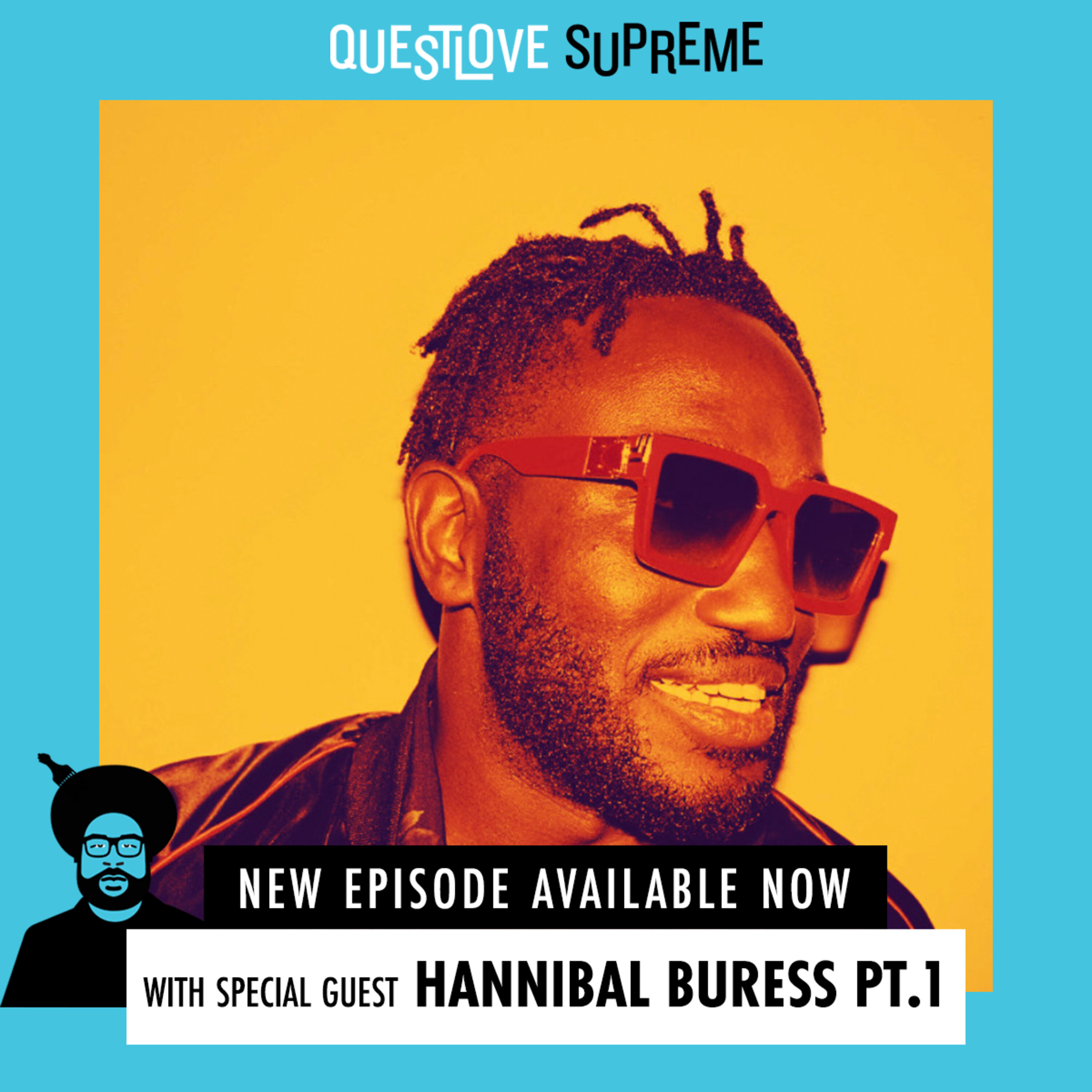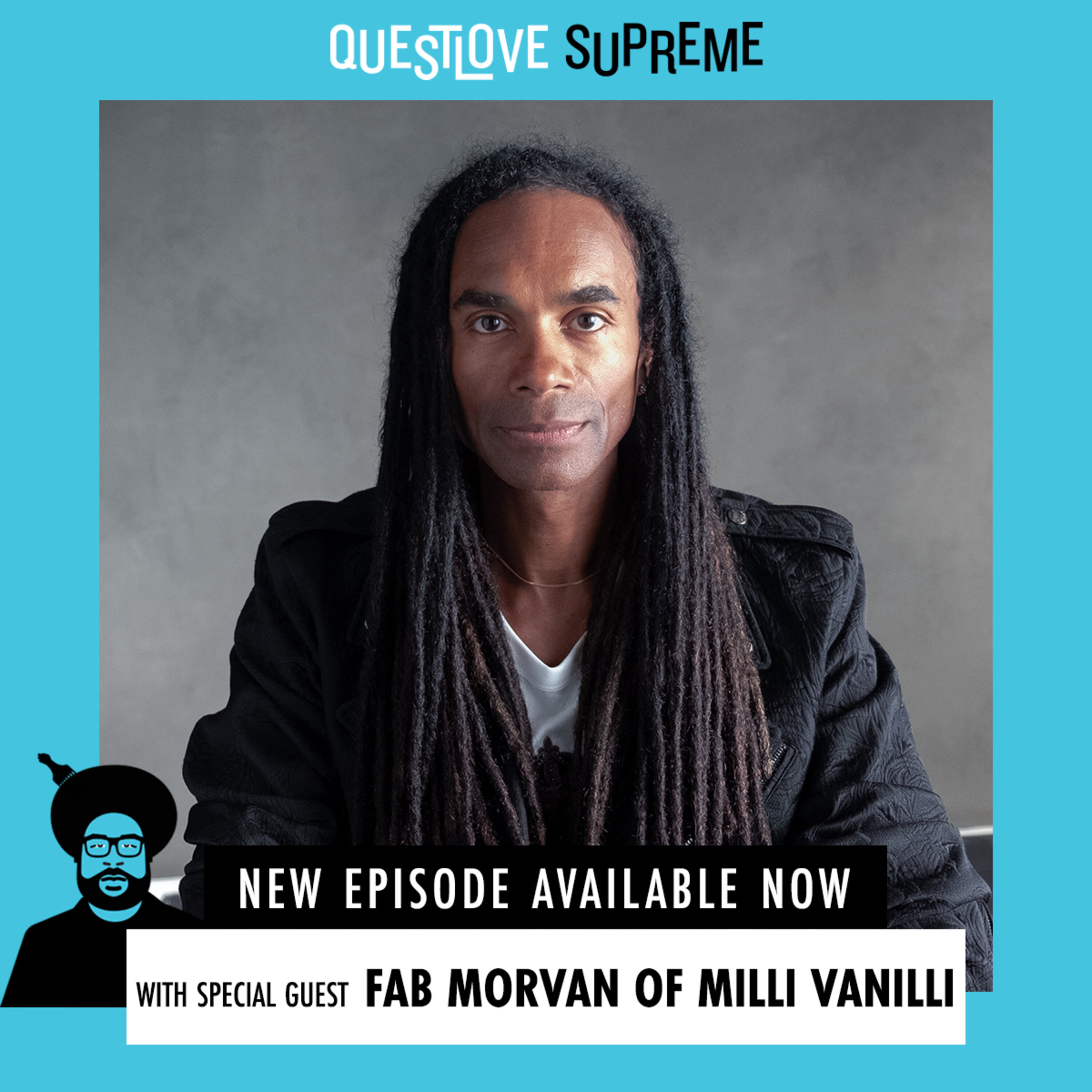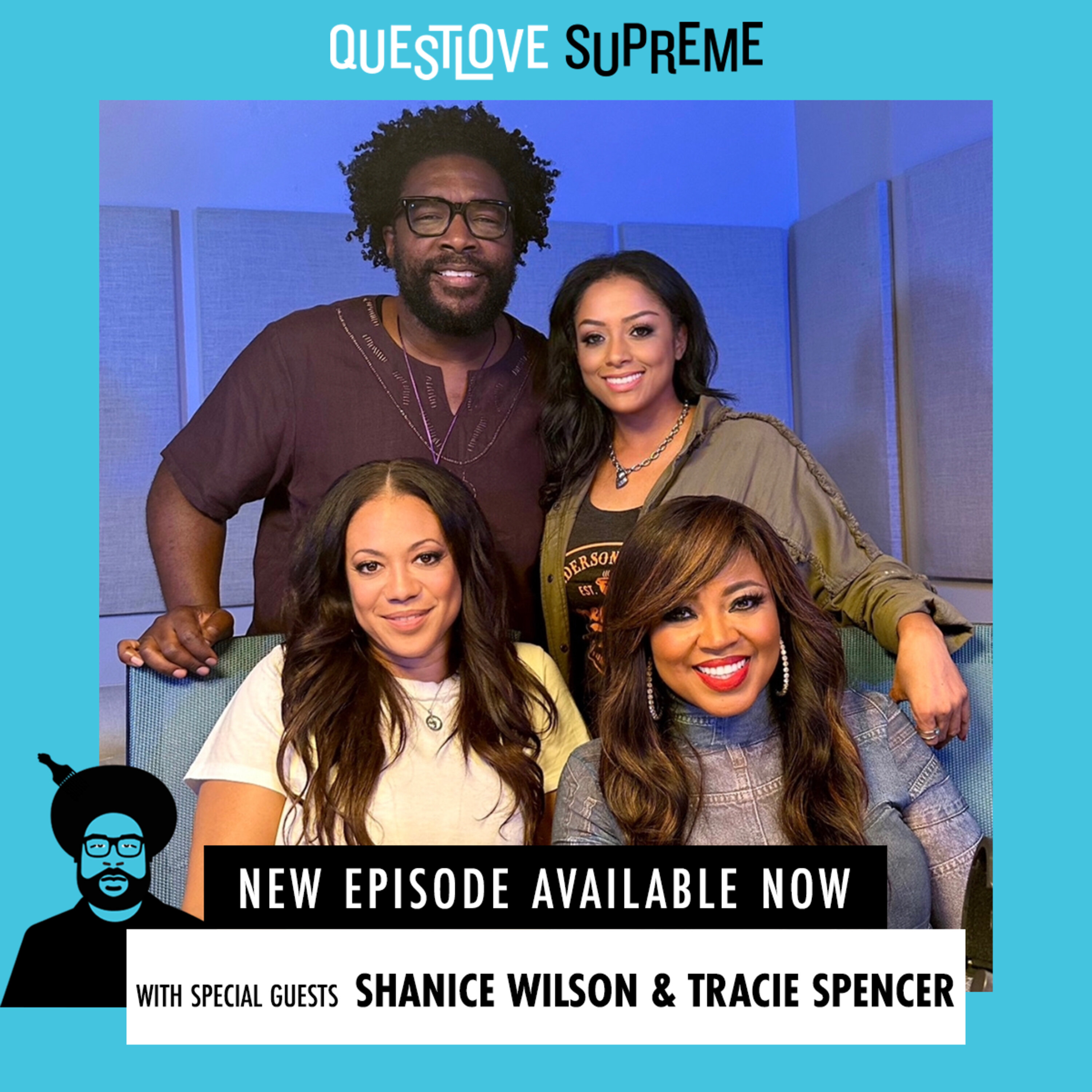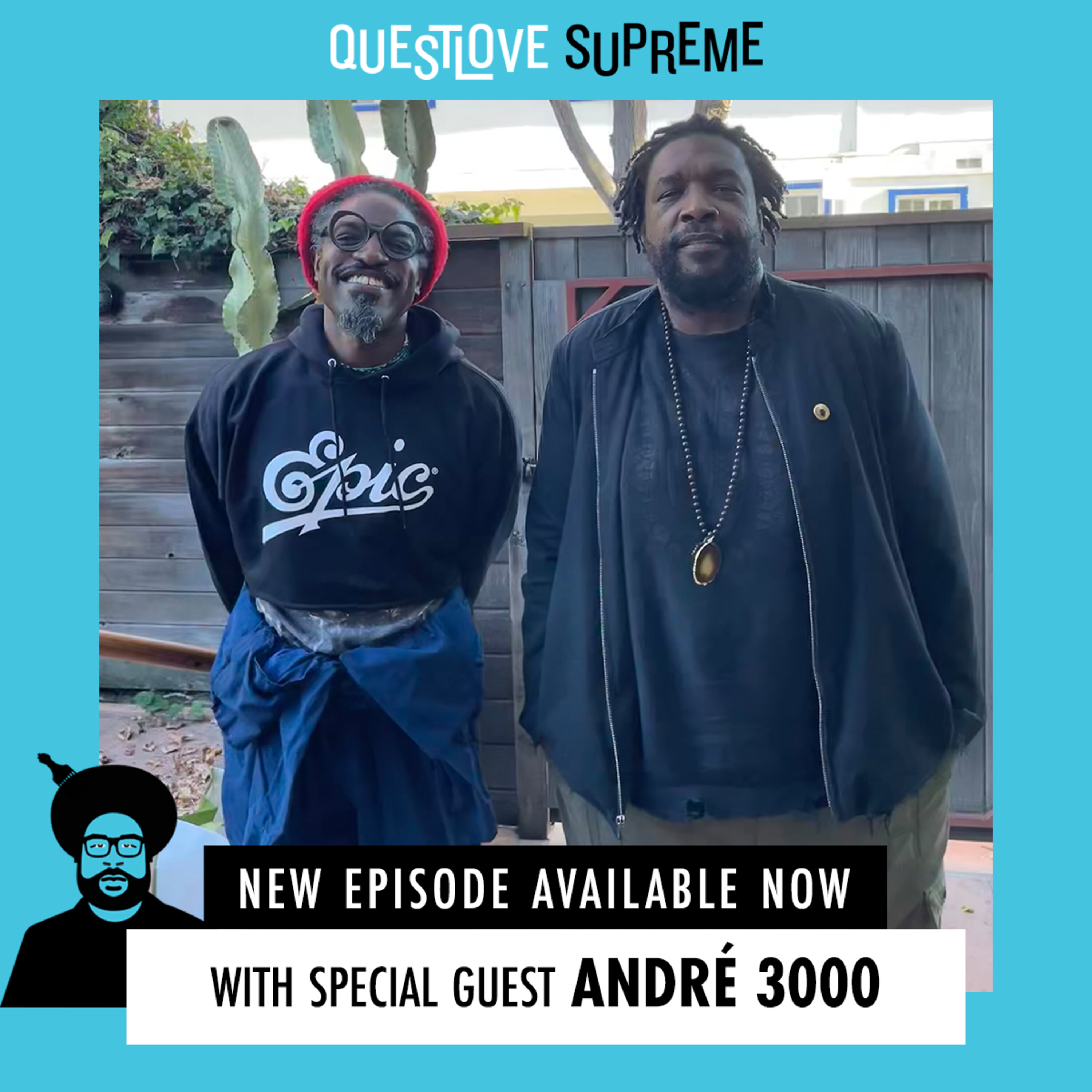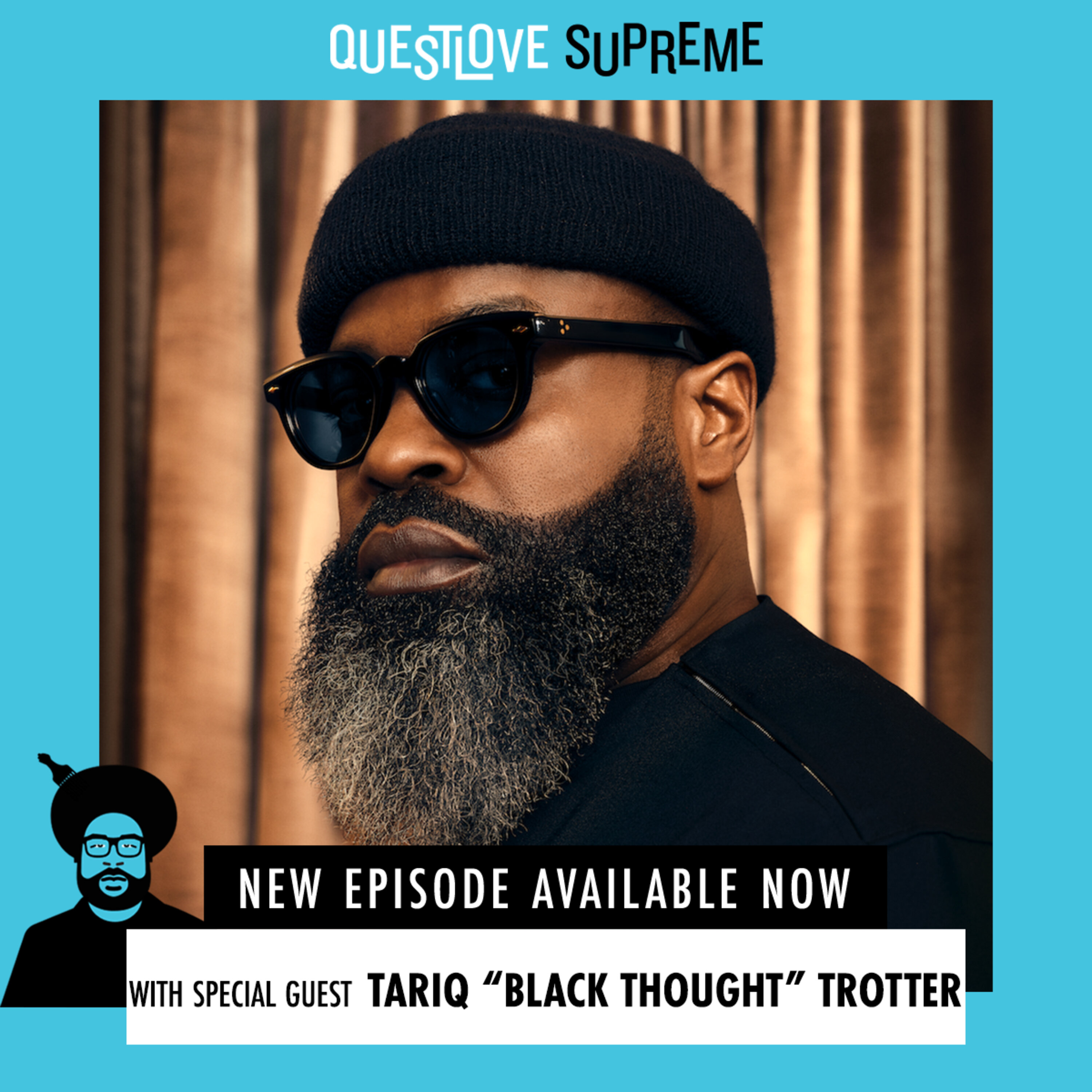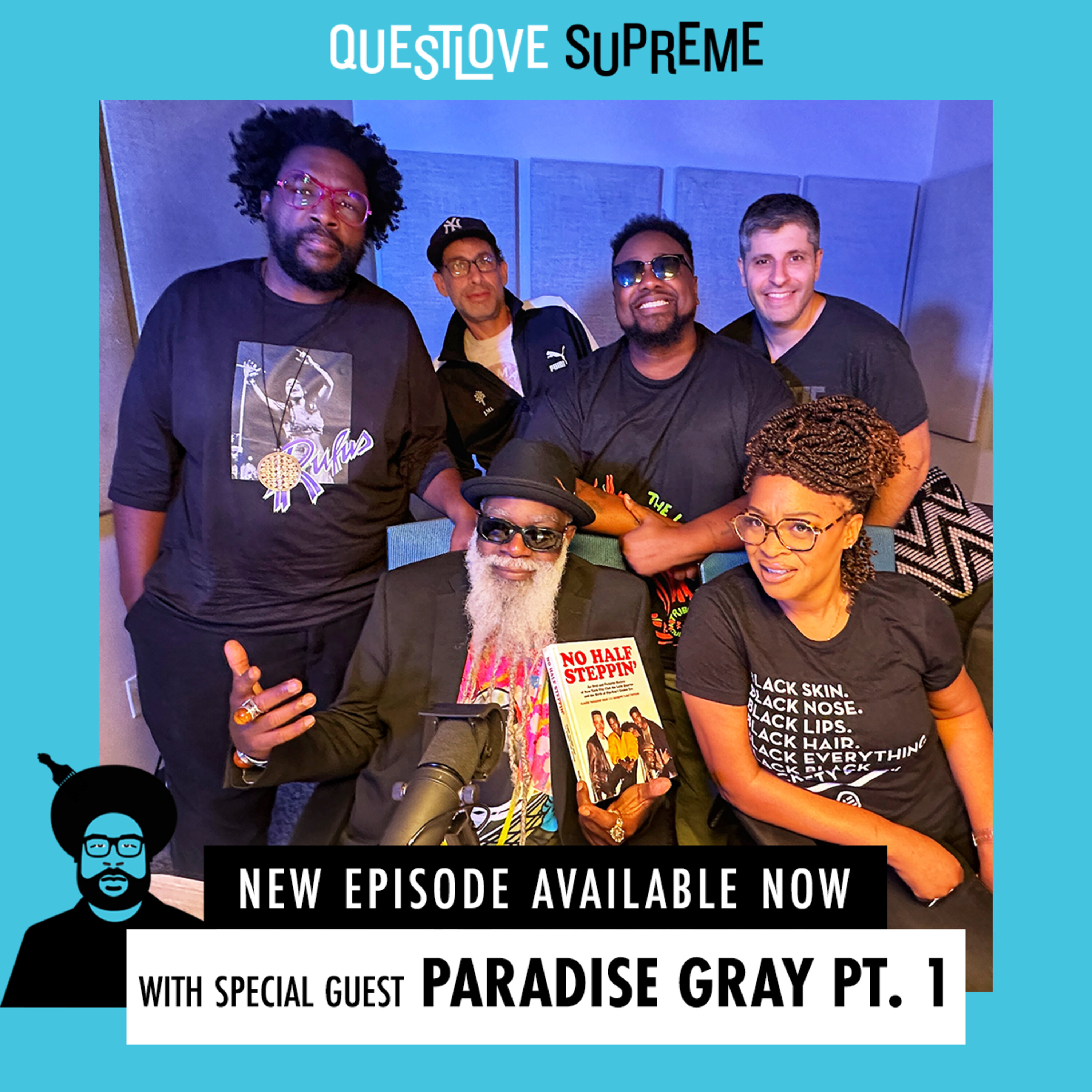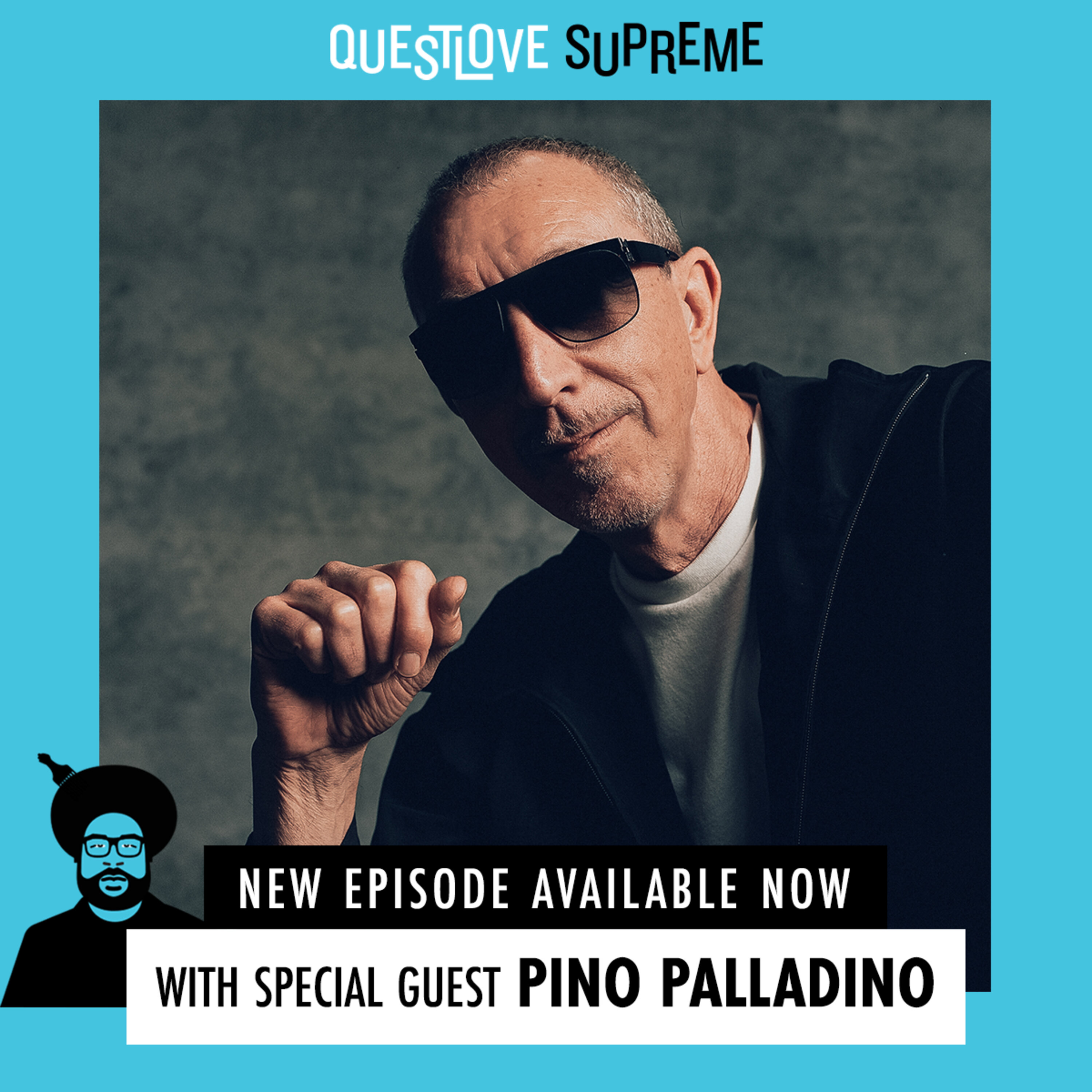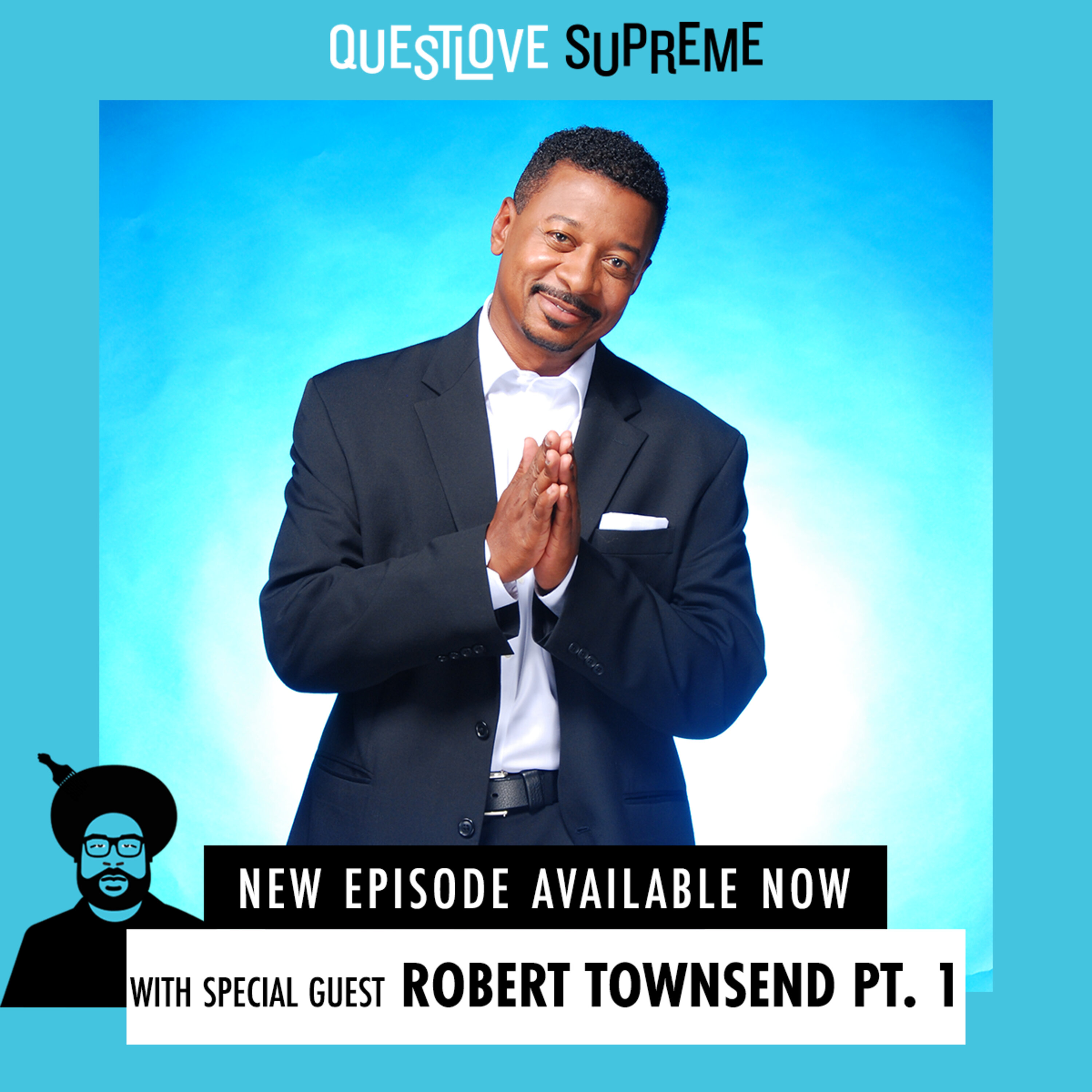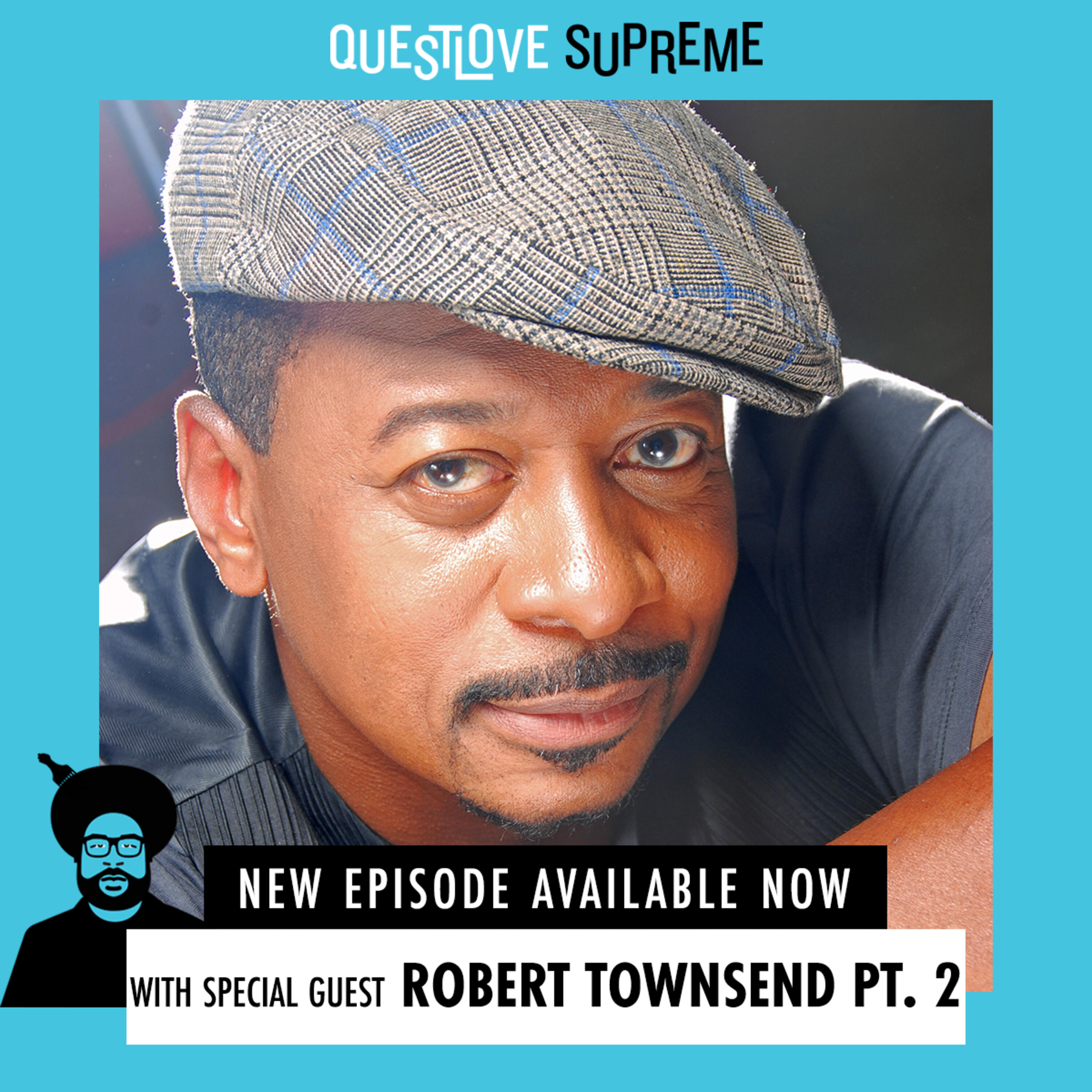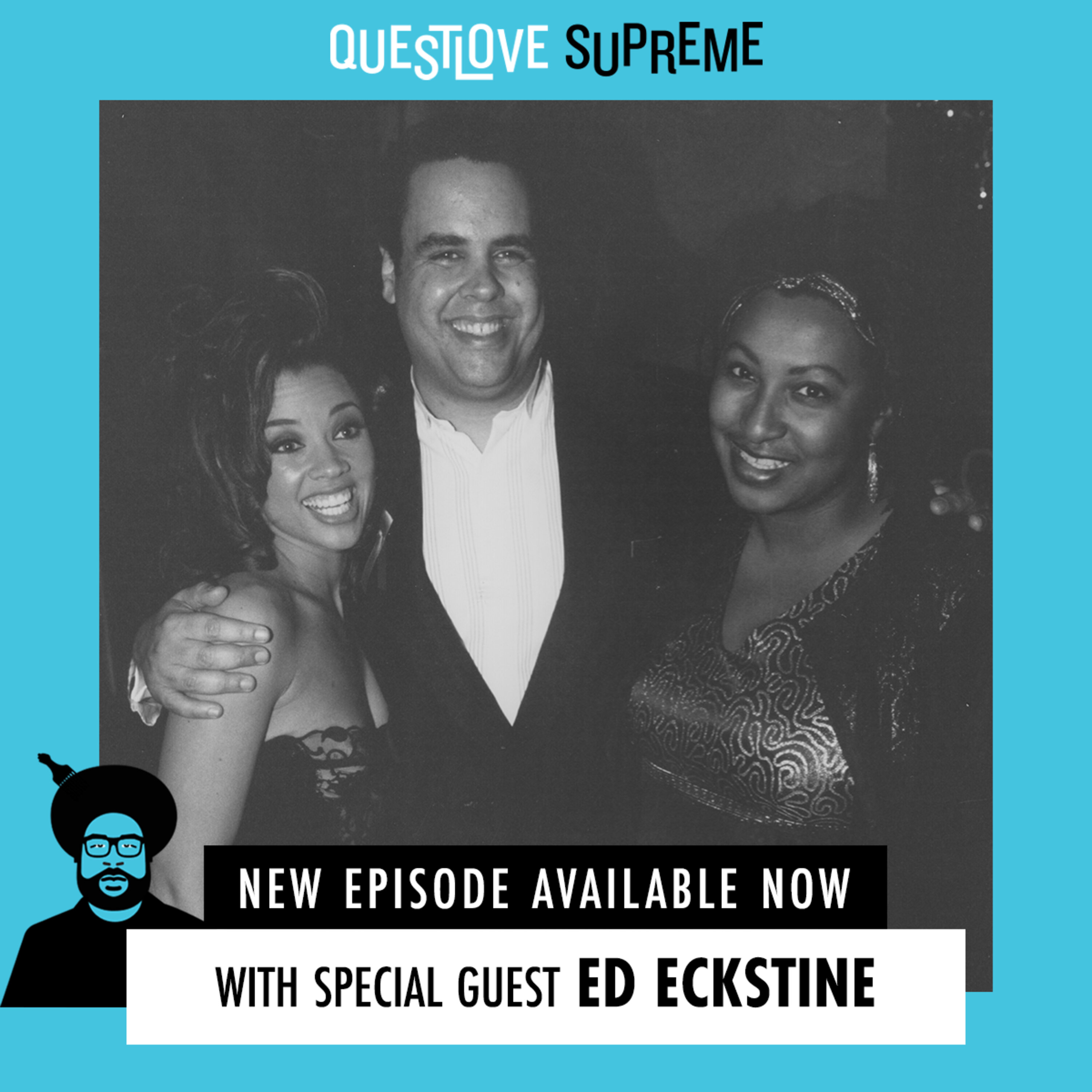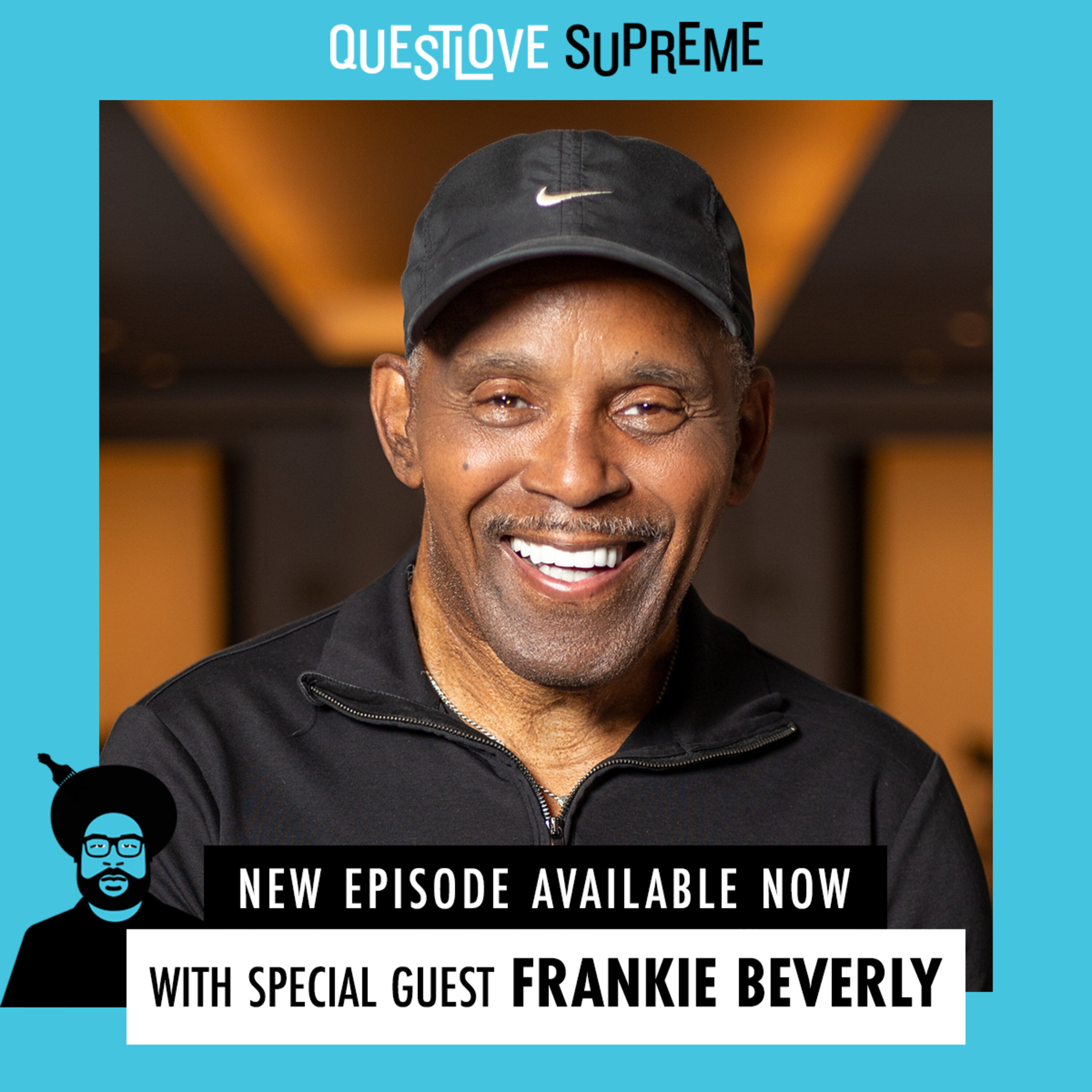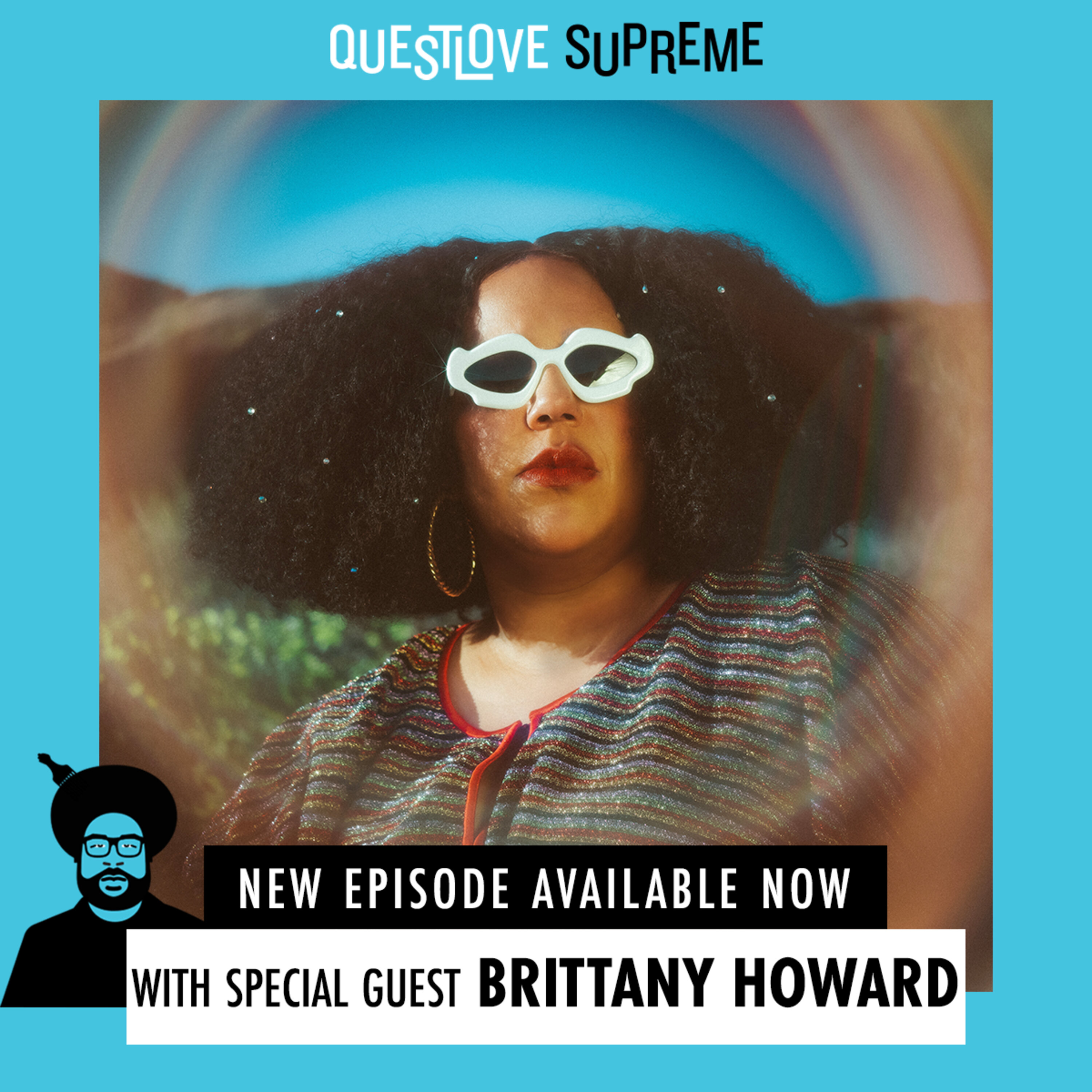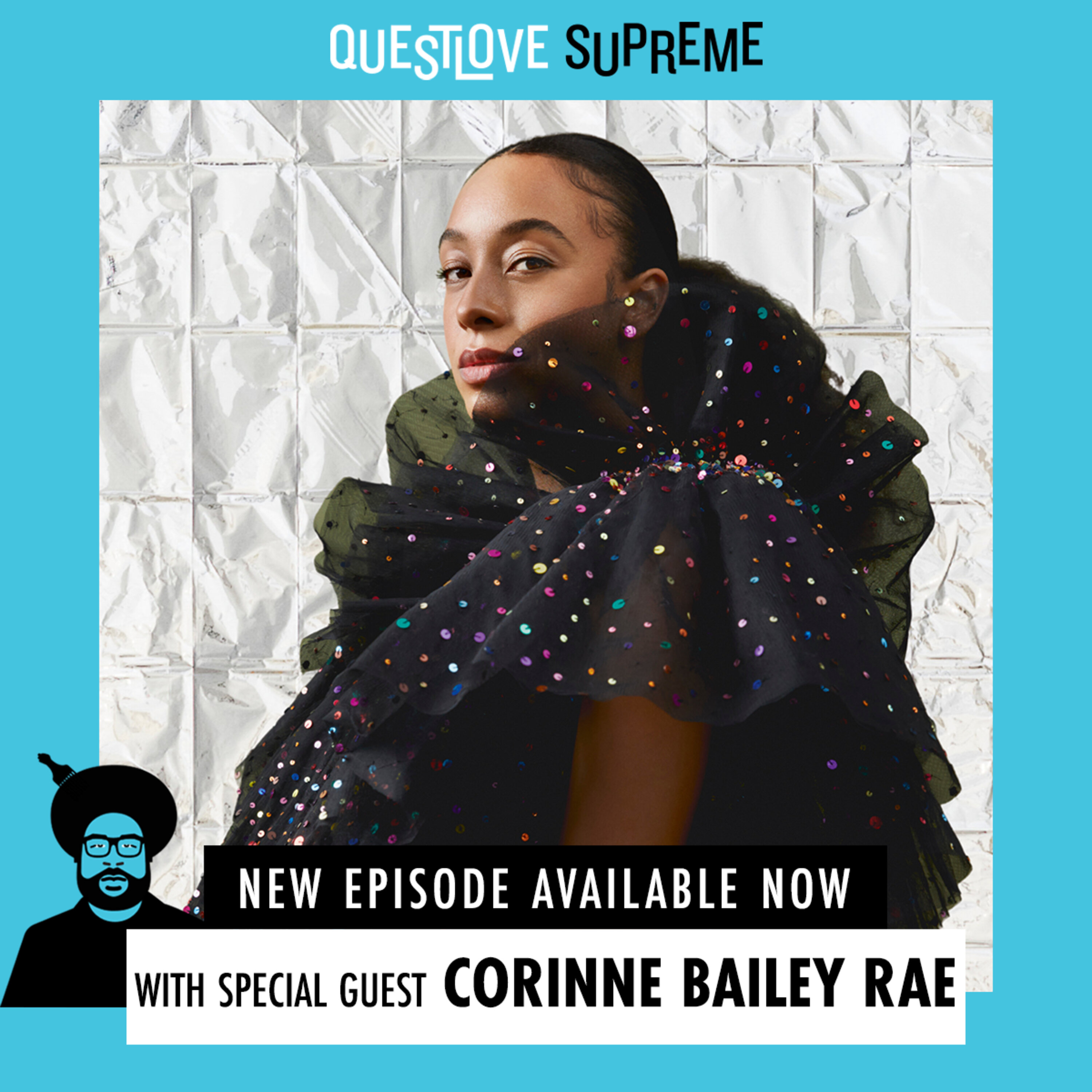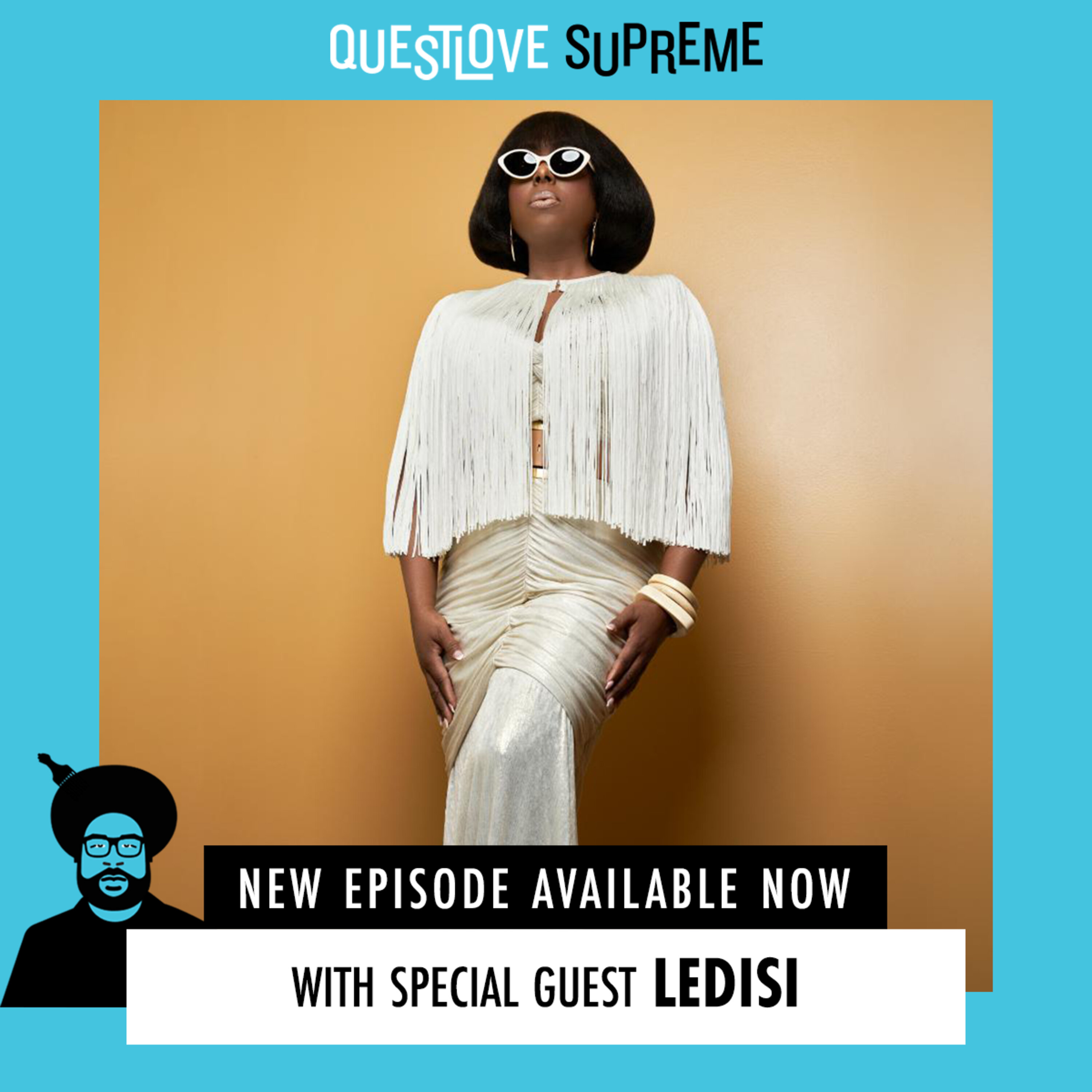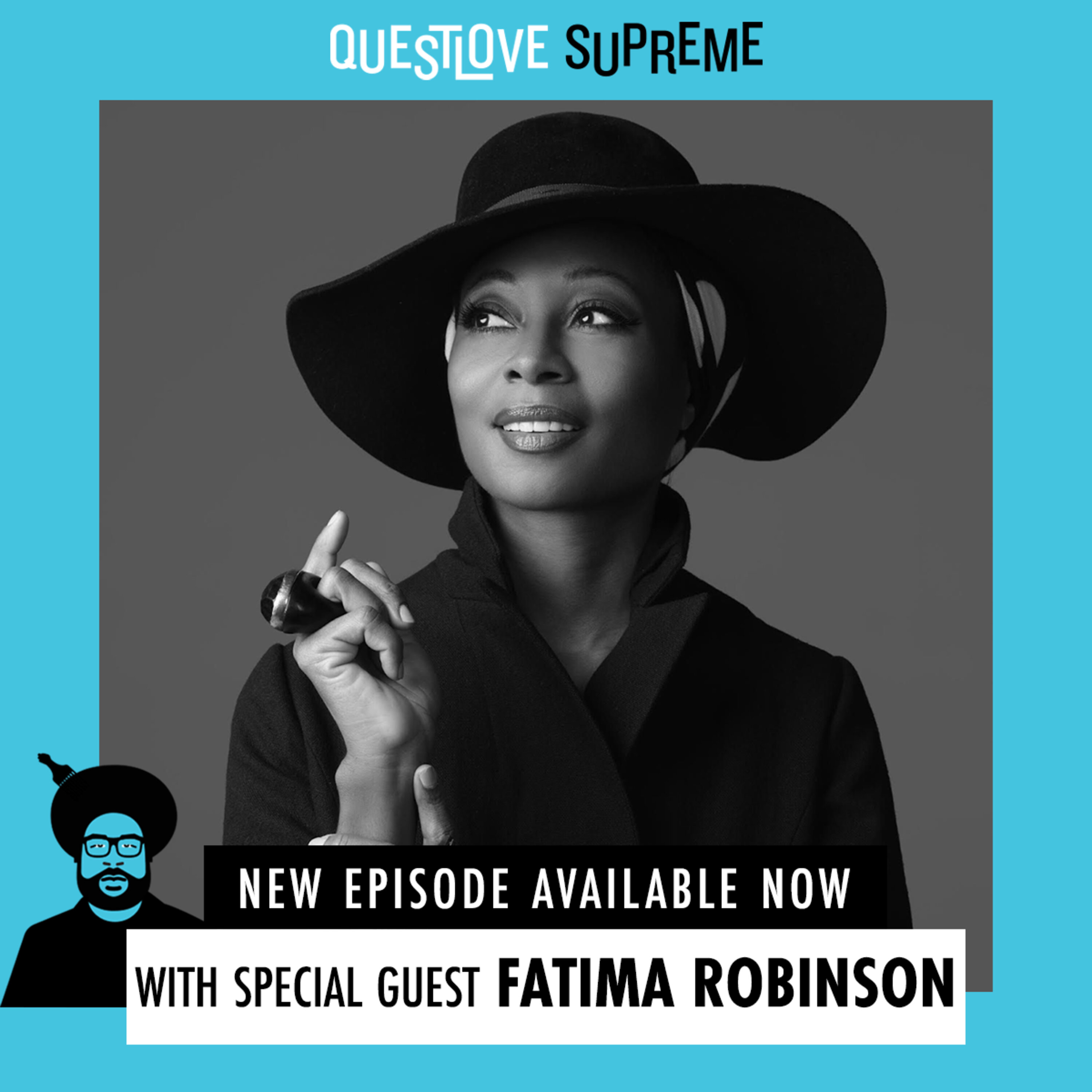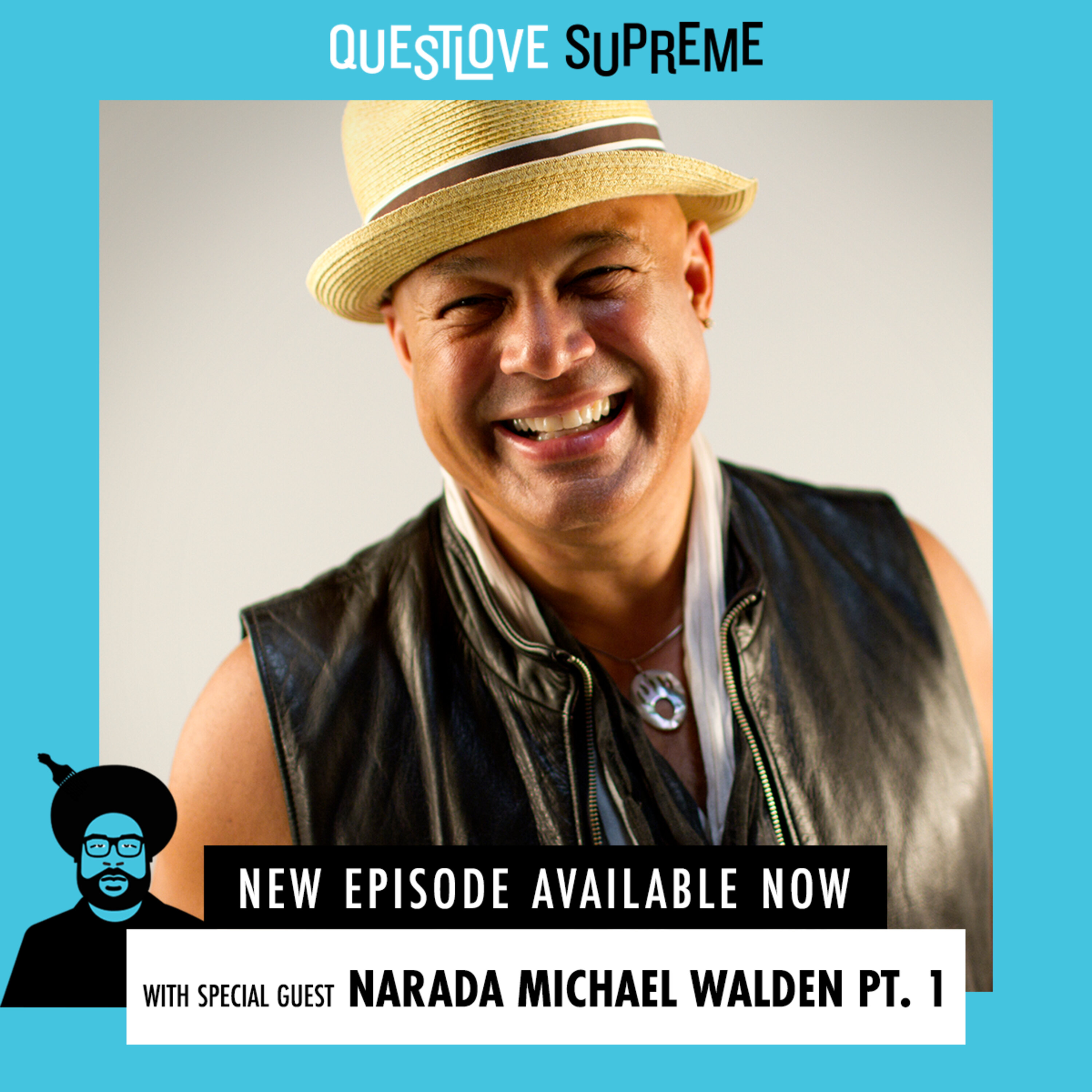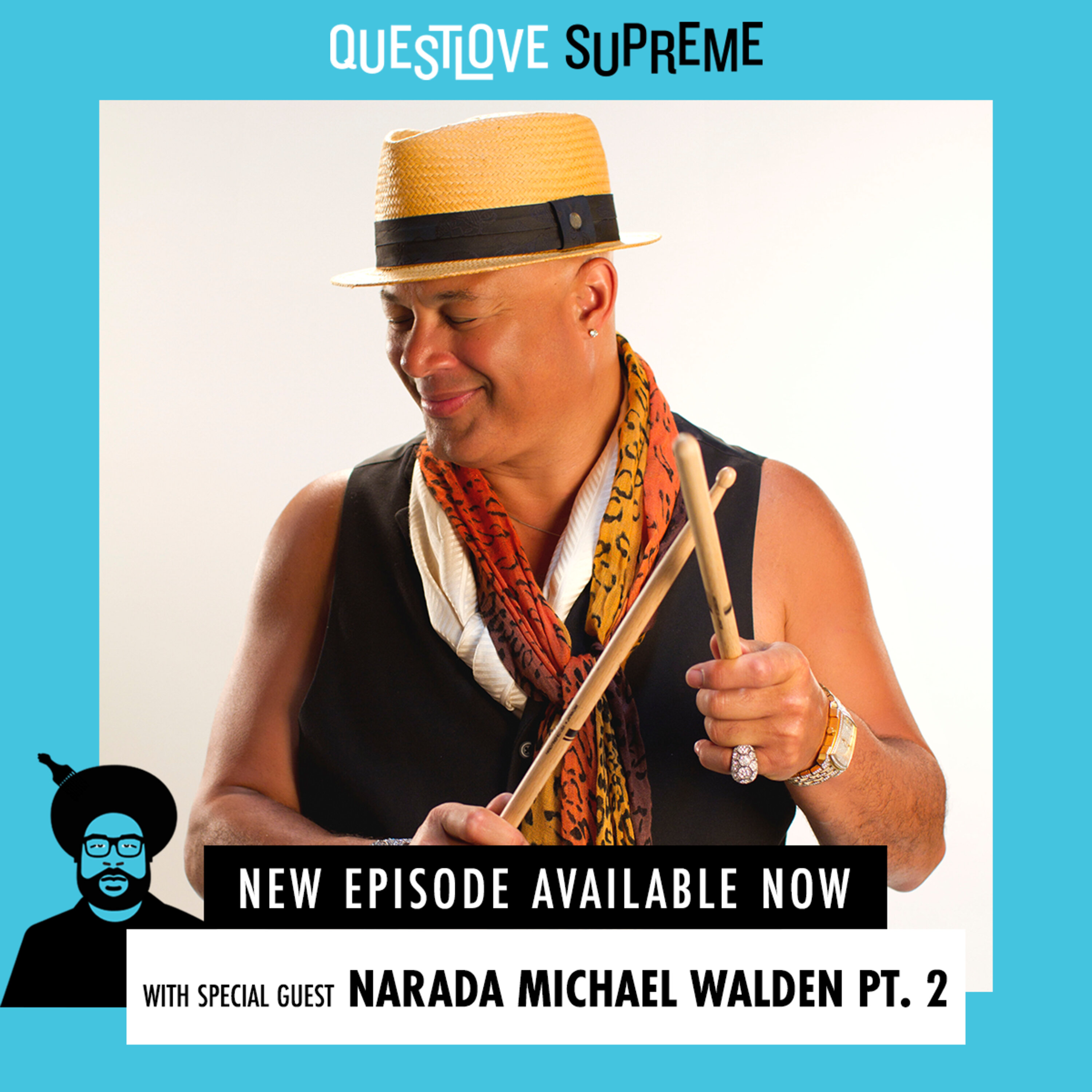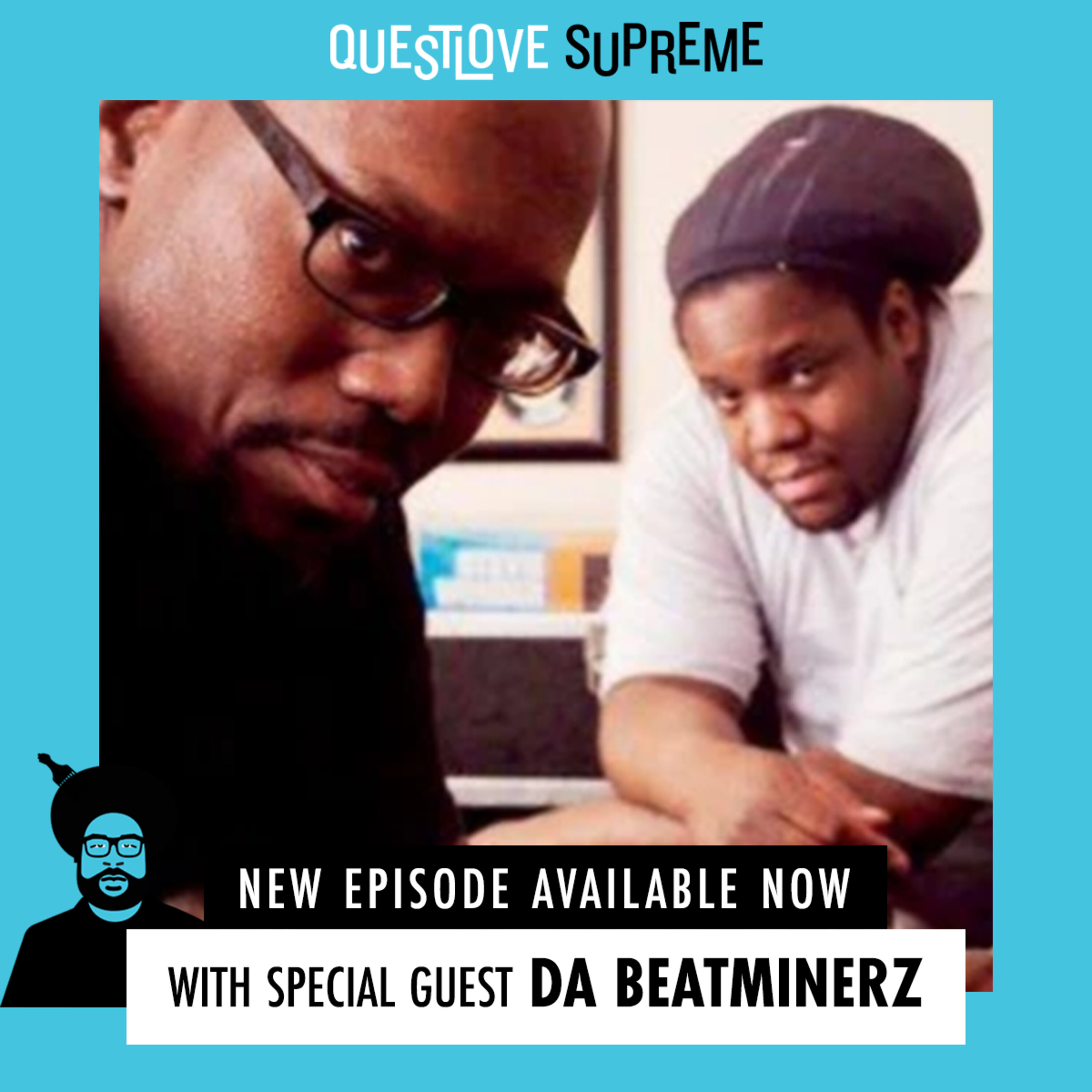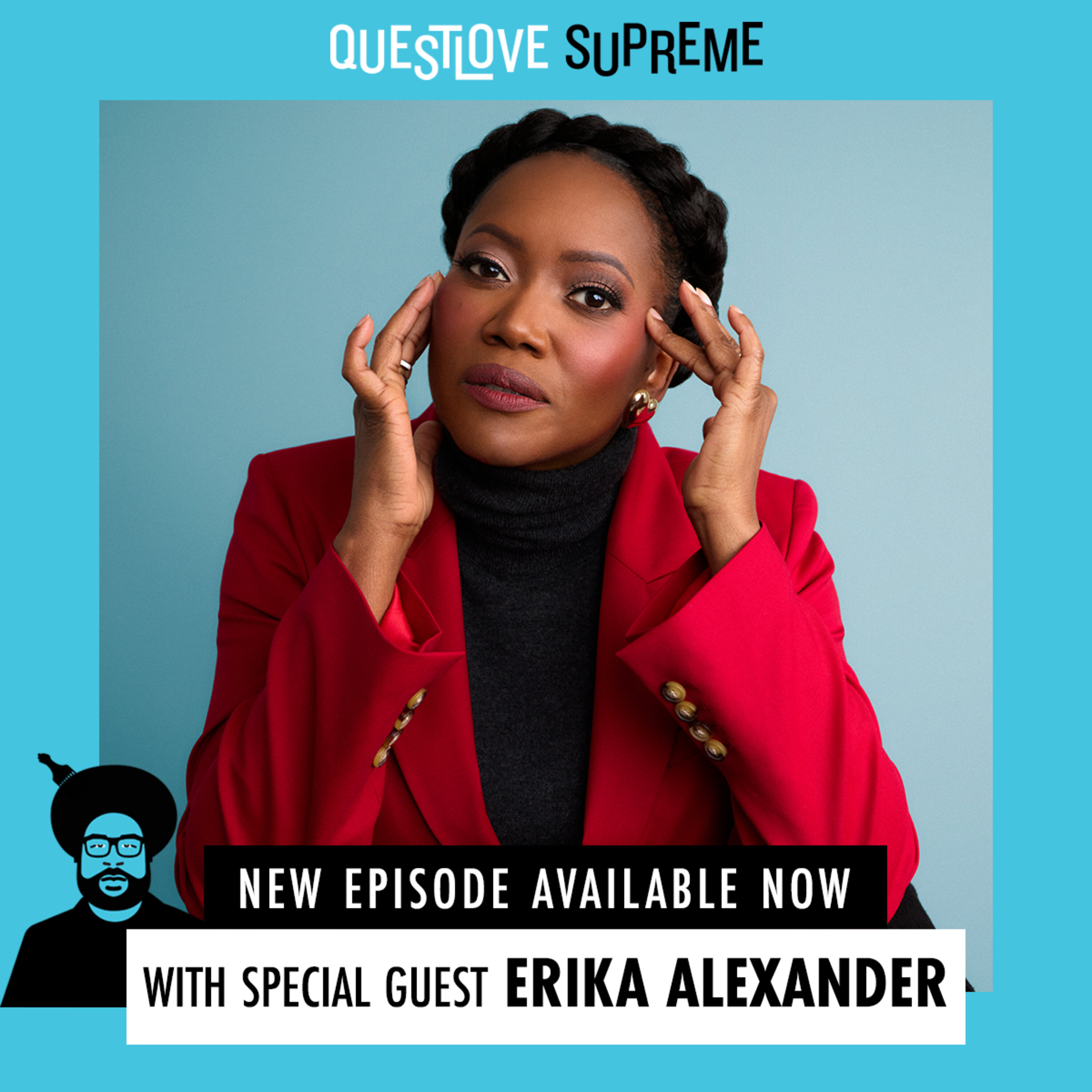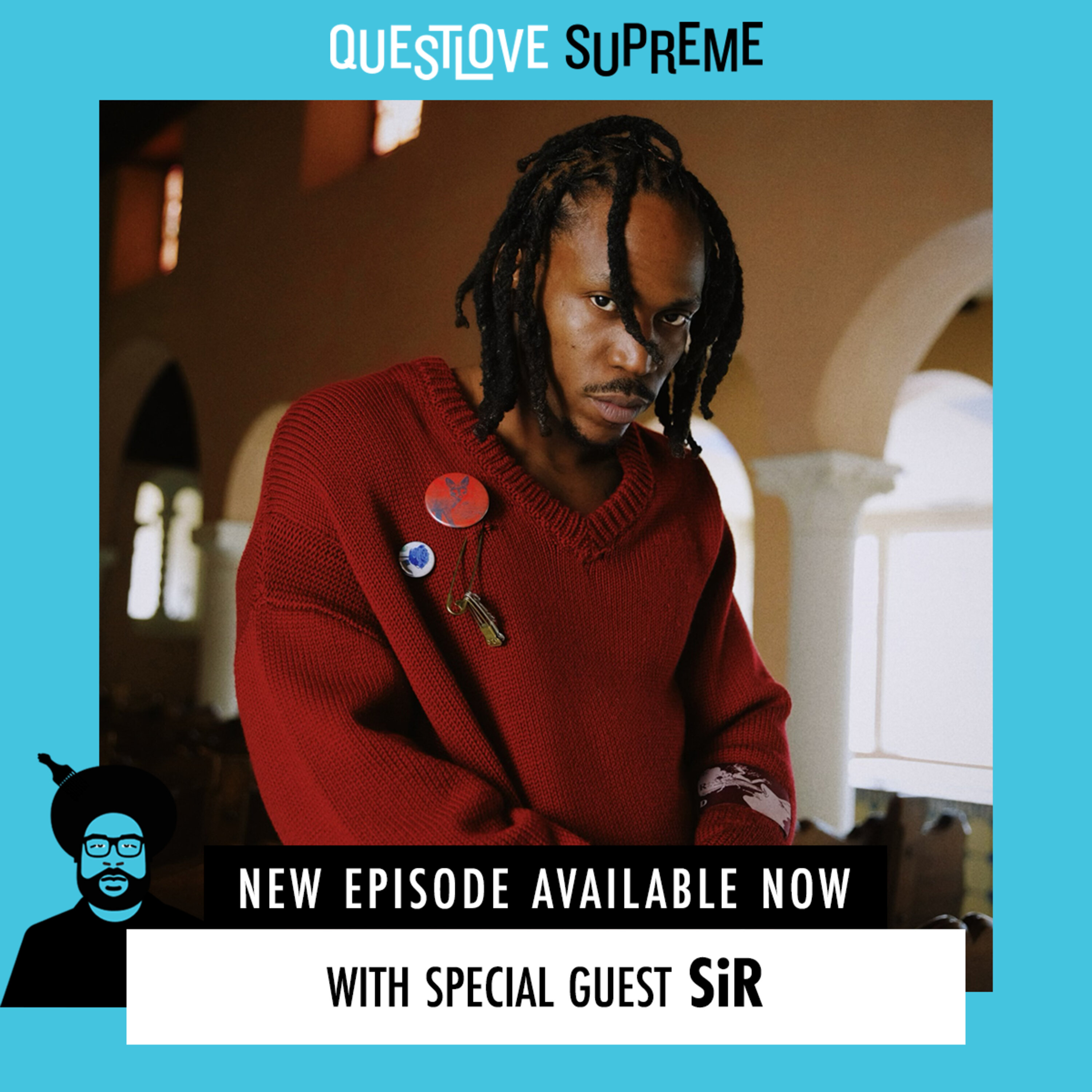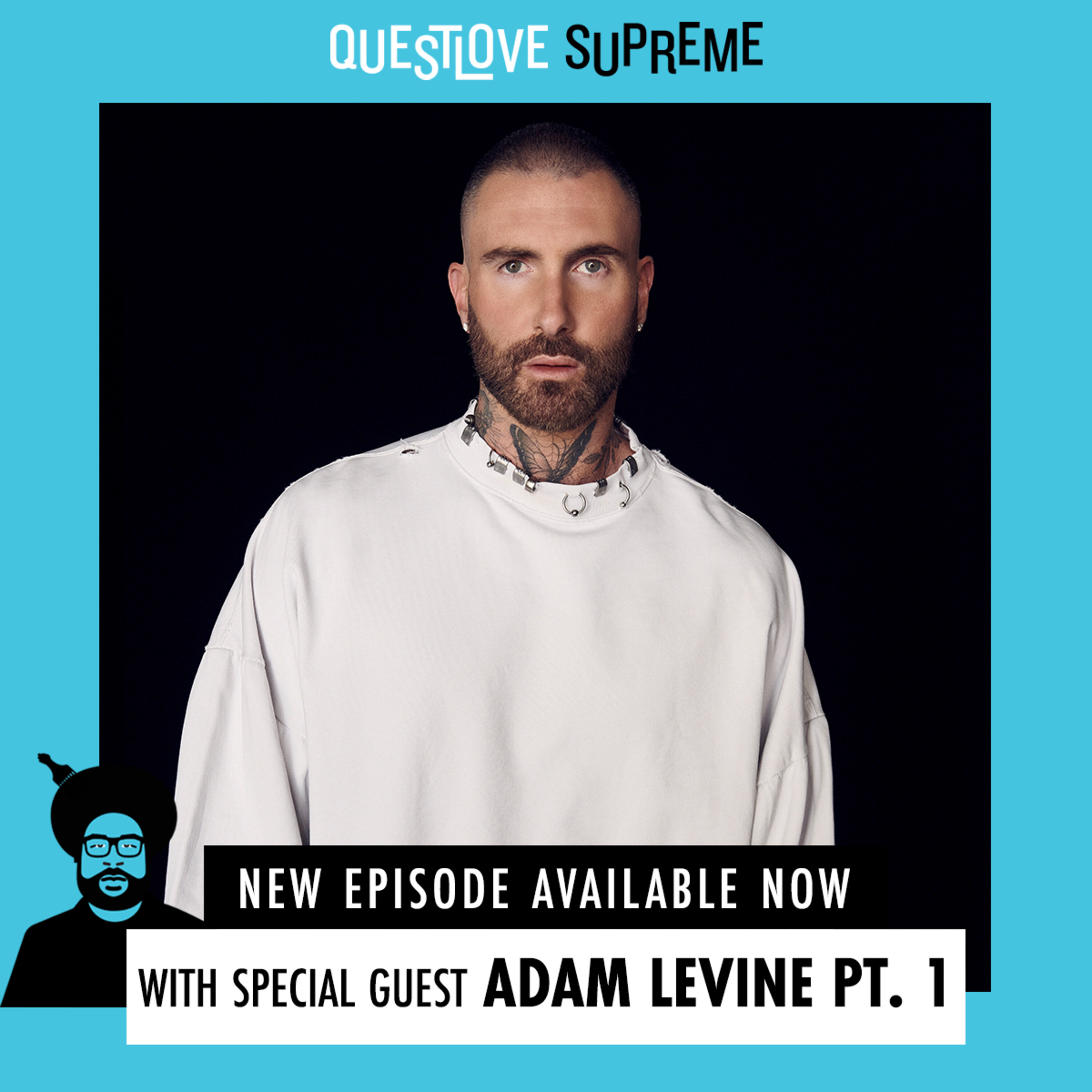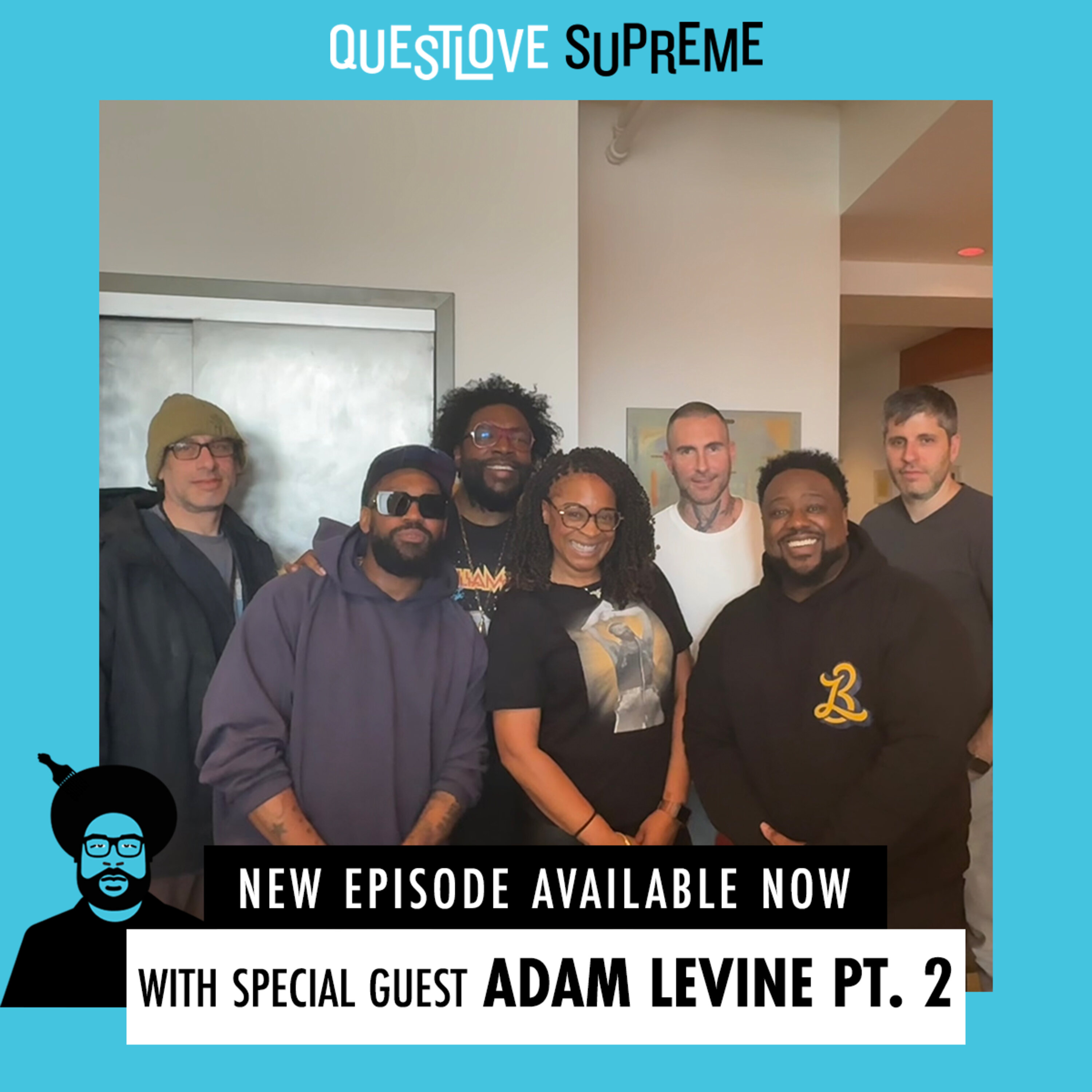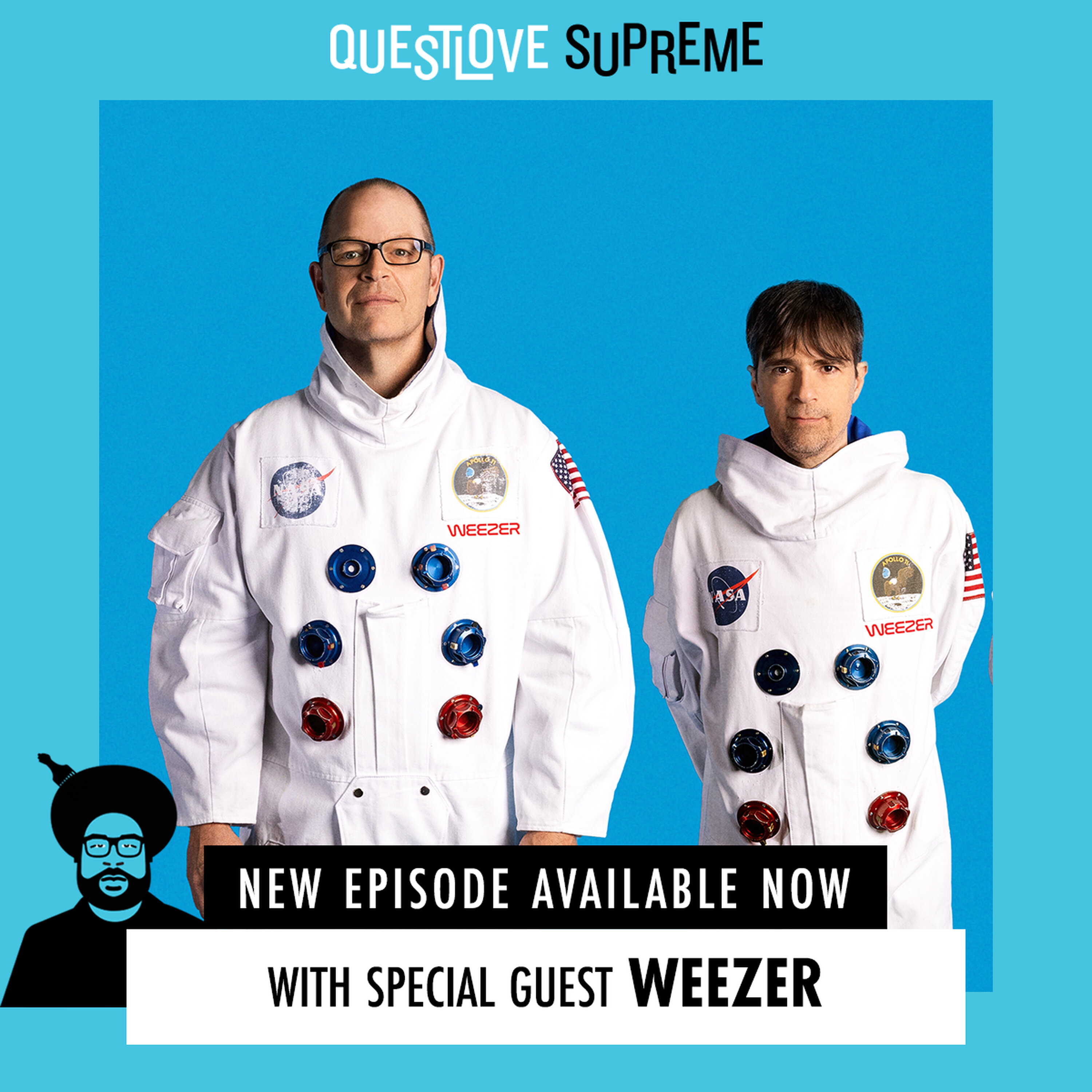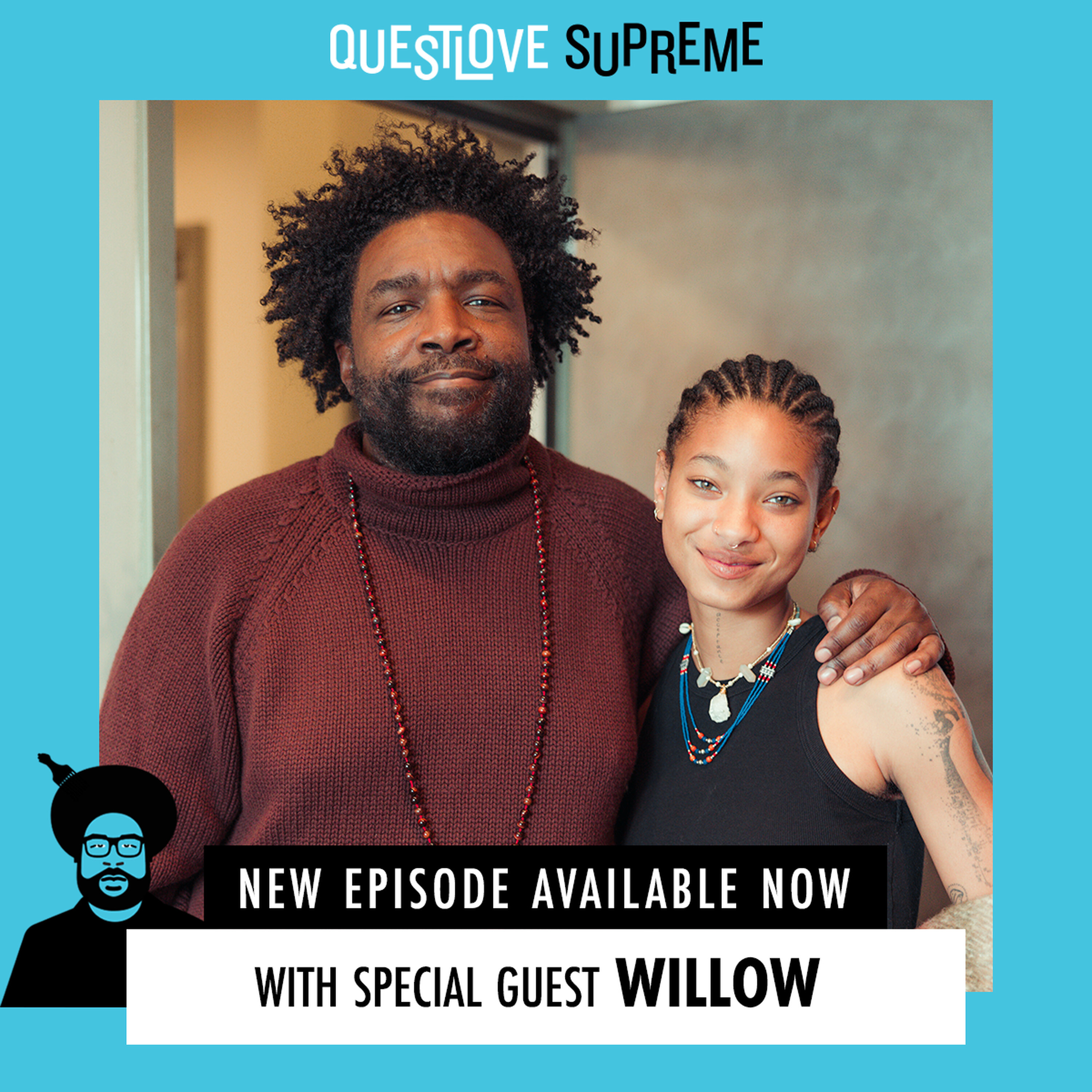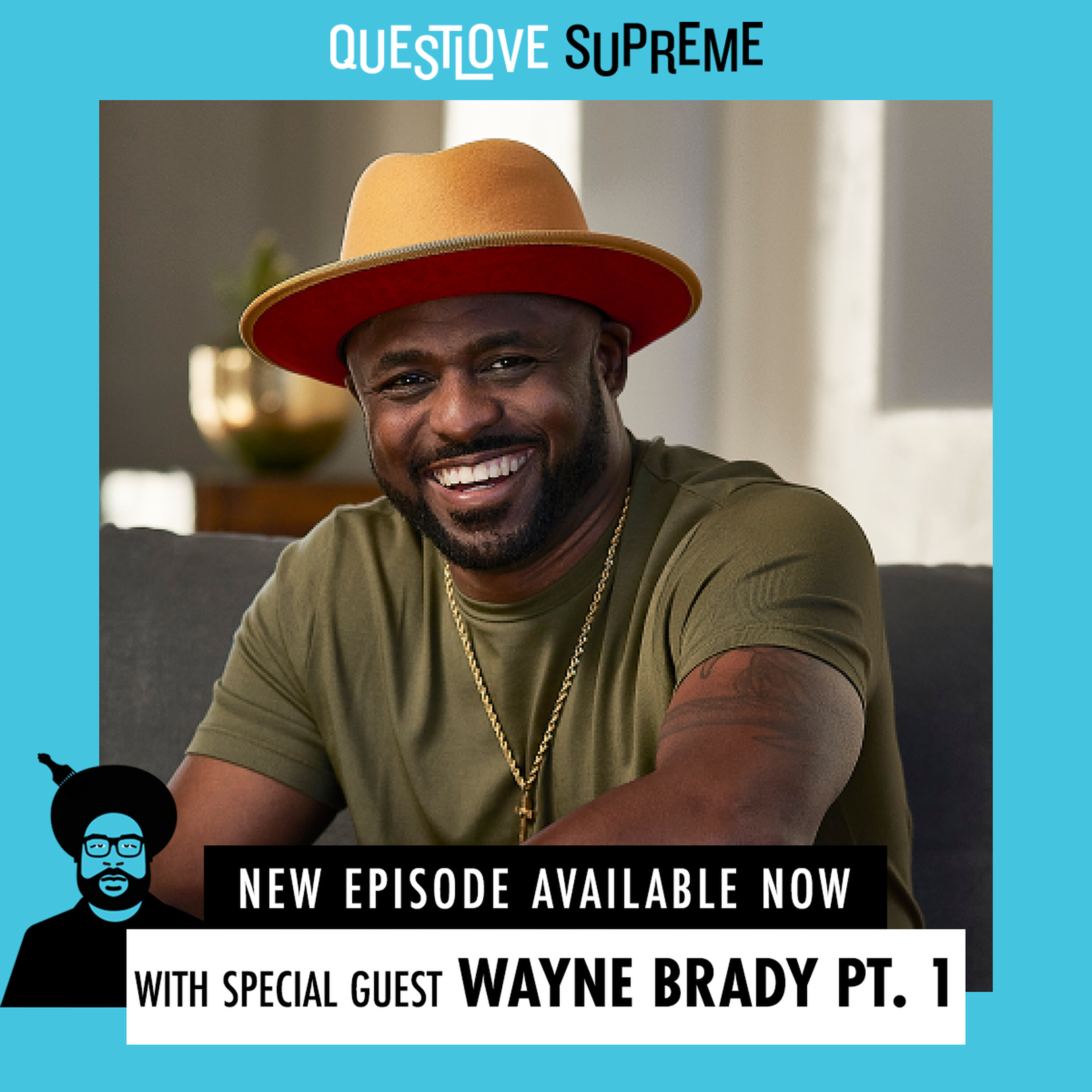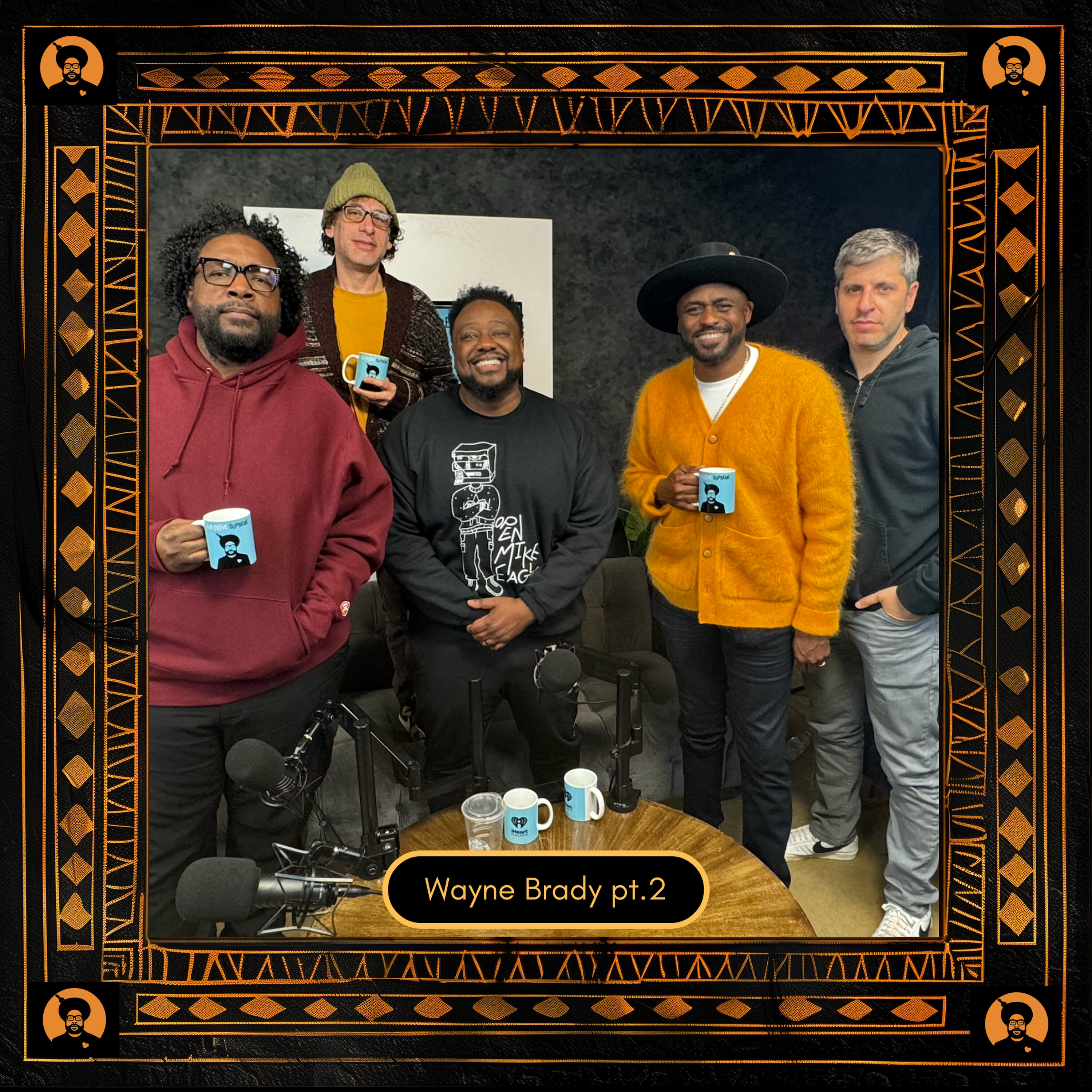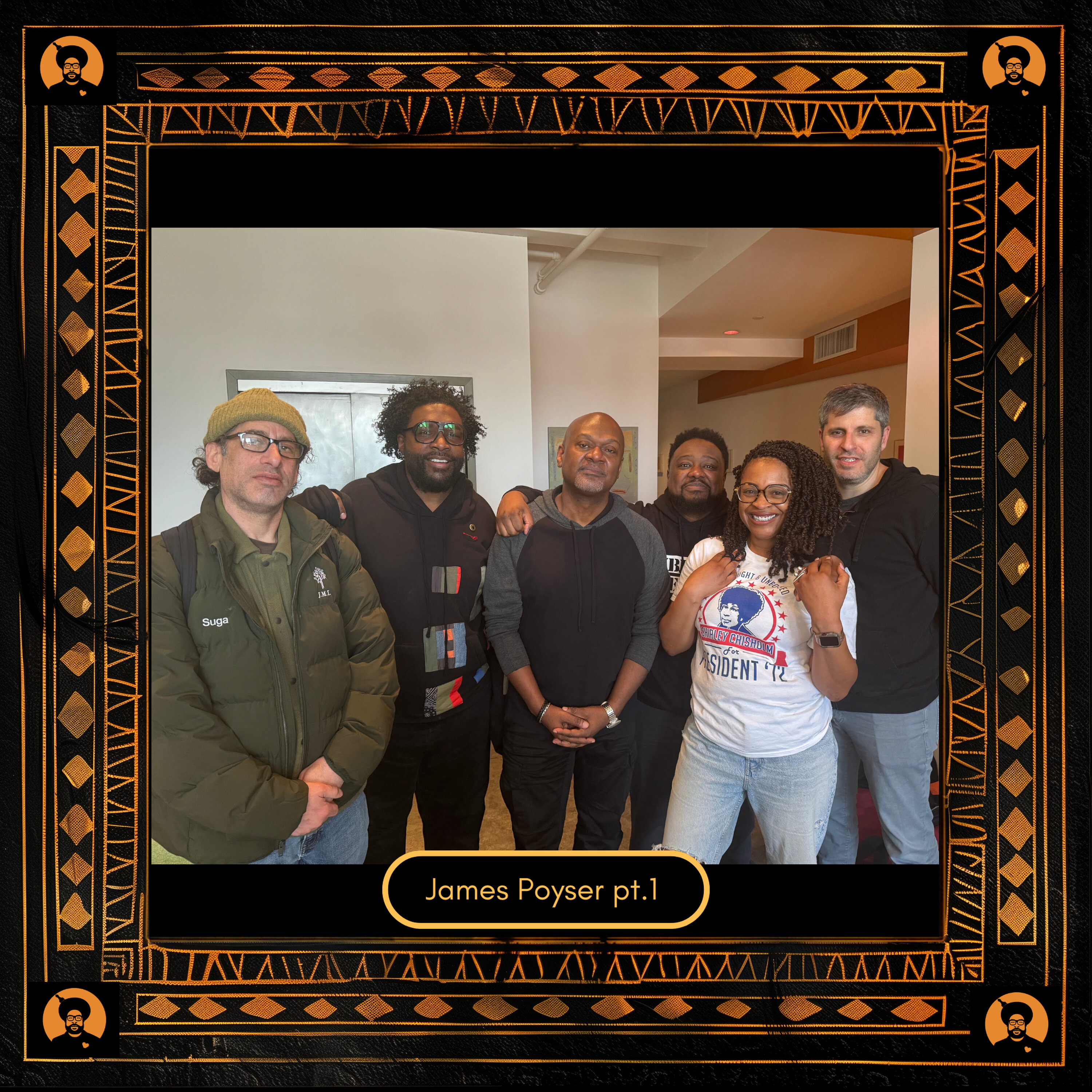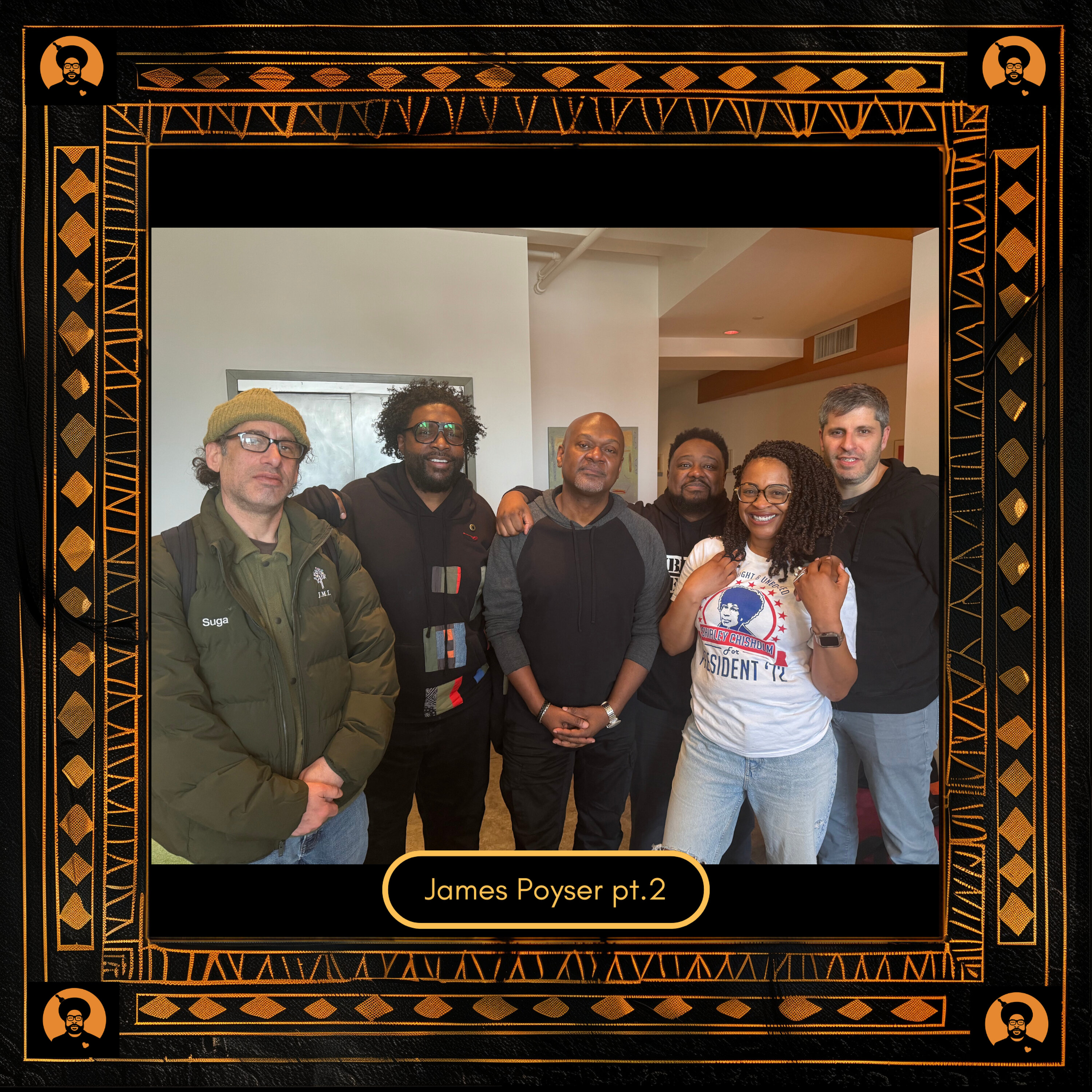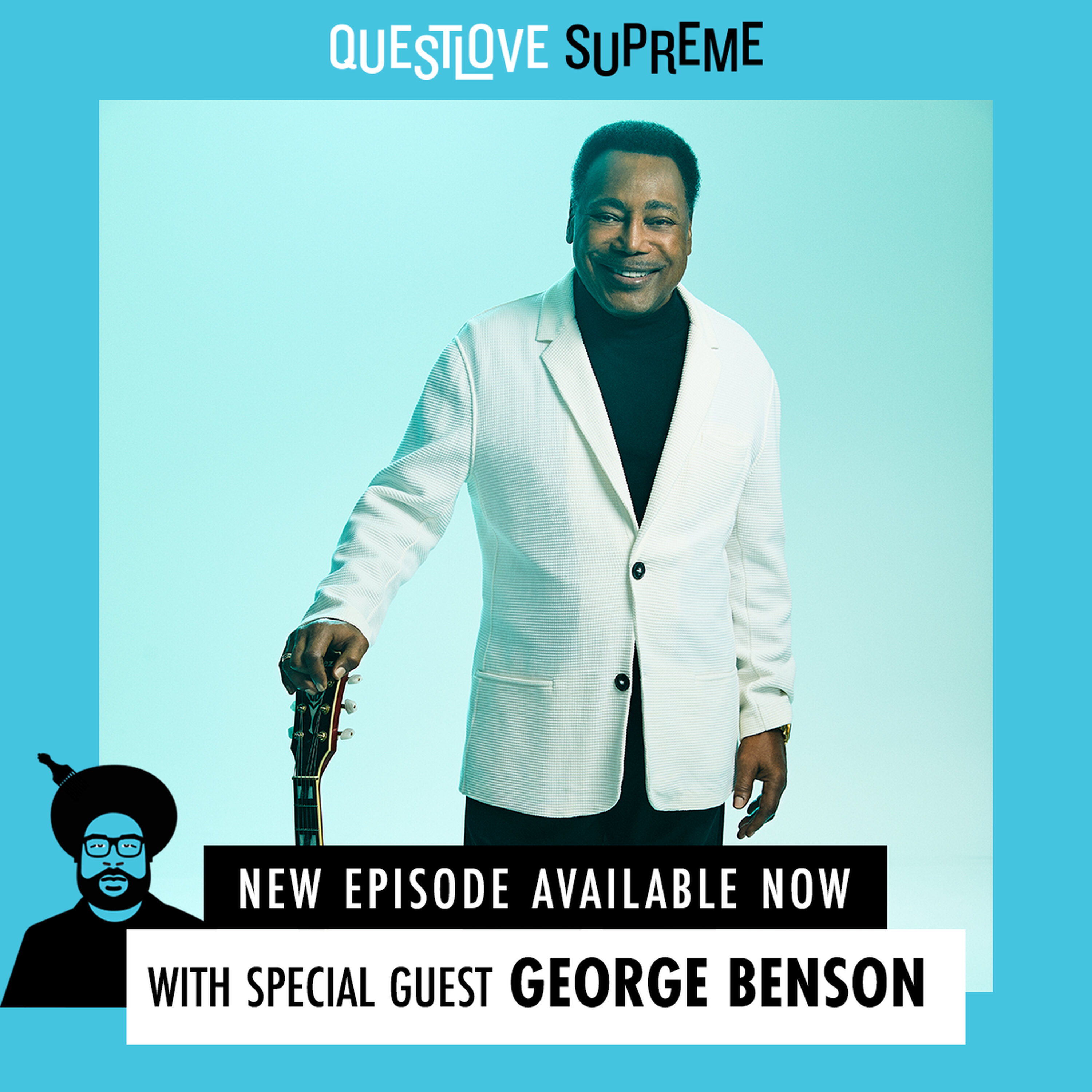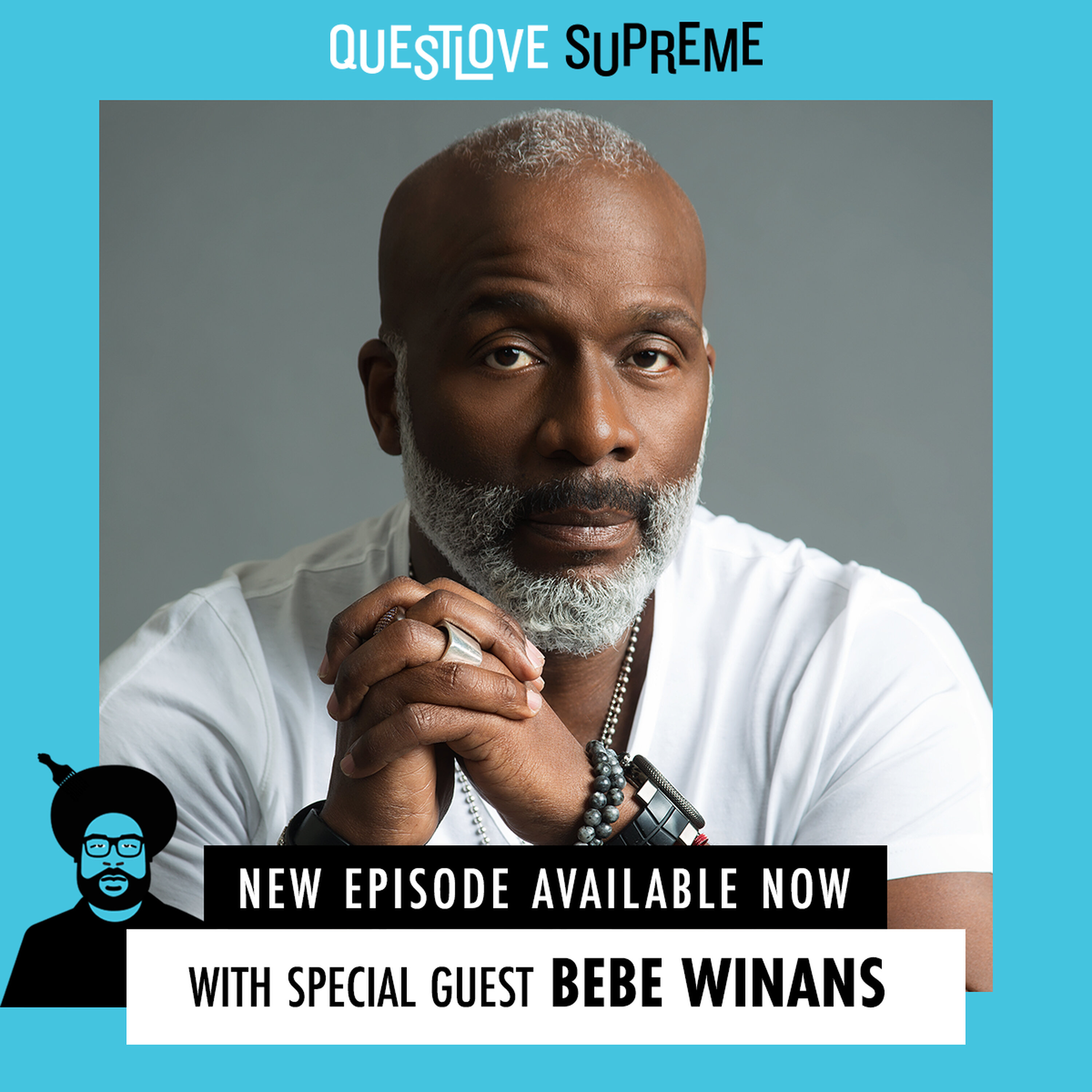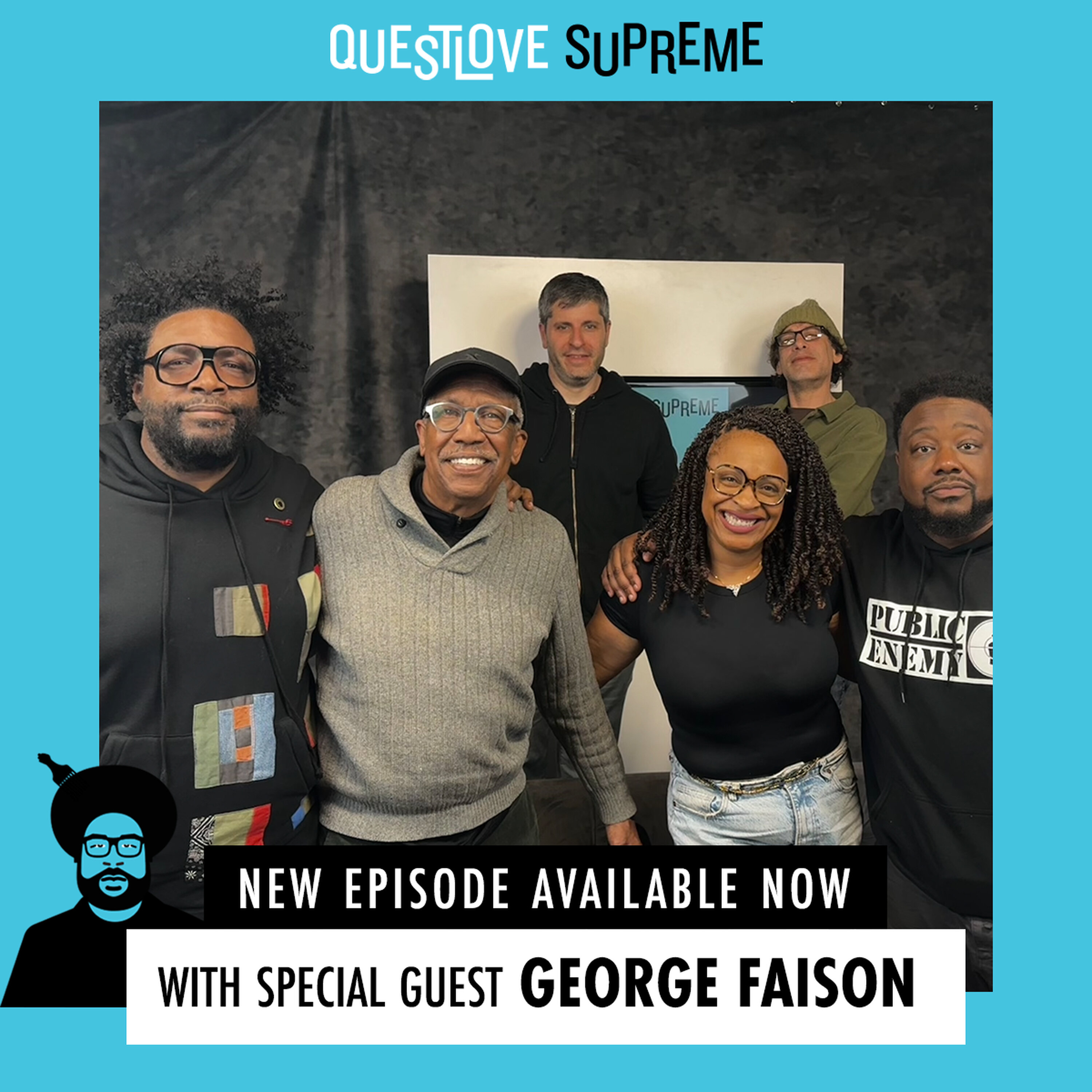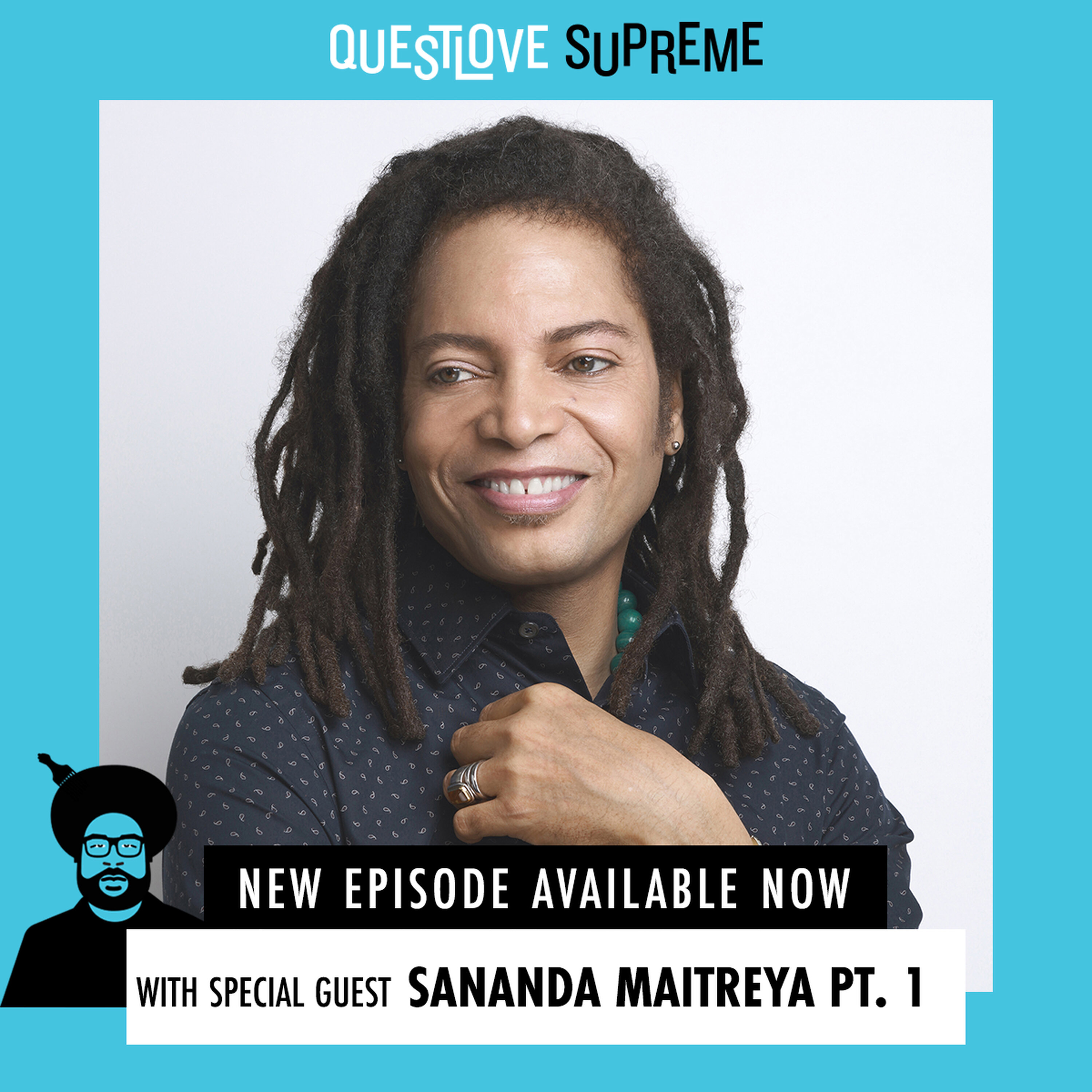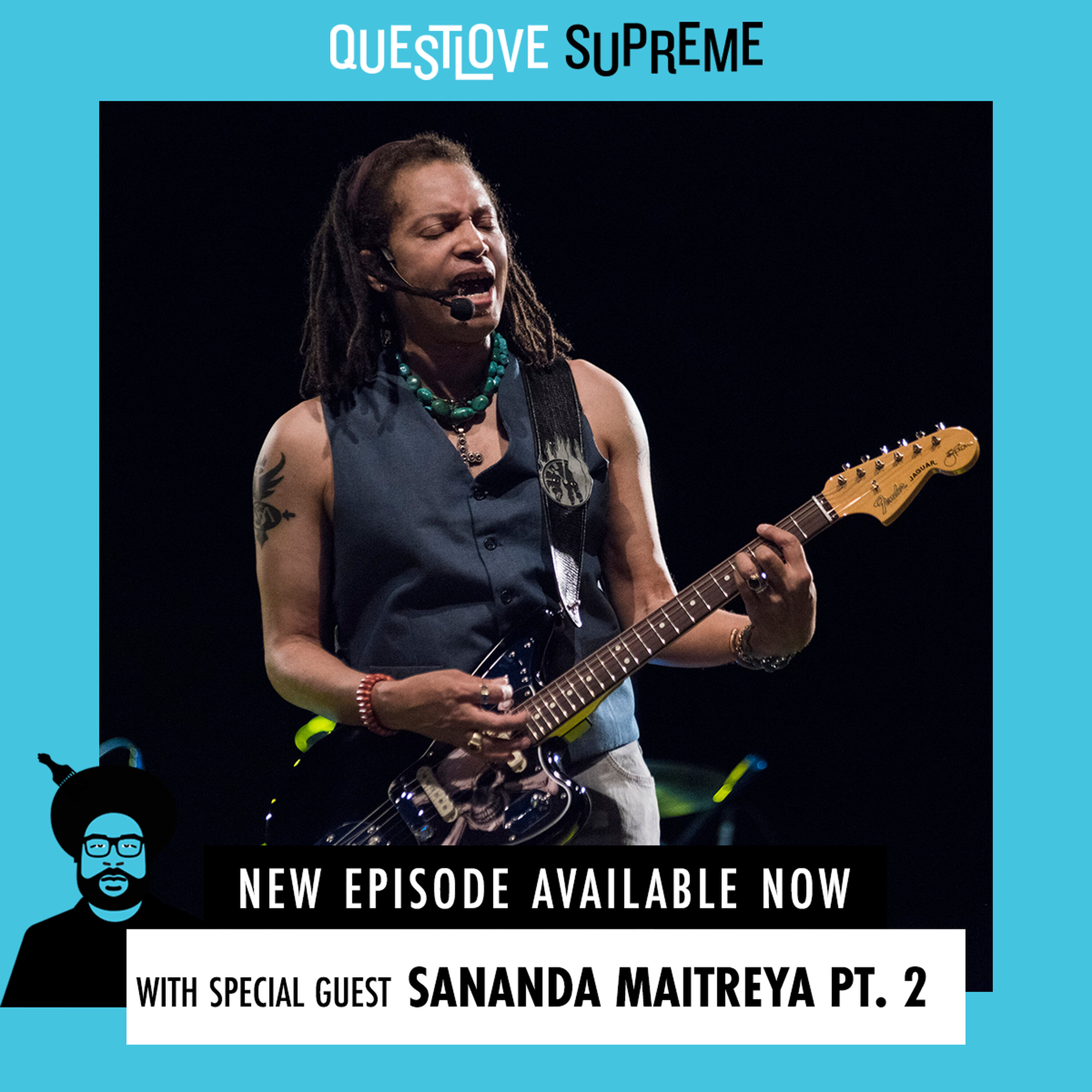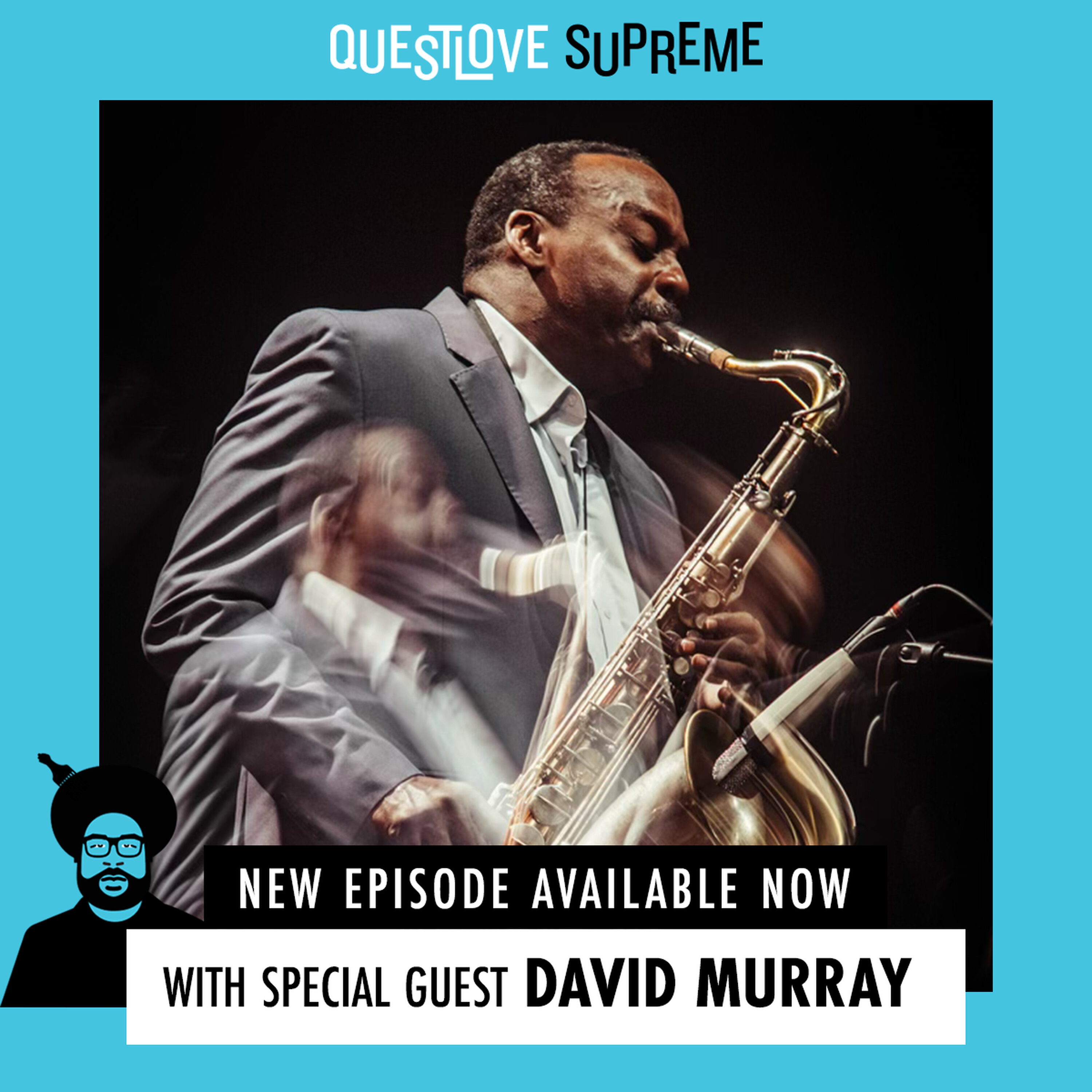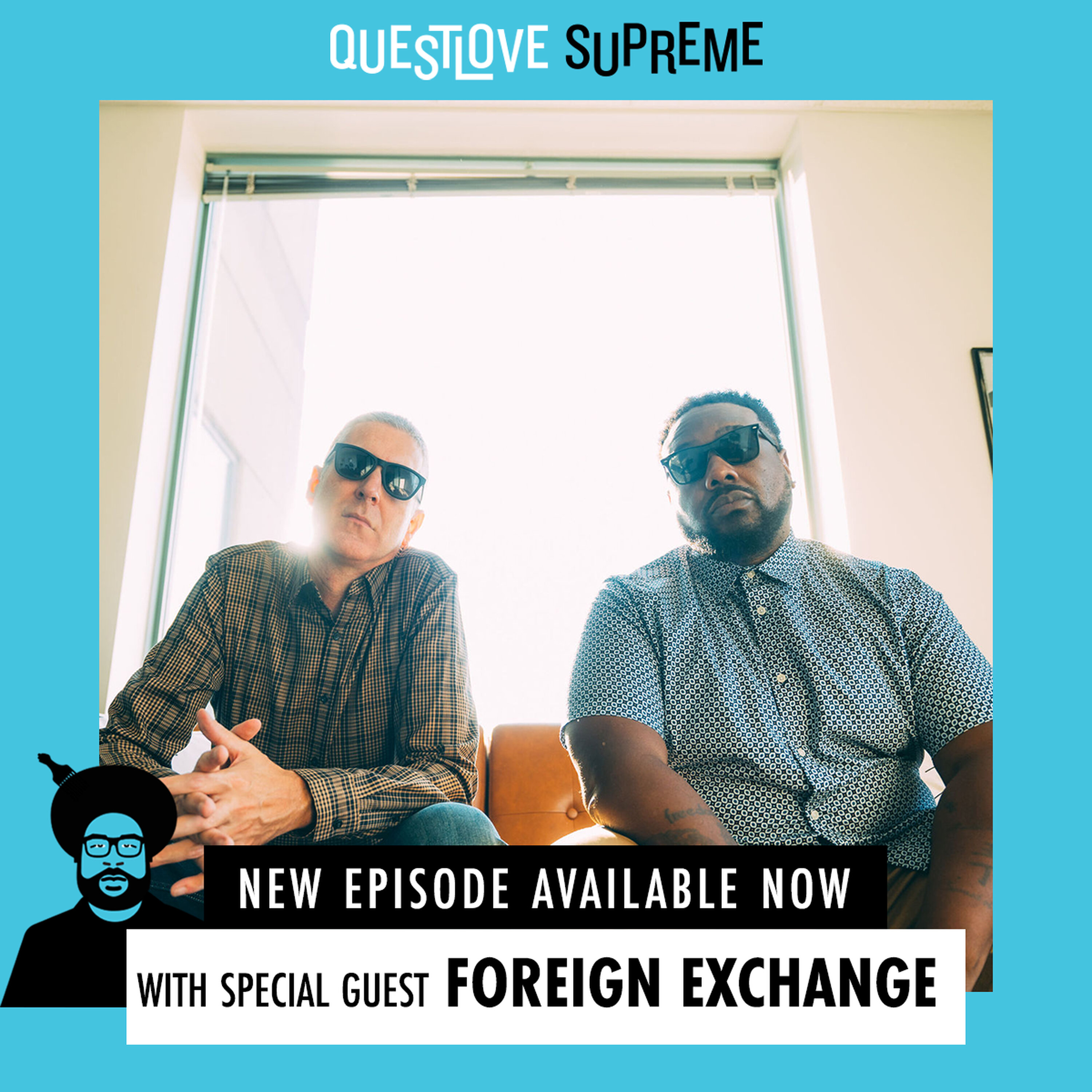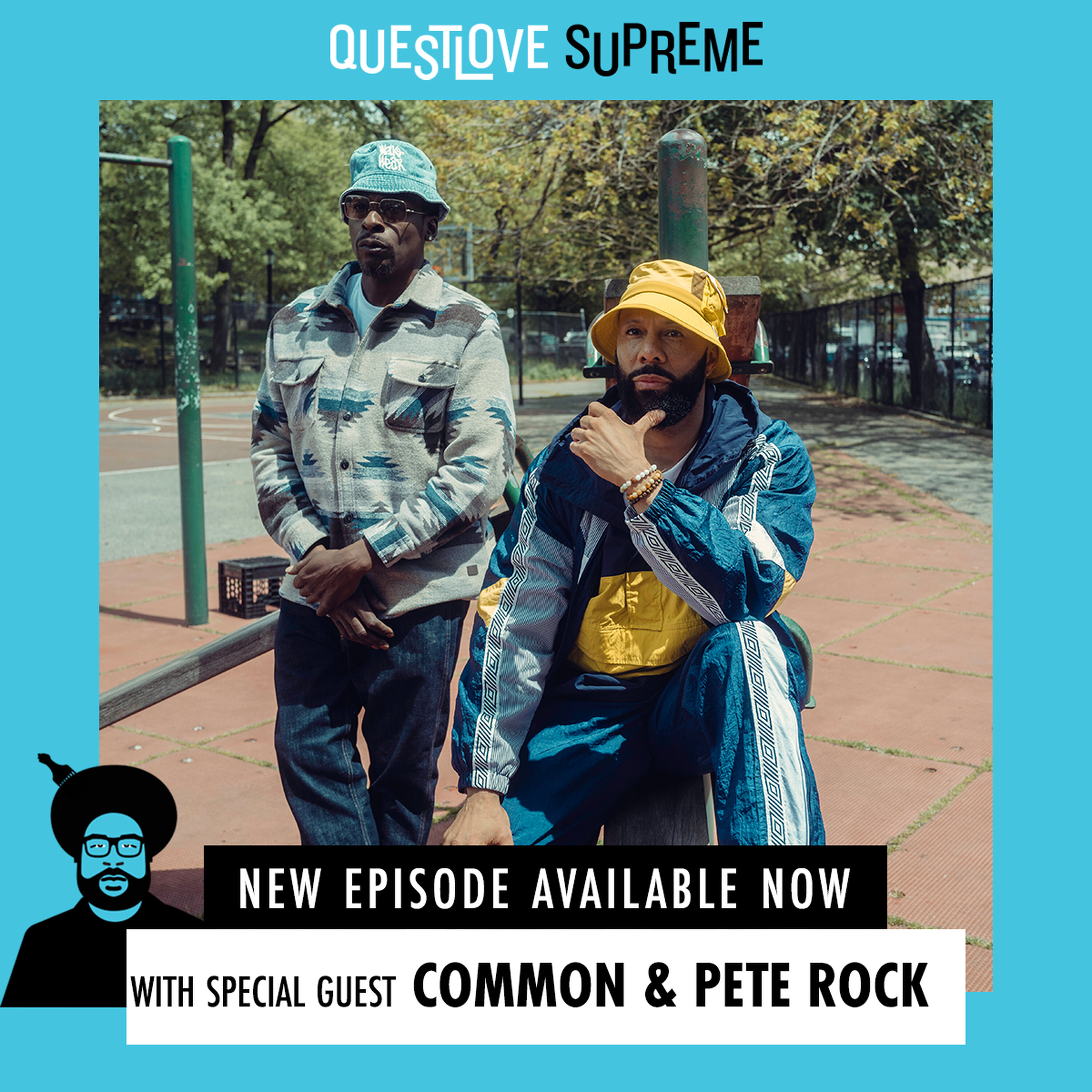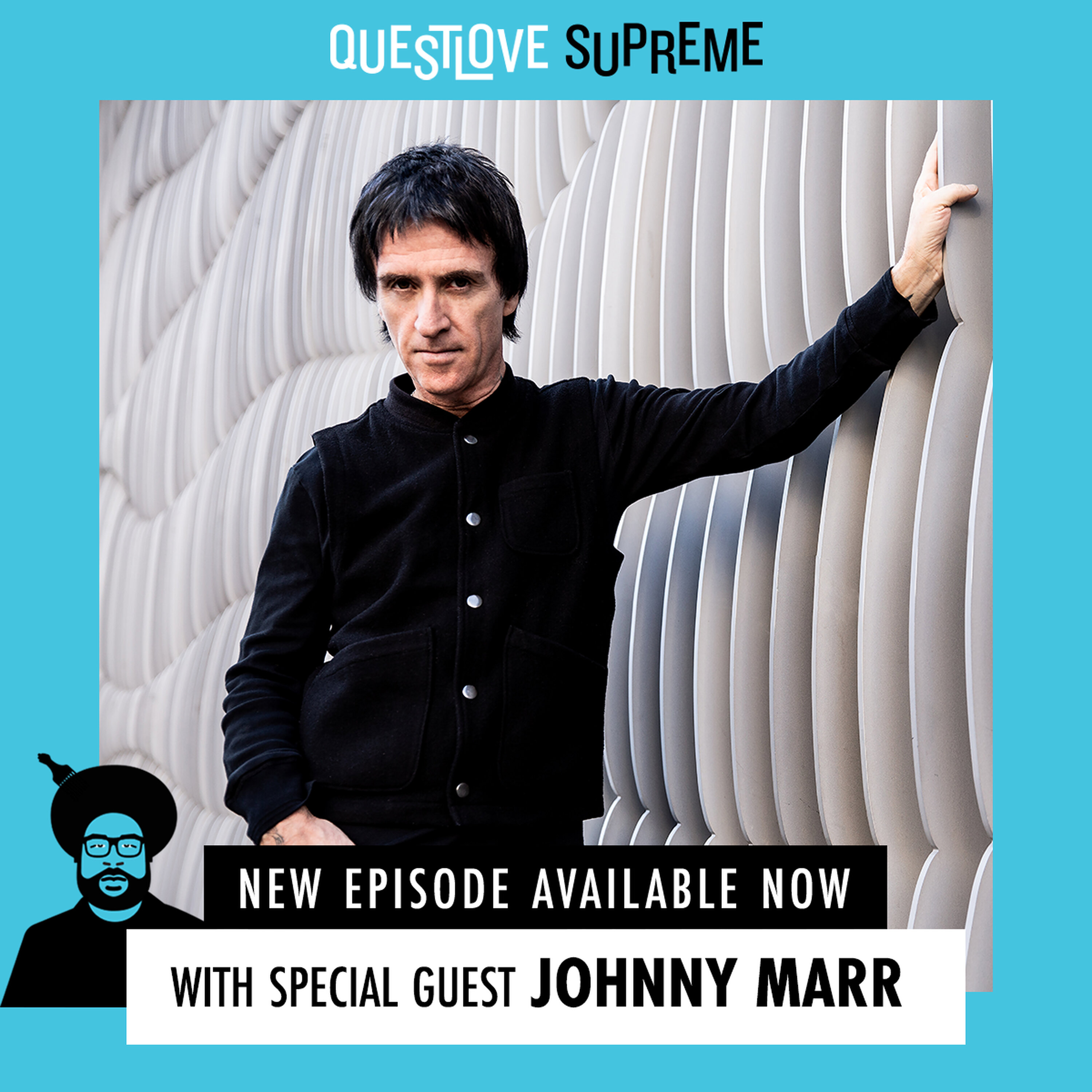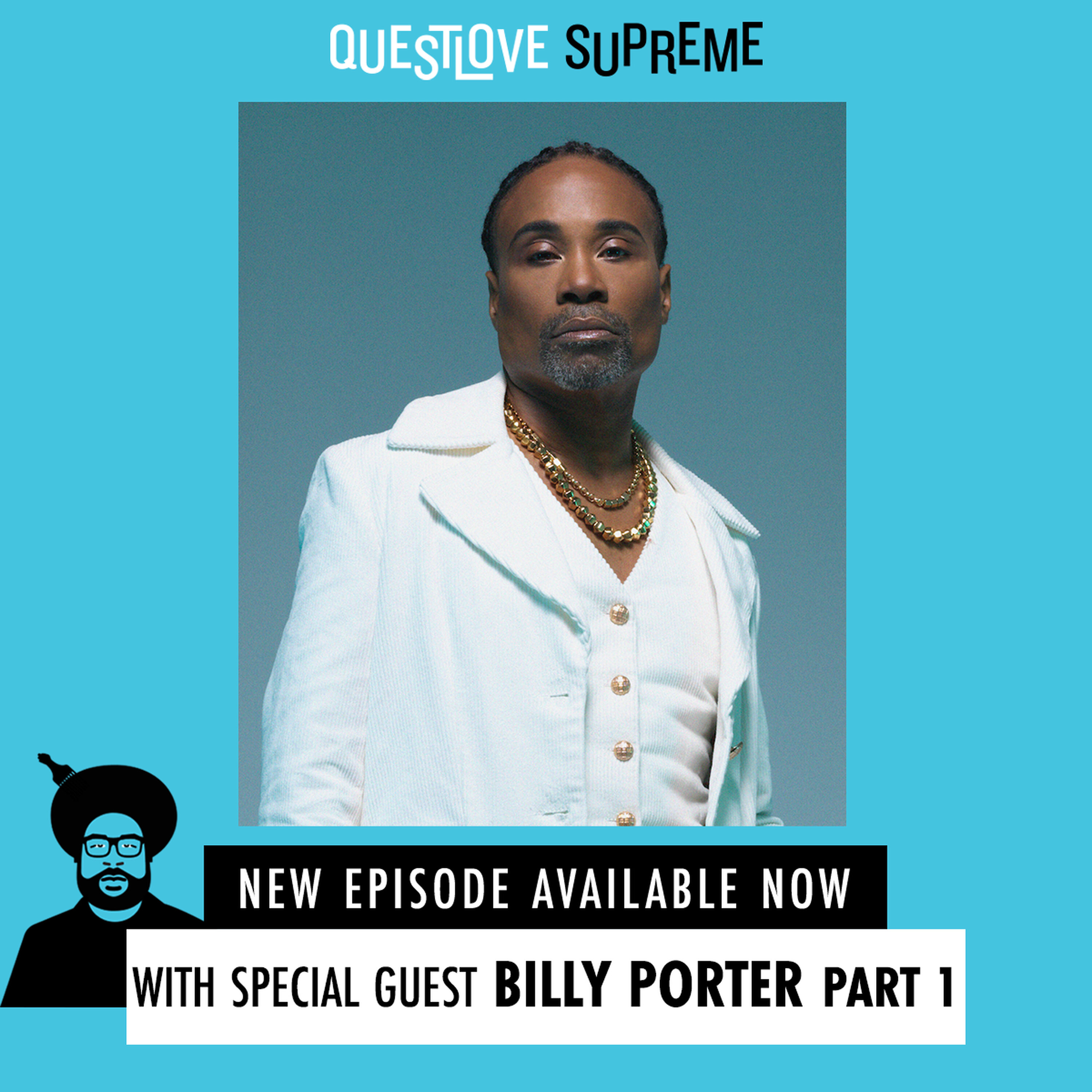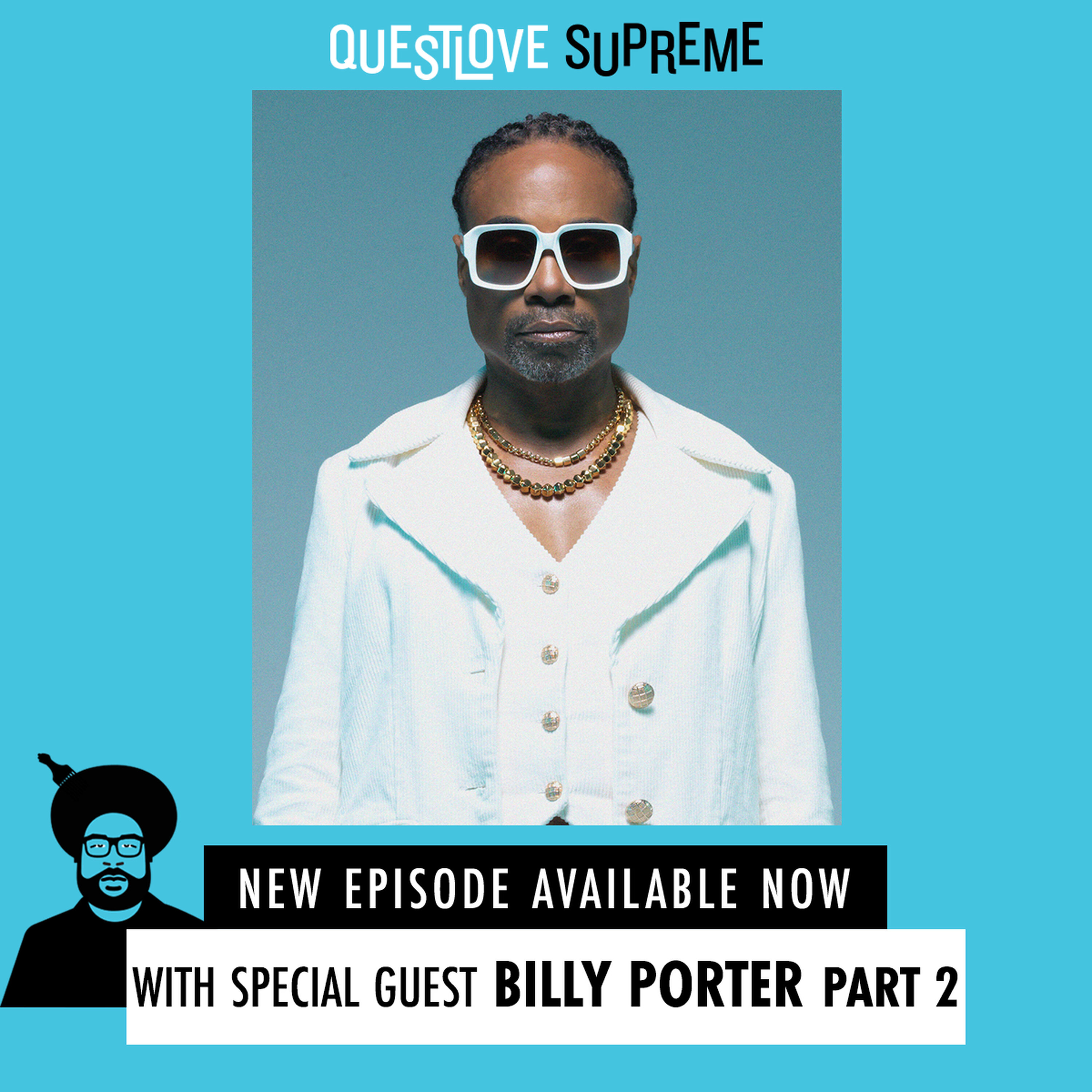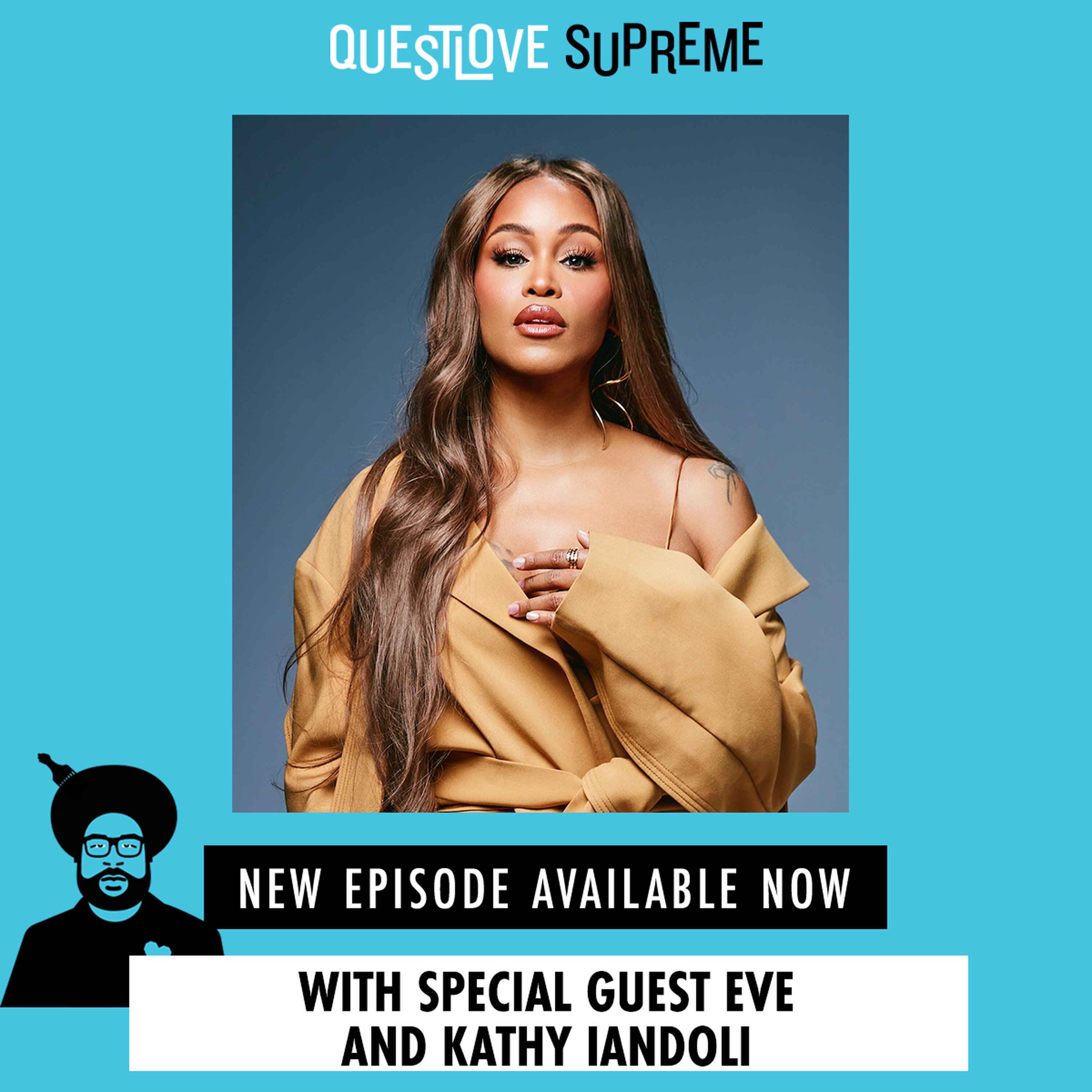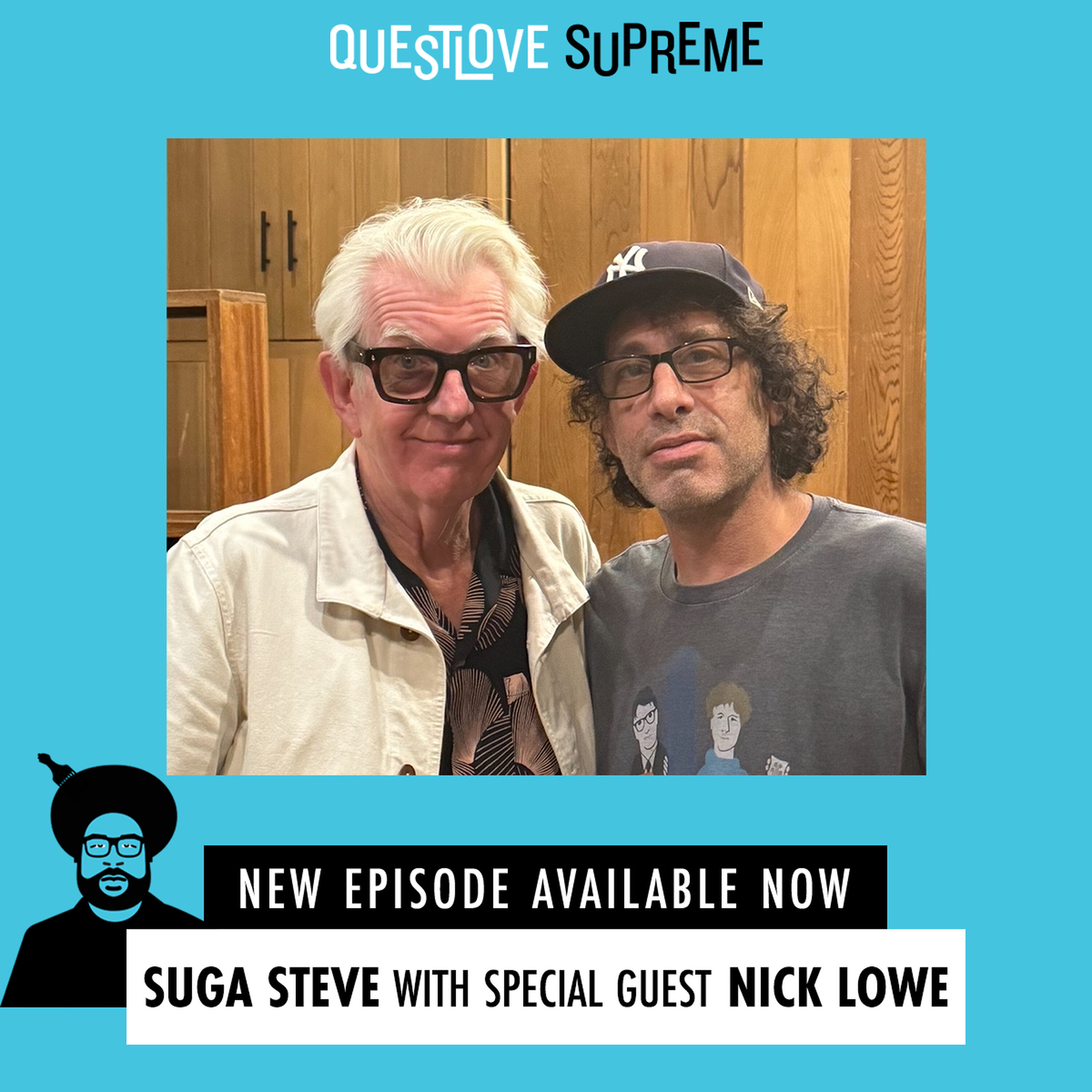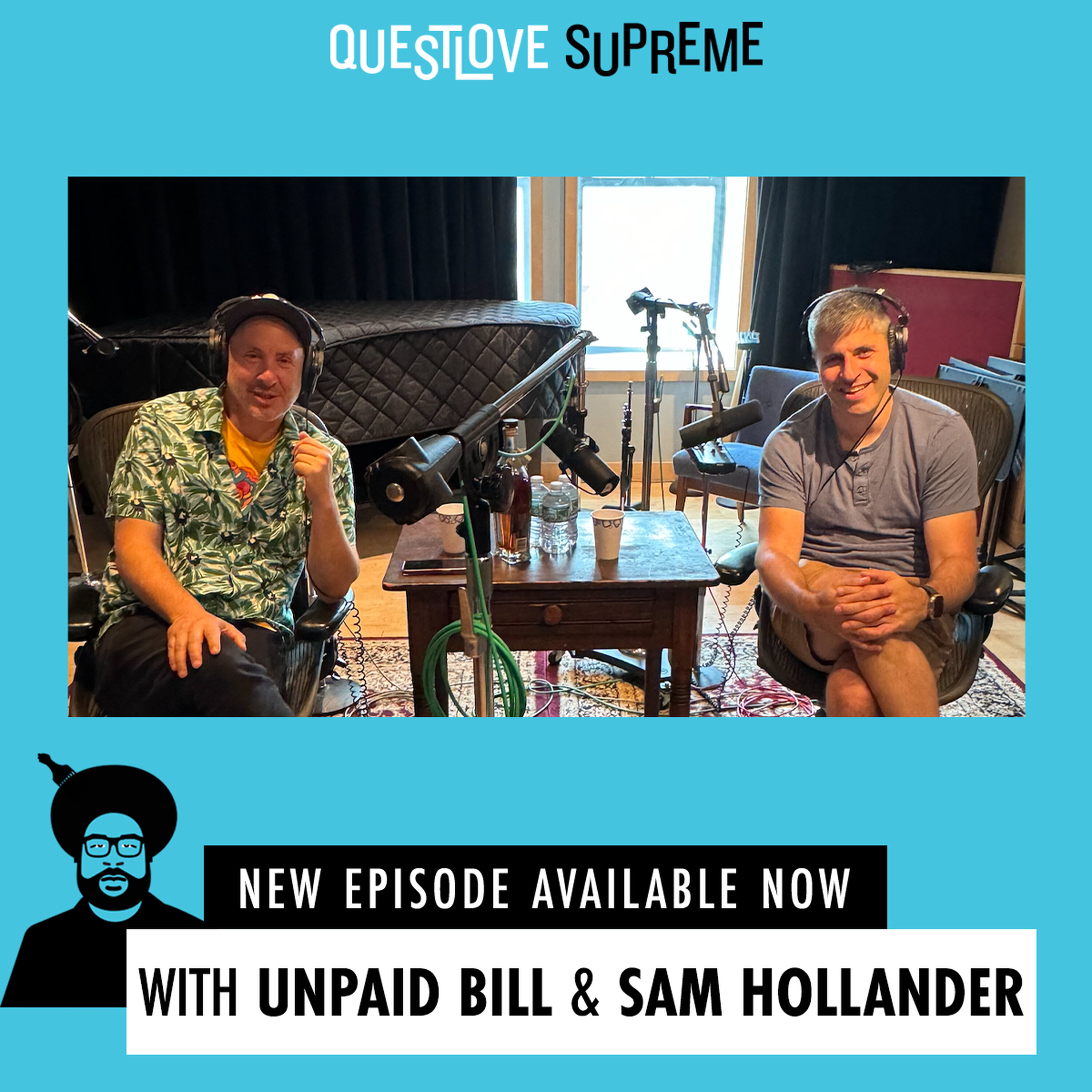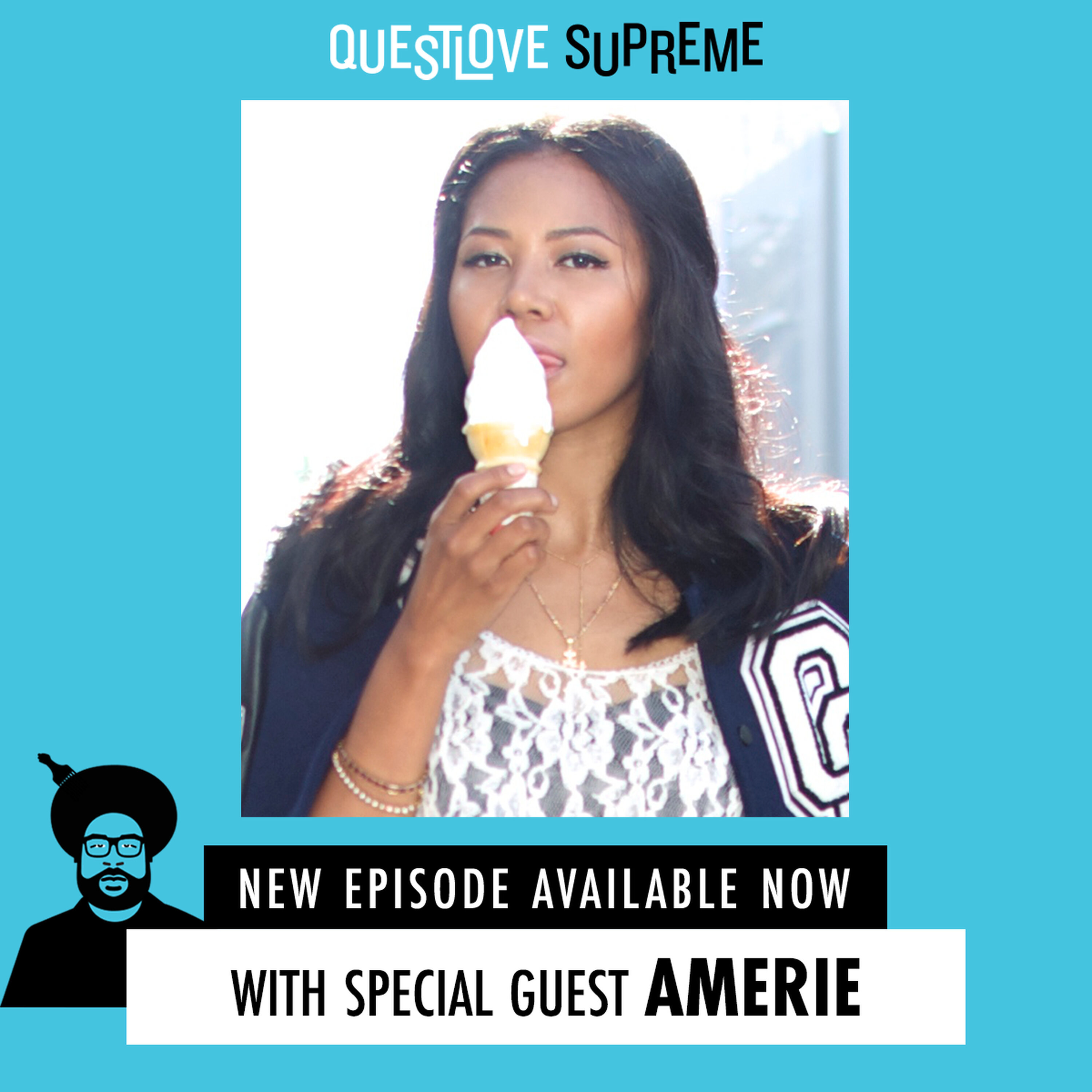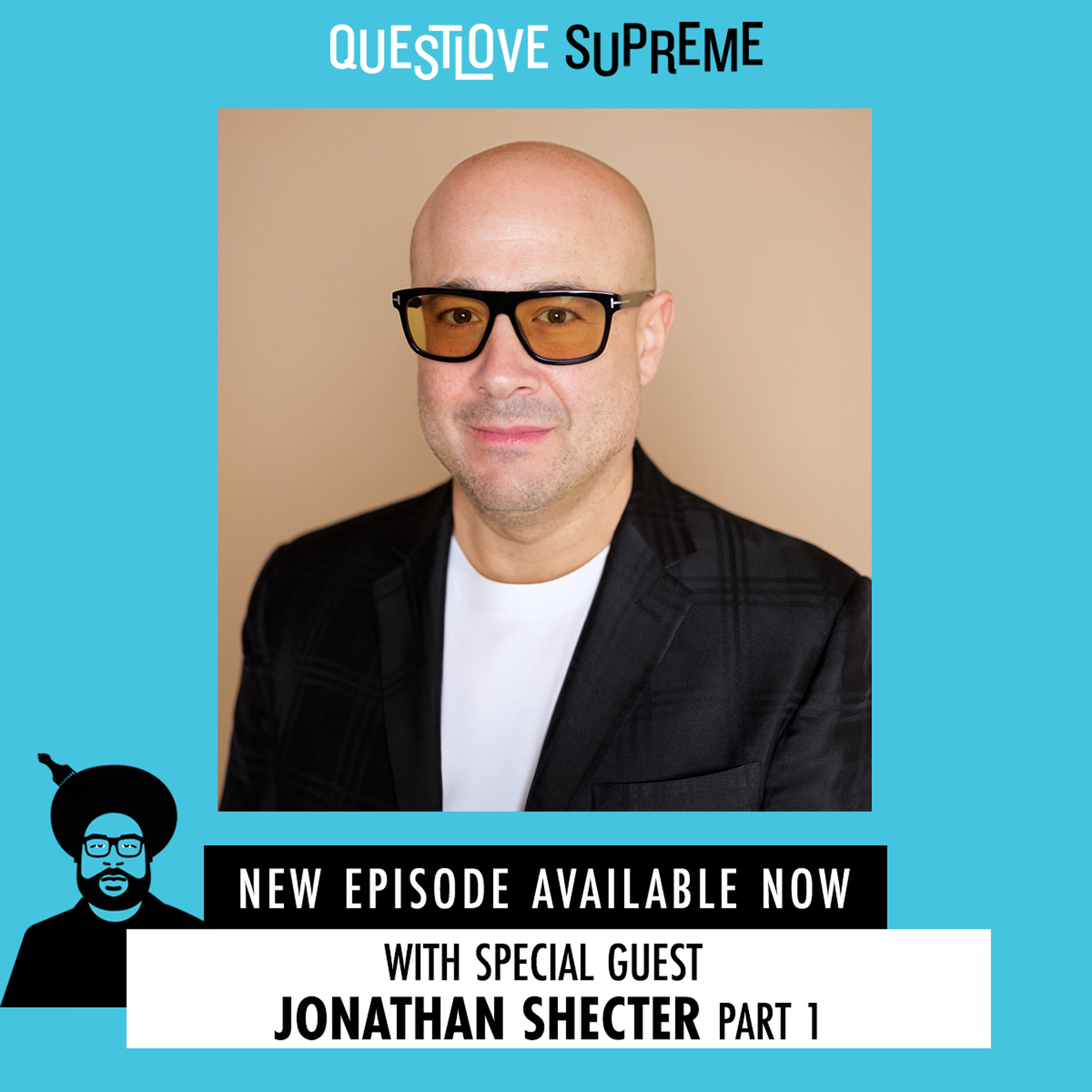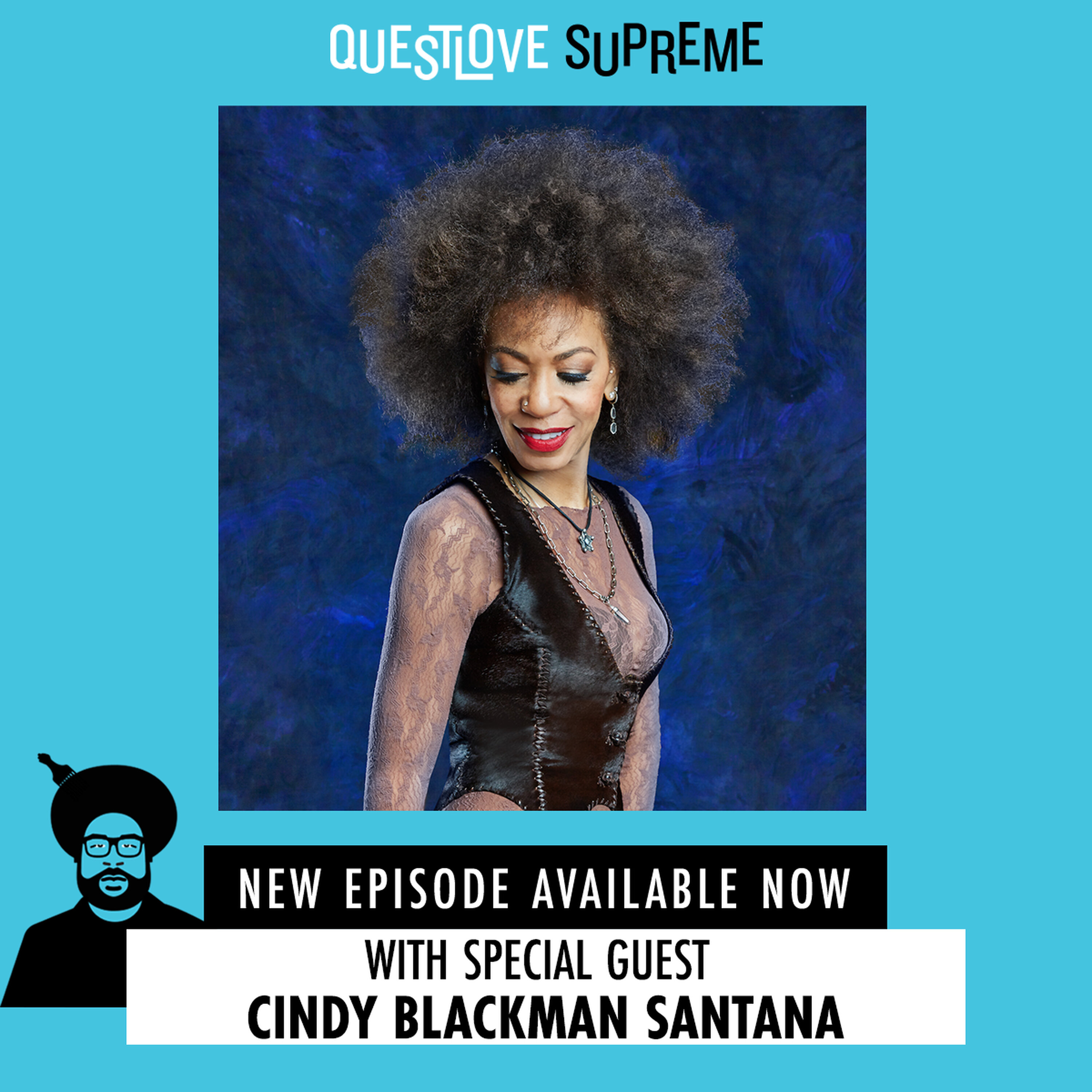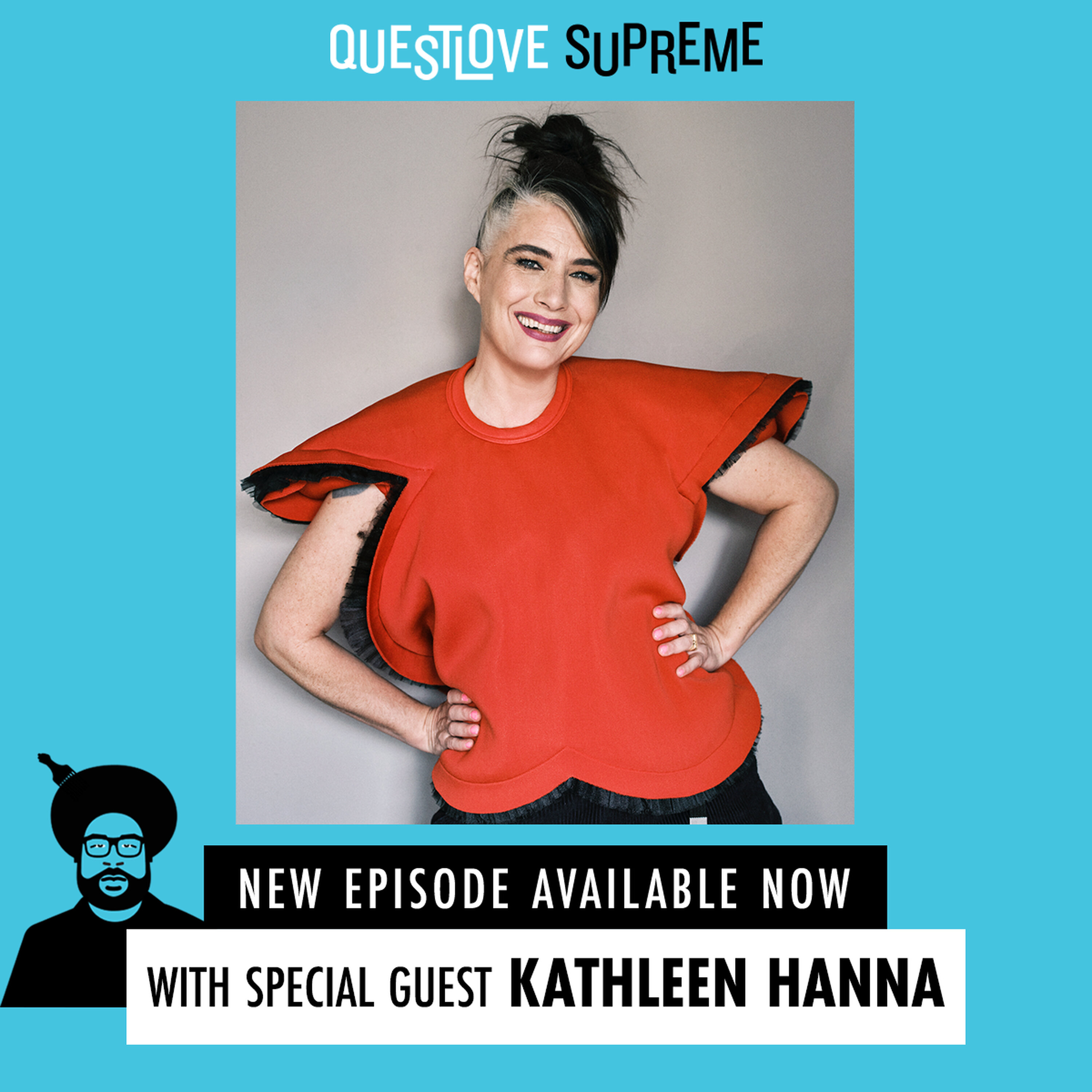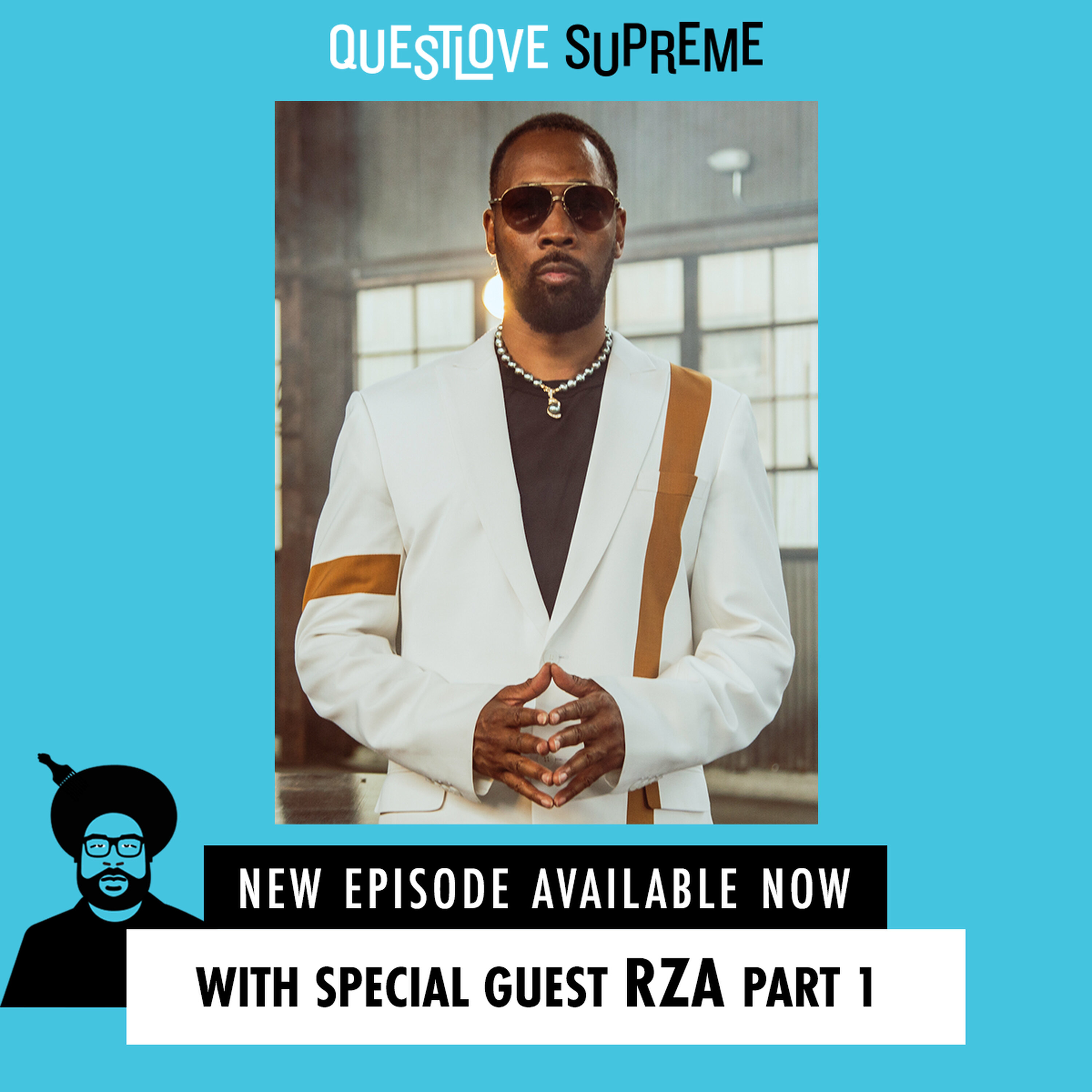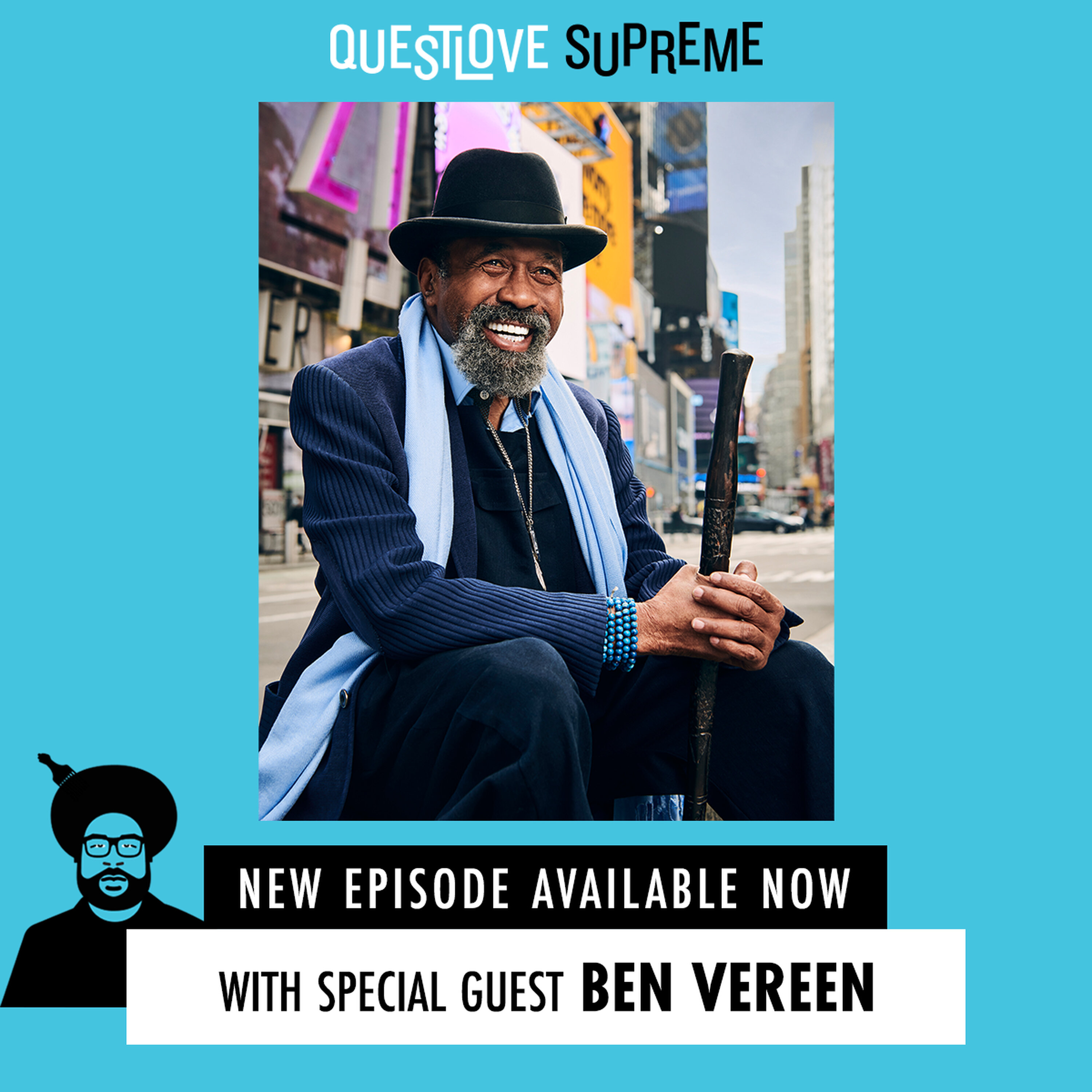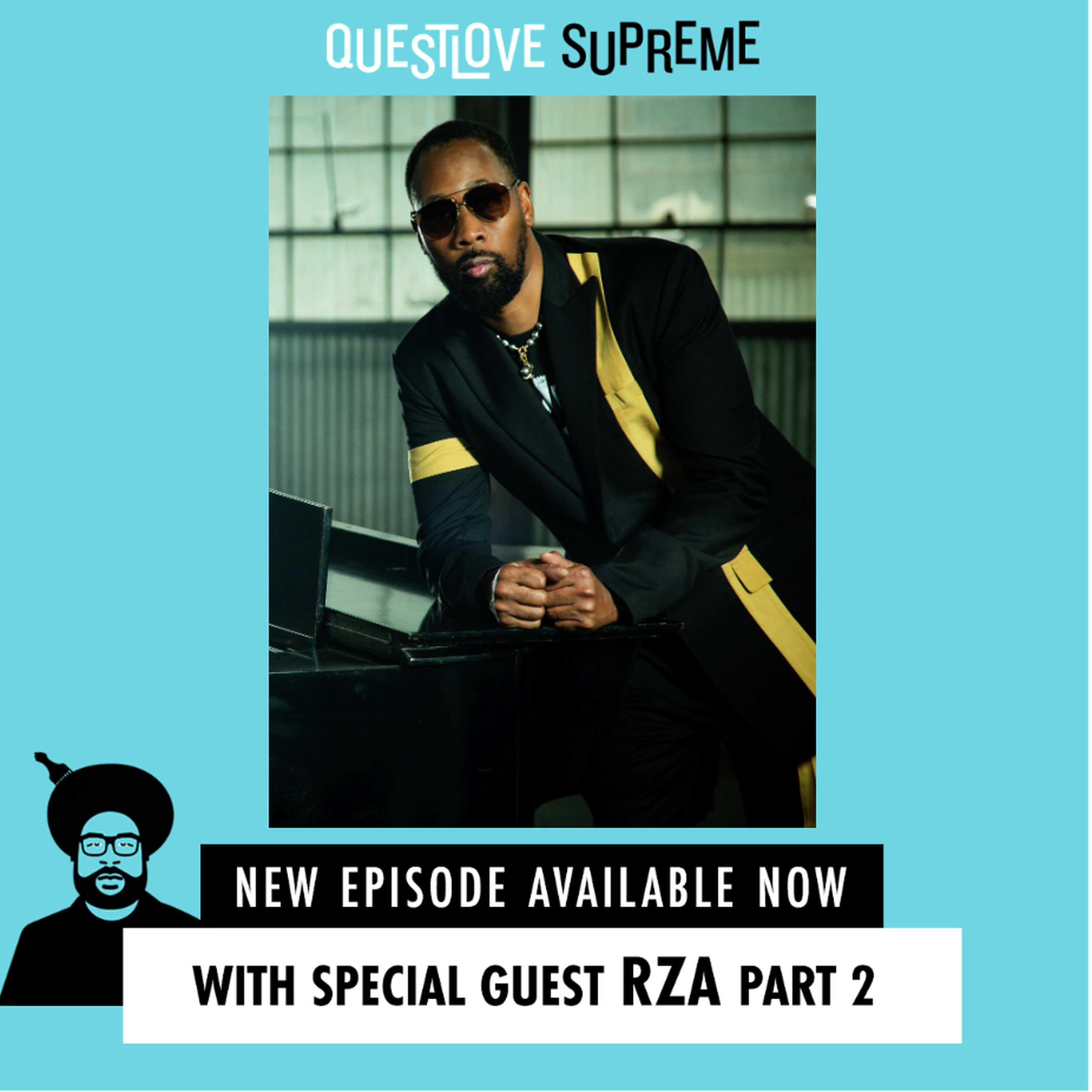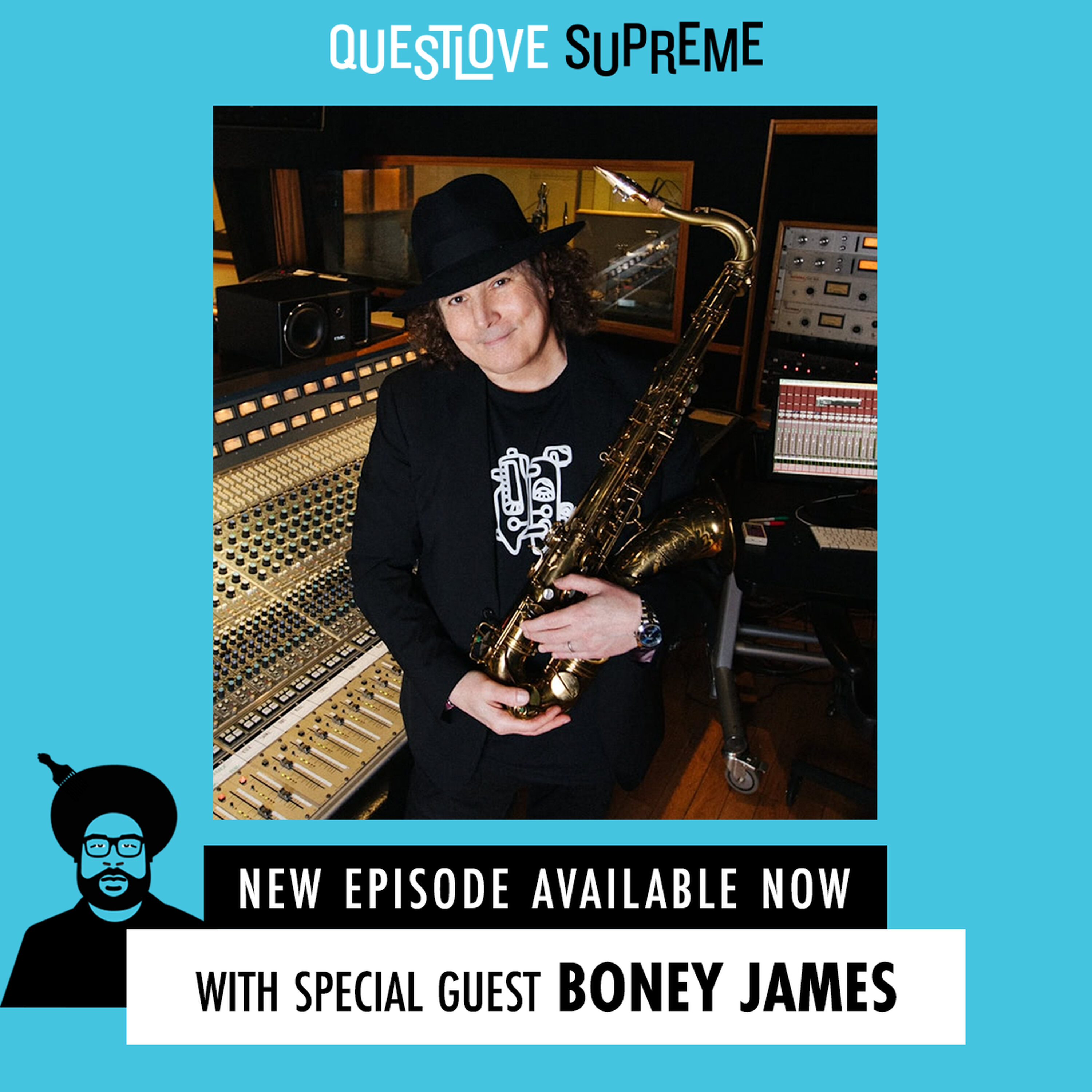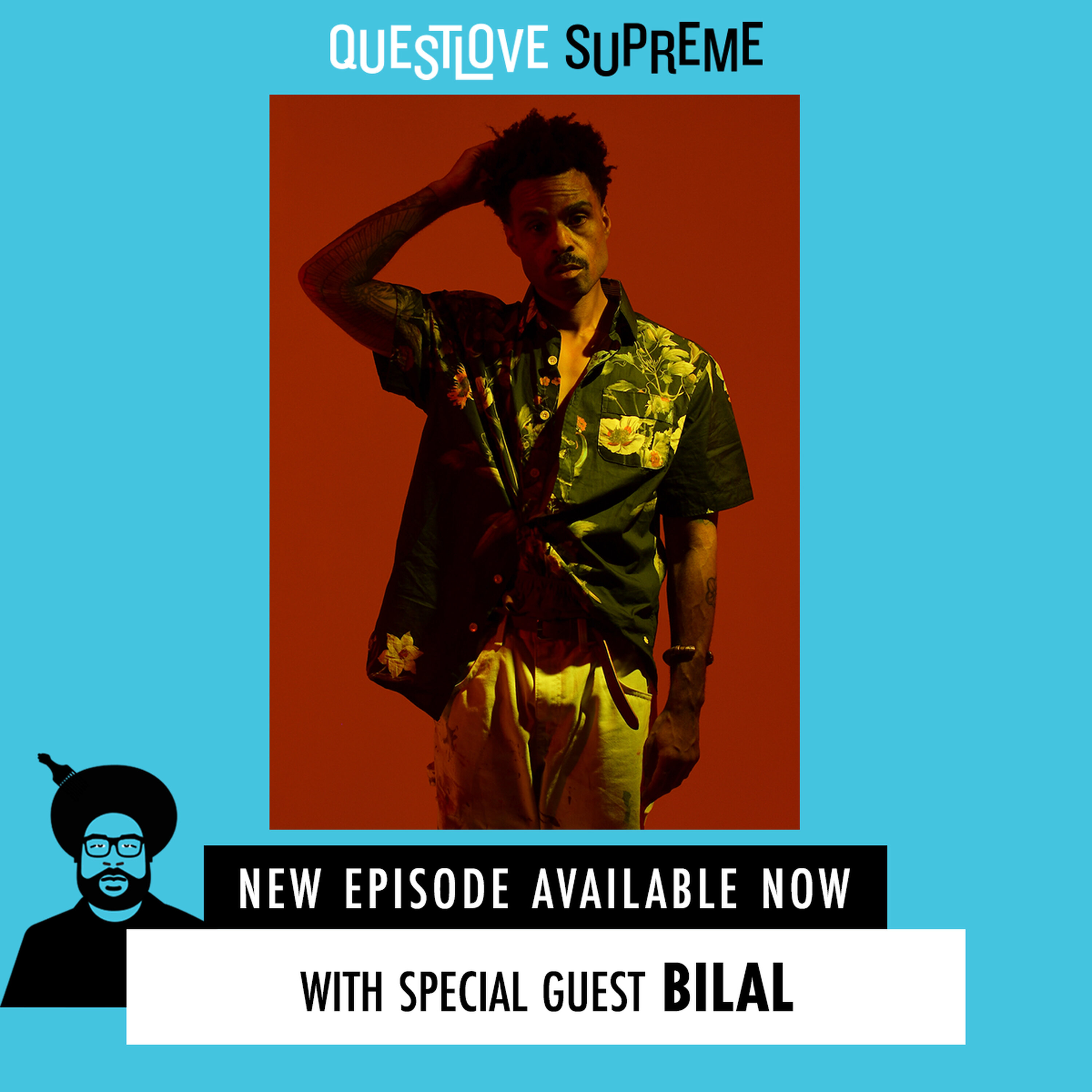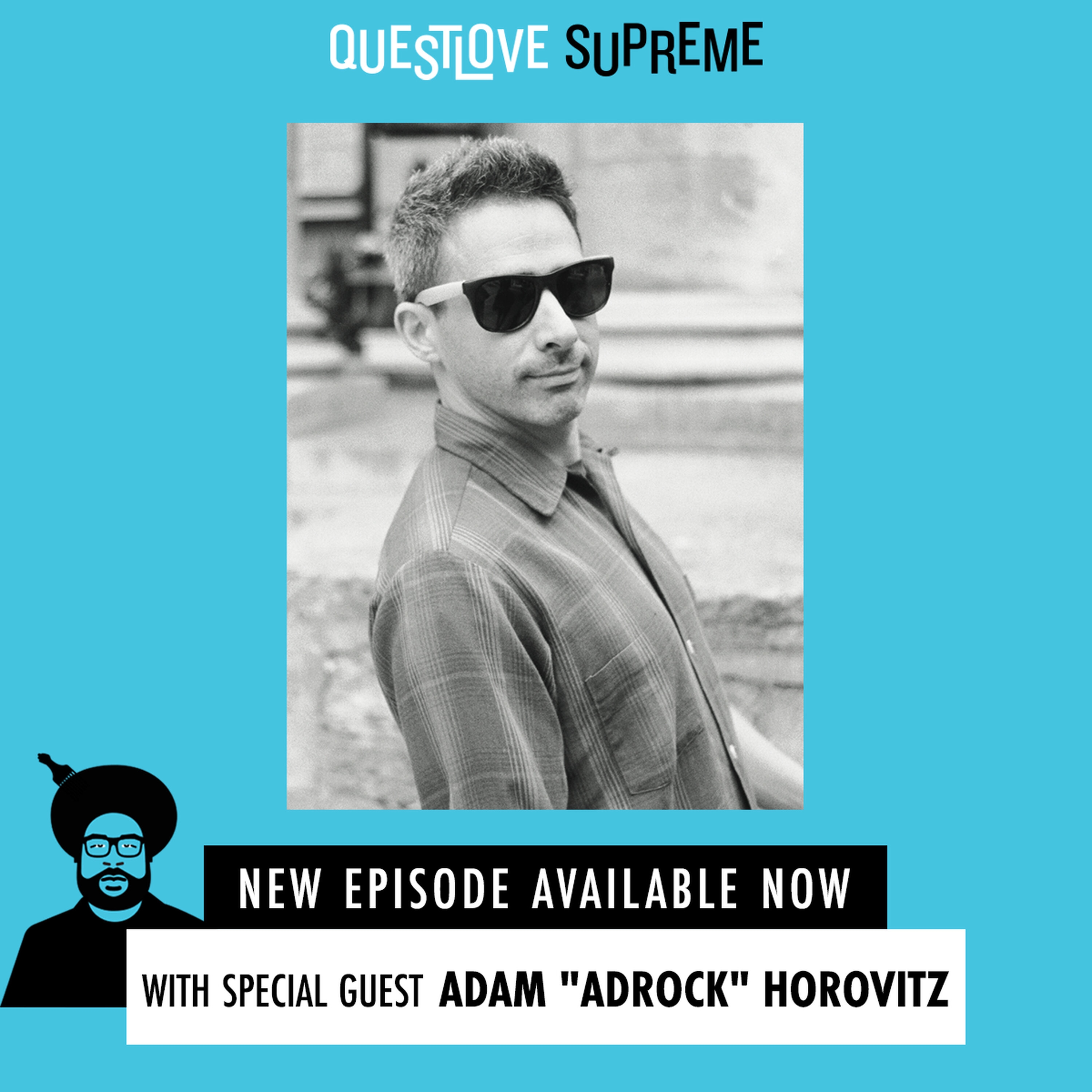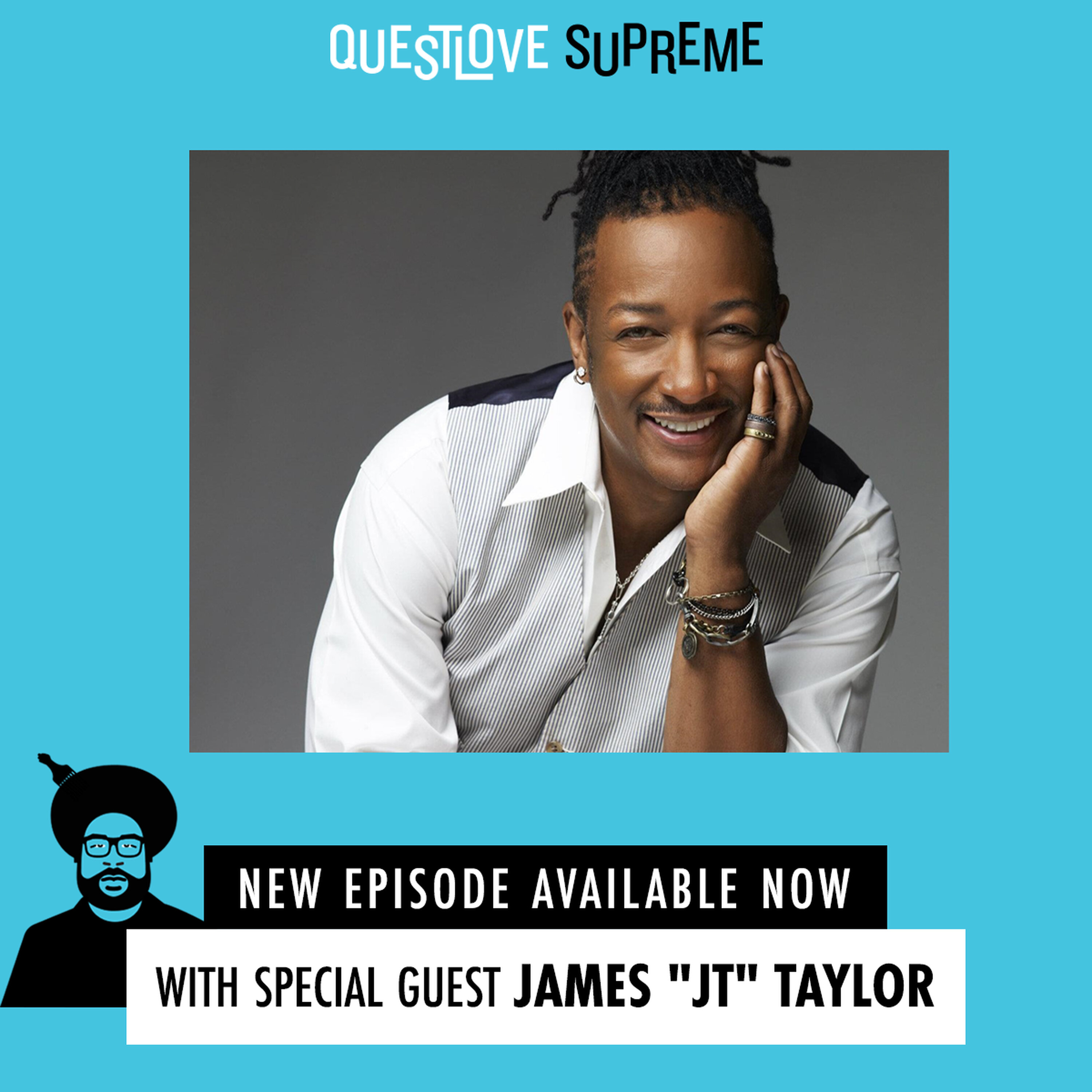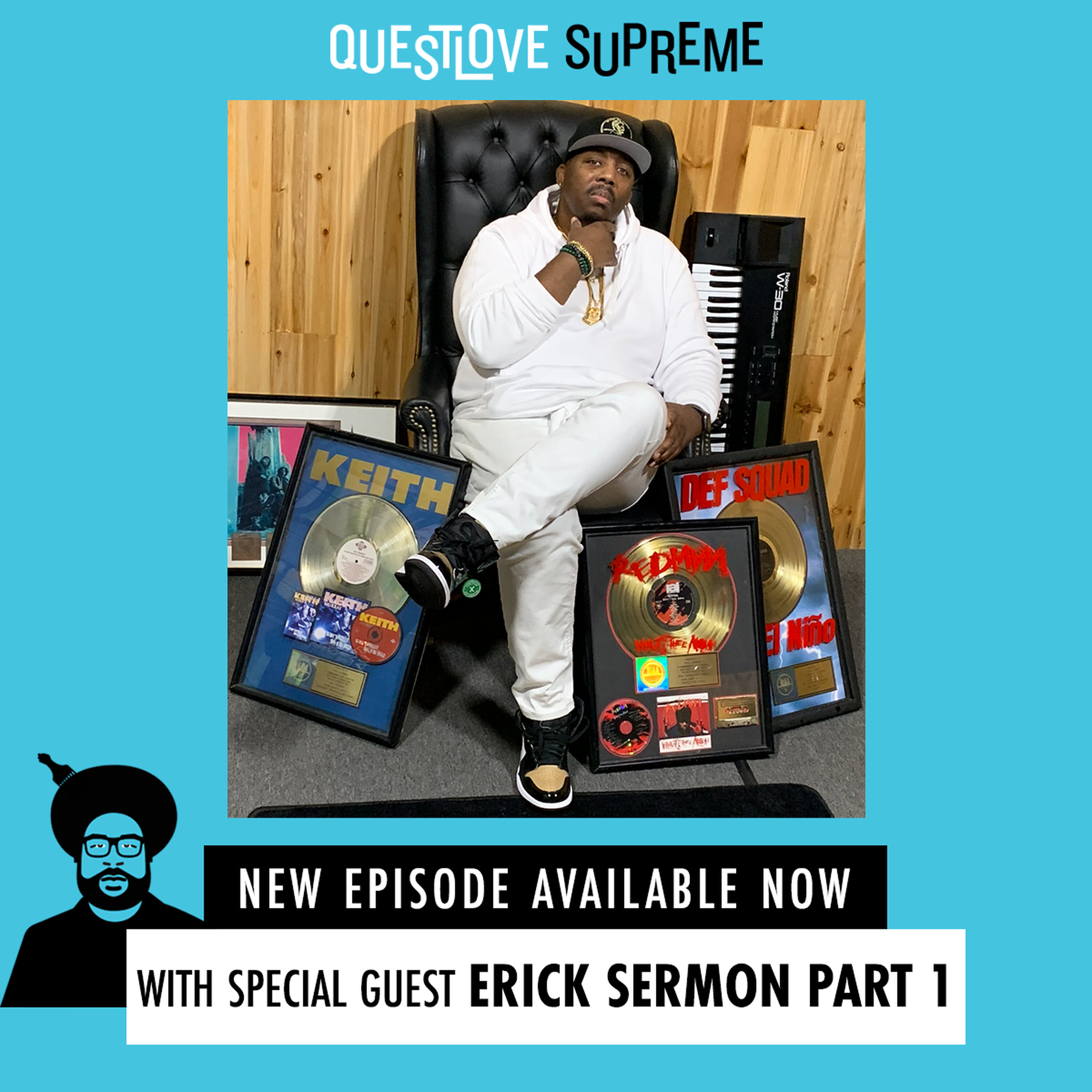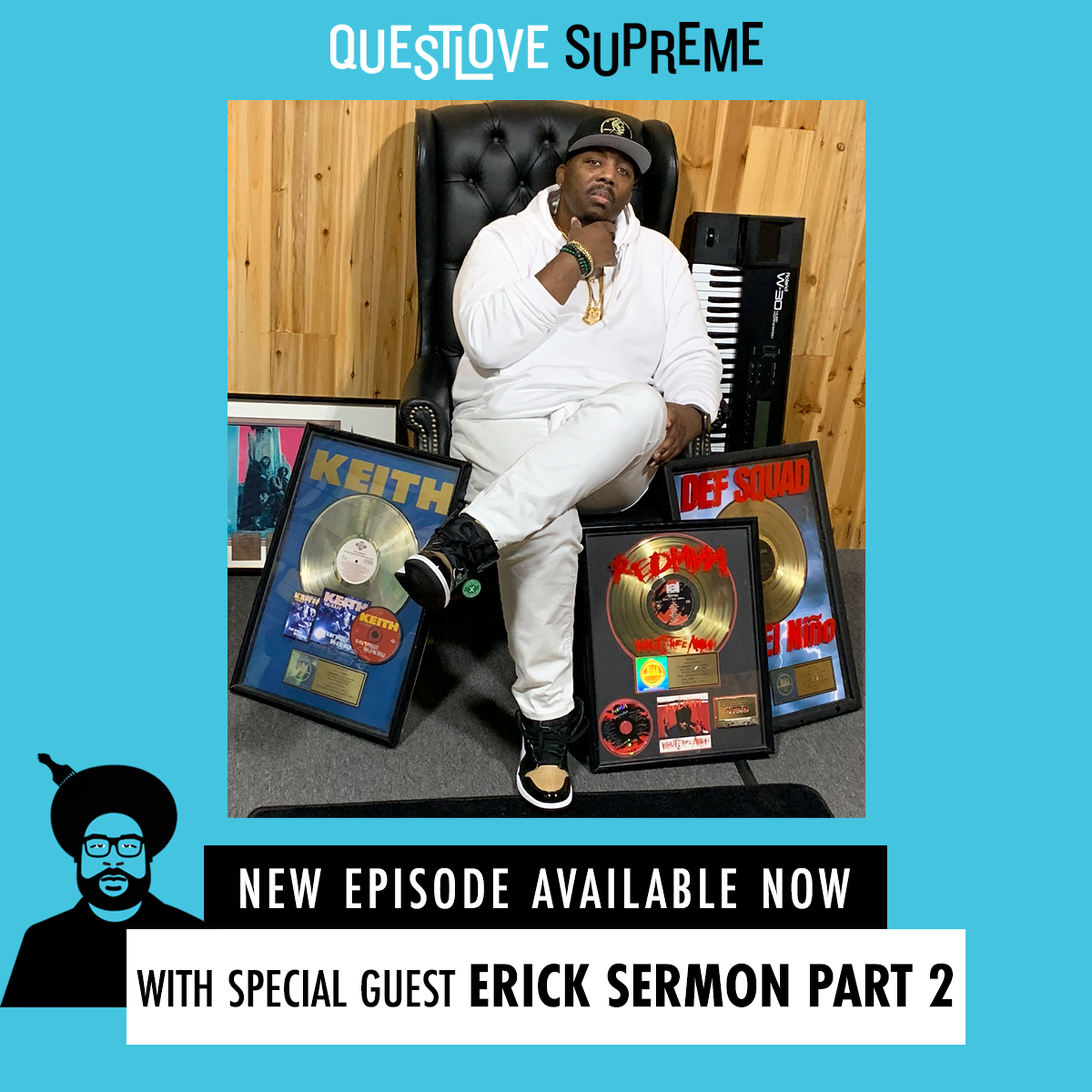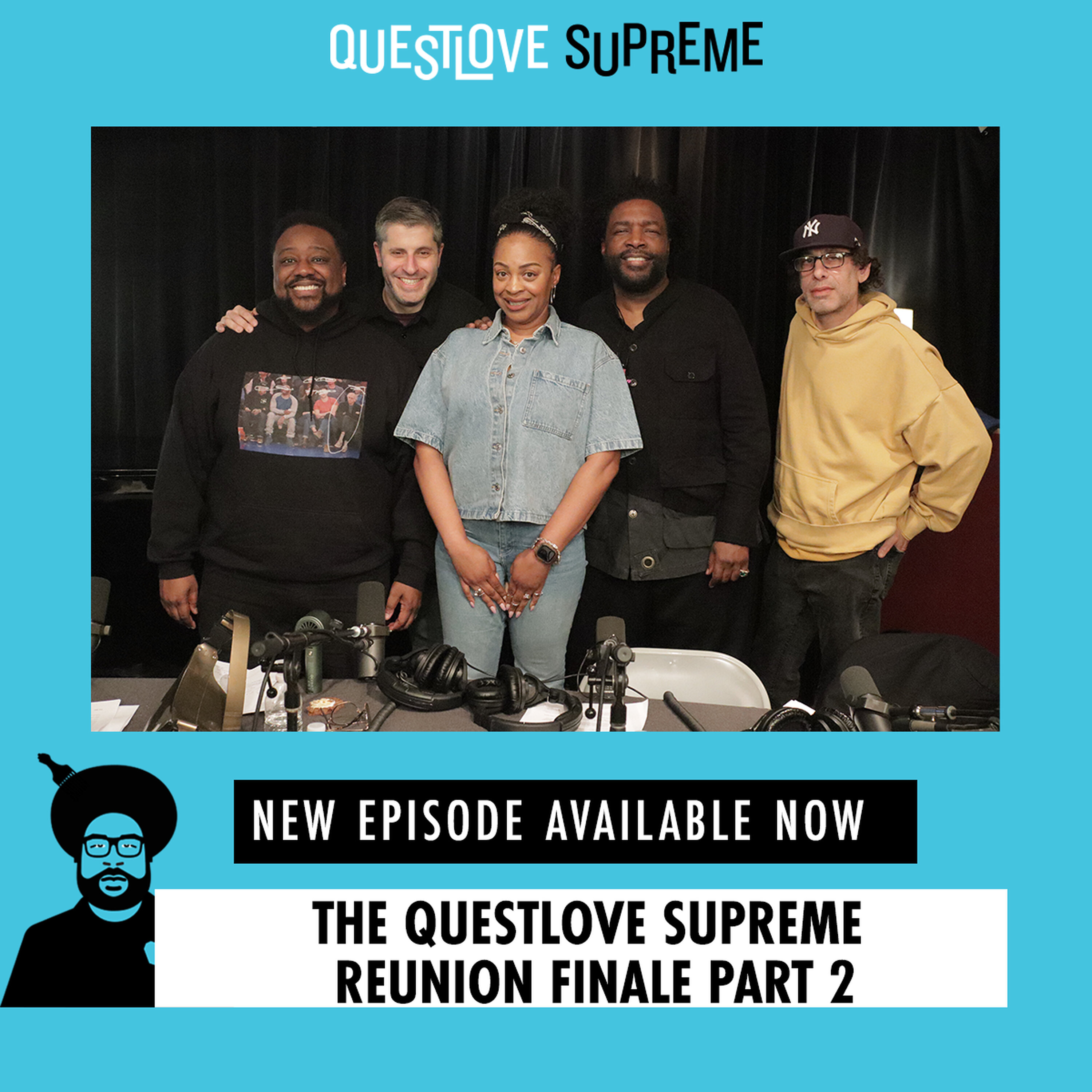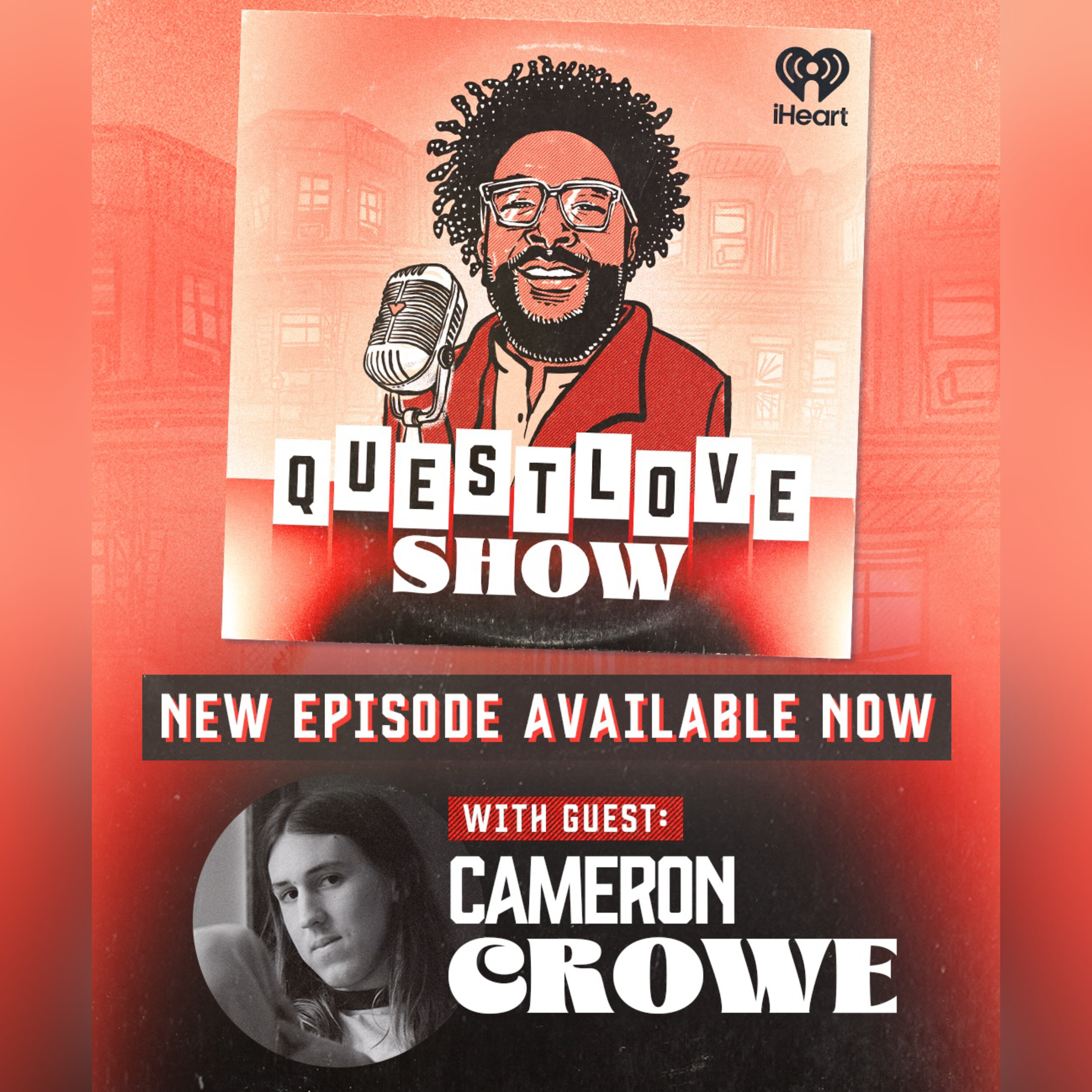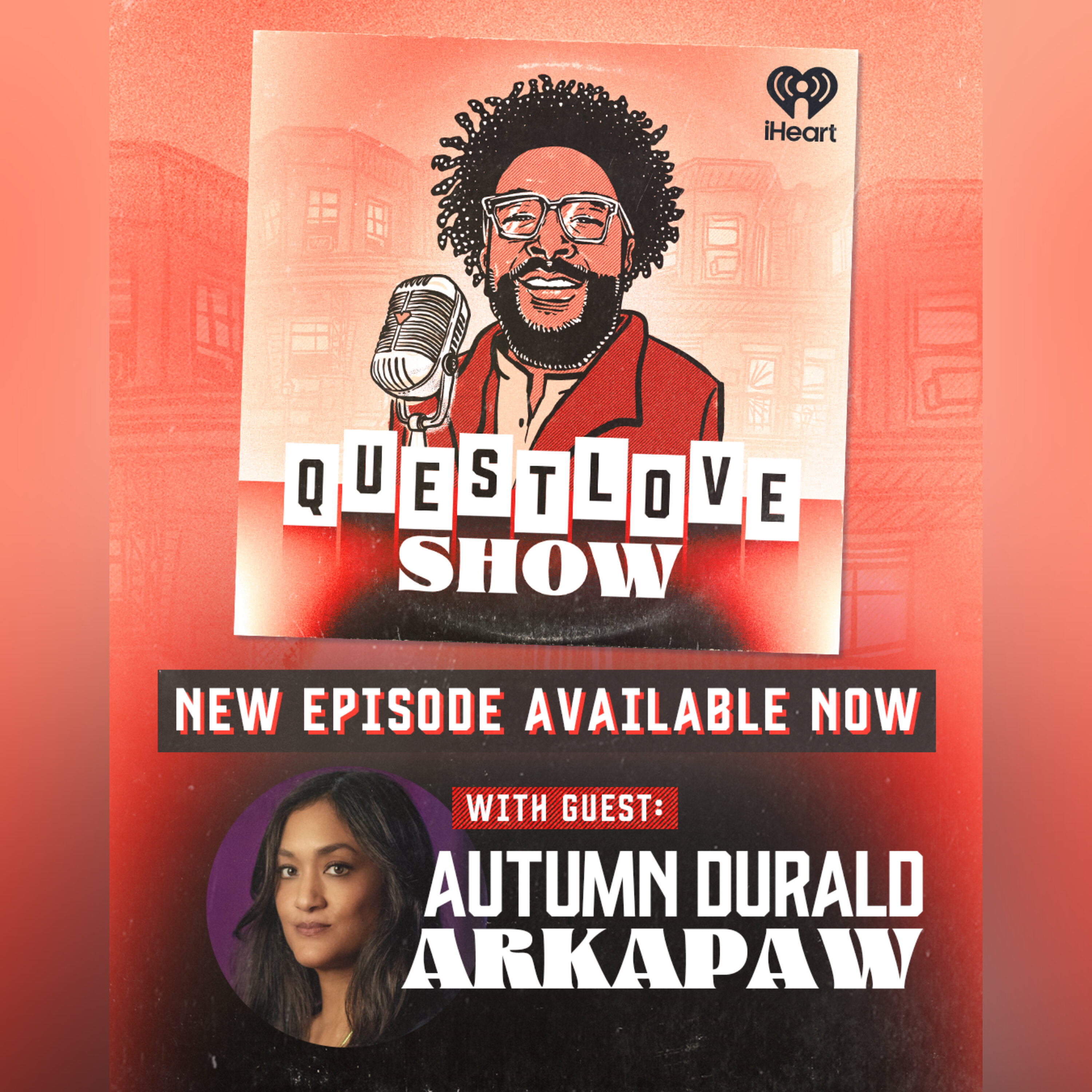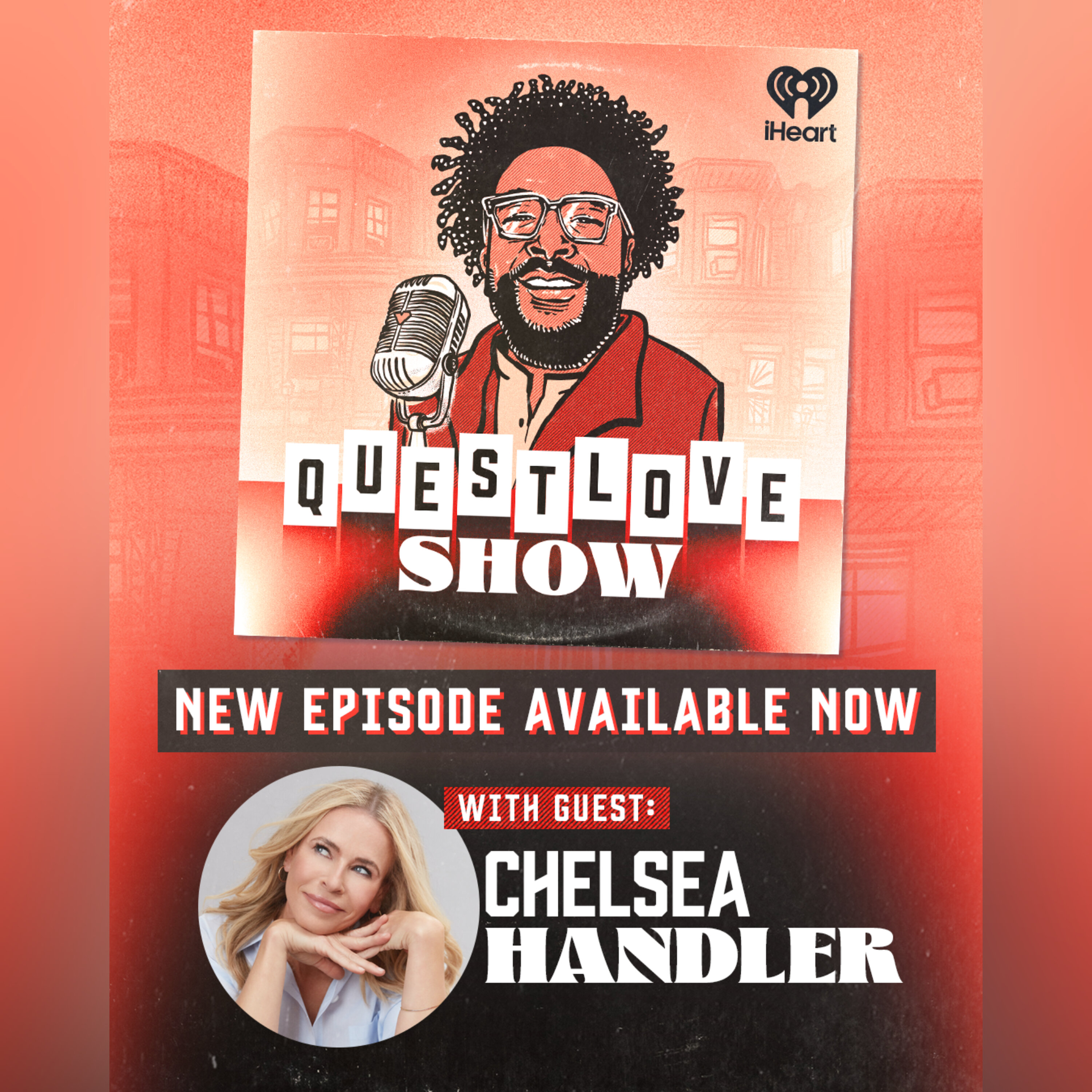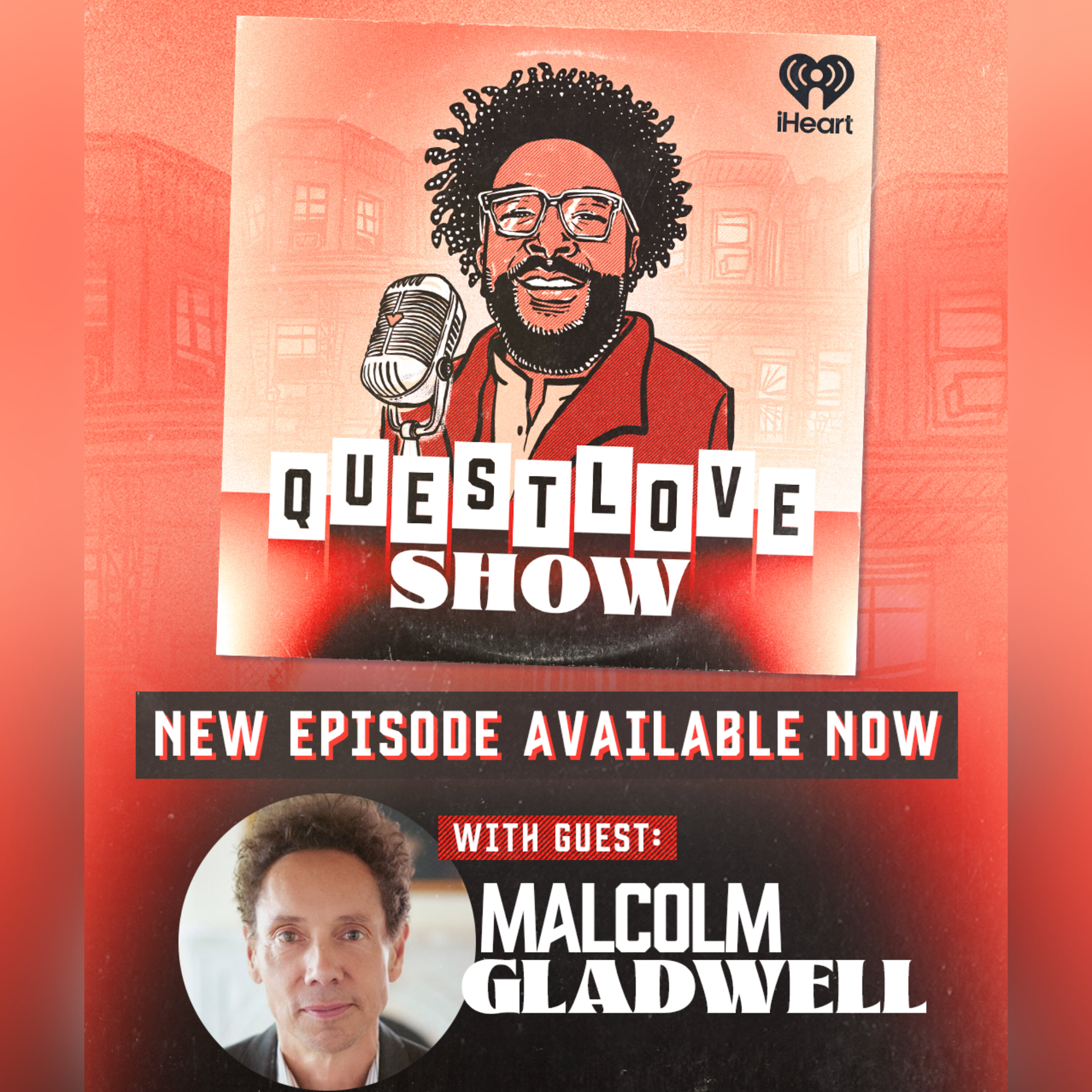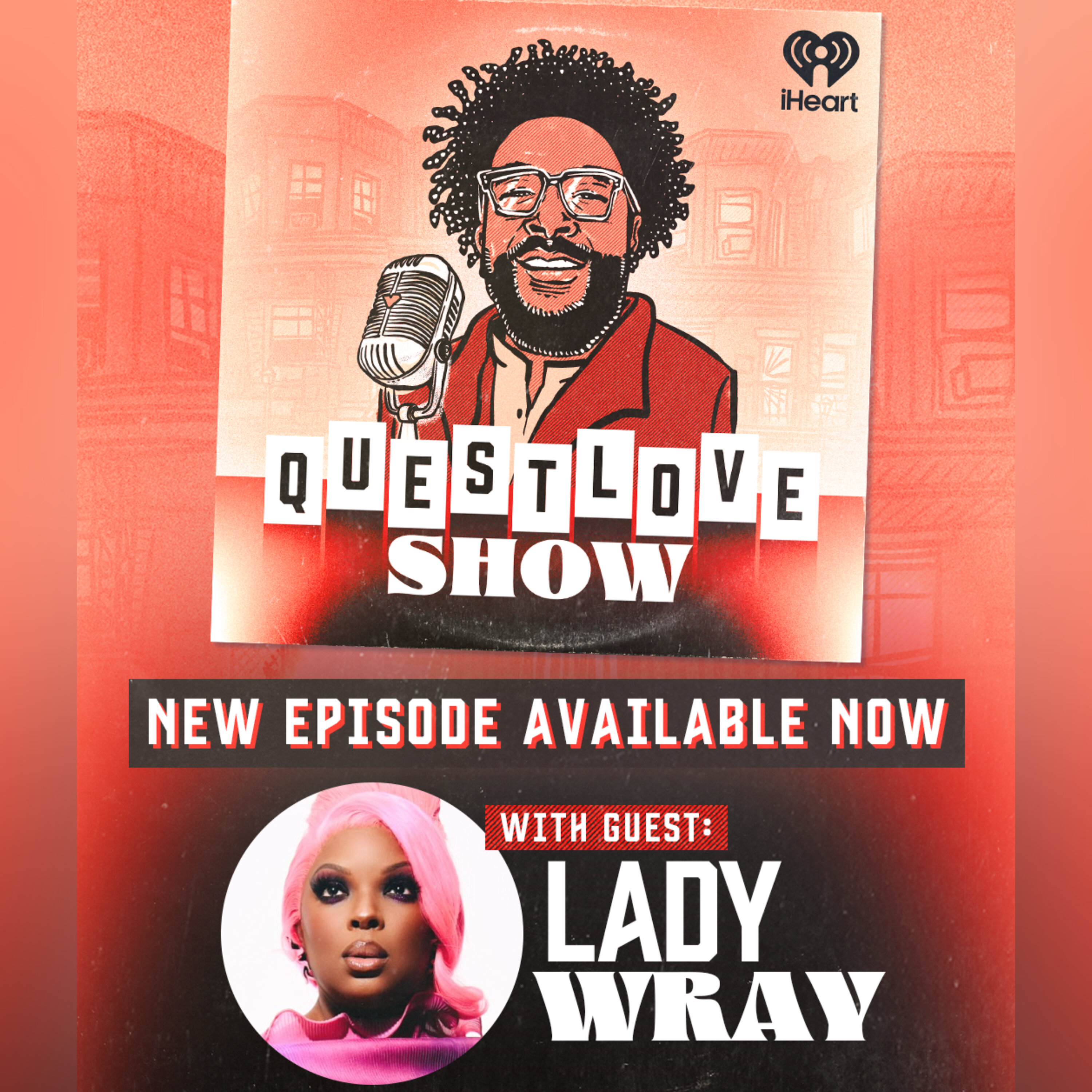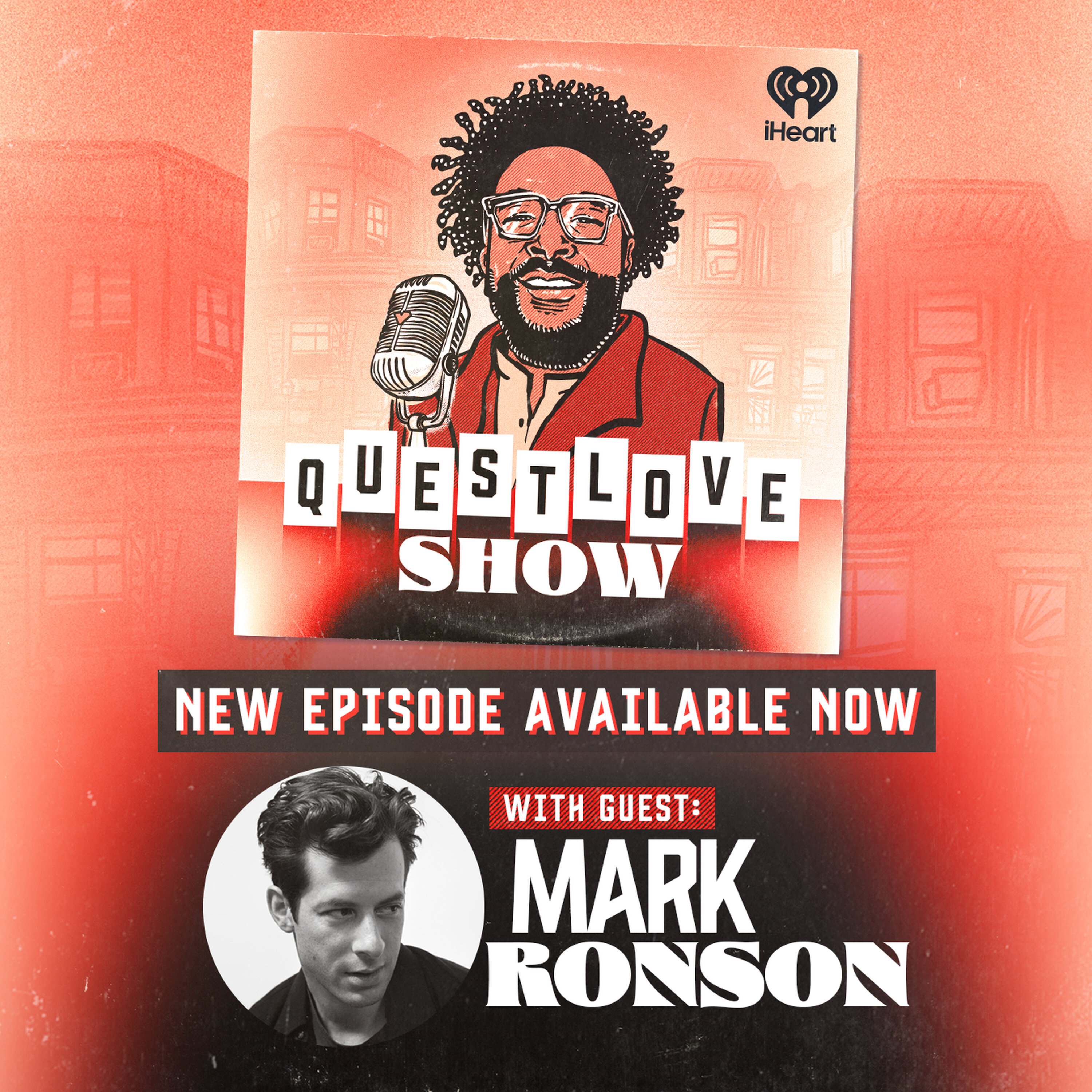Fab Morvan of Milli Vanilli
Milli Vanilli co-founder Fab Morvan speaks to Questlove Supreme about his musical journey. Fab opens up about the highs, the lows, the mistakes, and the misinformation surrounding his career — currently covered in a evocative new documentary. He also remembers his late creative partner Rob Pilatus. Fab's passion for music burns bright throughout this personal and reflective conversation.
00:00:00 Speaker 1: Quest Love Supreme is a production of iHeartRadio. Ladies and gentlemen, Welcome to another episode of Quest Love Supreme. I'm quest Love your host. I got to remind myself that we're now also not just a radio podcast, that we are a visual podcast on our YouTube channel. I should pluck it more. Yeah. So I'm in my red room feverruom. We're here with the team Supreme right now. Six Steve, what's up man? How are you doing, amir? How's how's it feeling to be back at work? It feels really good. I missed my fallin family and very excited about the five star review that we got in down beatfore the Plumb bodrights Man, and we did it. We do be magazine for the Plumb album. Yes, absolutely, I'm walking on air. Nice Laya. How goes it? It is going well, friend, I am excited about this conversations. Are you you recovered from our la assault? Yes, I'm just recovering from your depart suriously. Yeah. Yeah, it took a while. Right, Yeah, I'm glad I wasn't alone with that. I'm paid Bill. What's up man? How's life on the street. Life on the street is good? I got back from our trip to l A. I was home for a day and I went to Spain and Portugal for a week. So I'm a little like for you, what's what's what's going on? I haven't been on vacation in like a year. For those who have children, you take vocations. I do, but once a year. And so I went to Spain Portugal and I sat on a chair and I drank and ate and it was fantastic, and I recommend Portugal. It's beautiful. And now back I got back yesterday taking a break. Font Takeolo is recovering from his wait is it Charlotte or where do they do? Baby? Door? Baby? Yeah? Okay, y'all block party? I know virtually. Well, let's get to it. This is pretty much an episode I've been waiting for a long time to do. We always said we shad this guest on our show, but I didn't think it could ever happen. As half of a Mammoth Mammoth duo, Our guest Today sort of came crashing into our lives in late nineteen eighty eight with an unescapable single entitled Girl you Know It's True. Soon after that, four other Mammoth singles all went to the top of the charts, millions of hit singles, millions of hit albums later, you know, him and his partner basically ruled nineteen eighty nine with an iron fist, pretty much rode their success all the way to the bank. Subsequently, they were hit with probably one of the craziest music scandals that rocked an entire industry, which is kind of ironic considering in hindsight some thirty five years later they were actually pioneers and pretty much how the music industry is today. Like you know, I know that oftentimes, especially in the last ten years, there's been you hear this word called fake outrage. We heard a lot of politics, but you know, haven't been alive during that period. The sort of shocking scandal of what this gentleman has went through. It's pretty much the standard norm now, matter of fact, it's it's it is the norm. So you know, so many people no even with I mean, you know, the number one number one activities TikTok like you know what I mean. Like, so we basically gravitate and participate in the practice that some thirty five years ago we were like aghast and sort of shocked to do and now you know it's the standard, and so it's kind of weird how you can be in a scandal one second and sort of a martyr minute. But you know, I will basically say that our guests literally face the music and really work to ship the narrative, especially after losing his partner Rob Palaitis and now thirty five years later, after a girl. You know it's true, he's getting to tell his story, tell his truth and really getting the last word in with a very very powerful documentary simply titled Milli Vanilli. It'll be it on a paramount plus a mind blown you know, thank god that we get to say welcome to the Quest of Supreme, Sir fab Marvin, thank you very joining us today. Man, how you doing? Pleasure? Man, it's a pleasure to be here. And we won't get down. We're going to talk. We're gonna chump it up and get into it. And I'm so pleased that I know when I've seen your koreer, I've seen you grow, I've seen you involve, and for you to first introduction was amazing. You know thetables than you're right, and you're right about what happened thirty five years ago and bringing it back fast forward here and it is the norm, and it is normal, and nobody is actually flinching to anything because now everybody's in kruts, everybody's working together, and it's all about I get it's a music industry. It's about that paper, but it's become and turned into like, wow, the veil, the magical veil is like shifted. You don't know until it's time to really do it right. And that's where it comes down to. If you can do it, do it. If you can't and don't try to, they won't find you out. Well. You know, now we're in a place where as I spoke to Steve earlier about being back to work, I mean right now we're about to go a step past that. Not even three months ago, someone had admitted or enlisted for consideration of a Grammy. A weekend in Drake song that doesn't exist, So you know, the first AI song is about to get now. And what's really crazy is can I say it? I think I like that AI song better than any song on the current Drake record right now. But that's also because you know, there's a certain texture that I like the music that that that particular AI song with Drake and Weekend is that isn't on the Drake record. But I have so many questions to ask. Number one, So you grew up where you in France? Or yeah, I grew up in Paris, in the center of Paris in the twentieth part. That's where I grew up, and that was my playground, you know, just beginning and come from a creole household. Okay, So we grew up with all kinds of music, you know, so summer and gay and then my dad was playing what He's reading and James Brown, my mom was playing Maria Kallis in some classical music. It was always kind of a popoi at home musically. I'm curious. Well, the thing that I was really curious about was I always wanted to know, especially this being the fiftieth anniversary of hip hop culture, I want to know, you, being sort of the first generation of European people to receive hip hop from the States as it's coming in the eighties, how did that get translated to you or how did that come over to France and to Germany to all those parts of Europe. Well, it came as in different forms, you know, we all know, you know, that hip hop is graffiti. You know, it's the art of poetry, and it's street dancing and it's the rap and all started to appear in various parts of Paris. So you had the graffiti. You started to appear. Of course, because we had the movies. You know, we had Crush Grooving. That movie got over there, and we were trying and emulate everything, and like, okay, so you got graffiti, you have the dancing, you have pop clock, you got the floor as well, and then you got you got the DJ that's doing the blog party and we're all looking at it. You're like wow. And some people were migrating tours what they felt like, Okay, that's me or that's me, and some people, you know, went everywhere and experimented. And if you go, if you look at the effect of hip hop throughout the world, you will see that there's a dance scene of graffiti. There's still like the forefathers of you know, like crazy legs. You have the Italian crazy legs, you have the German crazy legs. So hip hop just spread out to us like crazy. And for me being a black kid, you know, and the majority of hip hop at the time, it was it looked brown and dark and it looked like me. So it was like, oh, okay, so that's that's you know, I was connecting with it. In America. I'd be in the land of opportunity and like Hollywood and you know, entertainment, so we would really focus on what was going on and that was for the youth that was my youth. Was it was it sort of like I mean, was it mainstream as in like these movies are in the theater or was it contraband? Because you know, the short time that I lived, the short time that I lived in Europe during like the roots formative years, like our first three years, we were in Europe a lot, and you know the way that they would collect you know, there was always like a friend or a cousin in the United States that would send tapes over, you know, of radio shows and whatnot, and movies were hard to come by, like you need to be connected to someone that could send you these things or whatever. So how would you guys get the music and the culture if it's not like done firsthand? Like I know that at least the way the stories explained in the movie that both you and Rob were you know, kind of sort of lone wolves and basically like lone black people singular black people and otherwise like non black environment. So how are you guys able to receive this information? Well, as a kid in France, was very difficult to get it. But when I moved to Germany, I was taken to I lived in different places, but I went to those clubs, and those clubs were full of American gis because the American bases were based in Germany. So I going to like those clubs where you know, they were doing the you know, the press man they had, they d had the quiet gloves and they would do people would get on the floor and like you know, it was like for us, it was like for rob and I was like whoa, it was like being in America because there's nothing but America in the club. So from there, we we got a lot there in Germany, but in France you really had to look forward. You had to go to record store. I didn't have the money, so maybe we put our money together. We get the records, we get the sets, but to get the videos that was another mission because at that time, there was no MTV. During that time, early on it was it was not MTV wasn't there yet. How did you know what the look was that went with the music. There was always some reports about America. You have to get to look for it. There was some music report and remember seeing the Furious five, you know, with the hats and the outfit, and I was like, whoa, that looked hard, but you know, we were tracking acted by it because they look like us. To me, they look like And then Jackson five came into the fold, you know, and that was a different form, you know, and then earth Fire, and then of course the Godfather James Brown, and I had a tape I had recorded on television of James Brown explaining how we made music and how those dances, how we made those dances and they were connected to certain grooves, and how we worked with the band and that was really really interesting, but it was difficult to understand. So I always had to get a dictionary. It would take me a long time to figure it all out, but I would figure it out. What was the scene like for Americans to come over and tour? Like how often would you see shows or artists of that caliber? Well, you know, I used to when we were in p Ice, you know, in Munich, Germany, a lot of bands came through, so I saw Charlie Wilson, the Gap Band, for example. And then it's funny because we years later, we ended up meeting each other a few times. So that was someone that I was exposed to the music and it was very, very very powerful. Whitney Houston Prince Prince came two or three times and we were invited to go and see the show. You know, it was only got sent Rom and that was amazing because we saw him in the big stadium. And then he used to do those small shows and I got a chance to see a few of those after shows, okay after shows, and you were close in the front, and that was just that was some crazy stuff to be able to watch it from very close like that. Could you tell our audience how you first connected and met your partner Rob. Yeah. The first time we met when when I got to Munich, I didn't know nobody and I was there with a couple of friends. But the first time, I uh, it was a few times. But the first time where I noticed that it was very competitive between each other was at a university show and it was breakdancing on stage. I had met him short, I had met him shortly before that, and he came across kind of arrogance and I knew why because we were on this turf and it was like, who was a blas those black guys because there were there were no black guys in Munich at the time, So it was like, Okay, this dude is coming too my turf. And that night I heard about the party where he was going to be performing, and we were invited by this dance school that I was that I ended up working for eventually, and he did his thing on the floor and rocked it. And then at the end of this this this thing, this discography on the floor, he stood up and just pointed straight at me and I was like, oh, man, I might do straight, Like what do you want to fight something? Some the way? It was, yeah, can I ask you? Because something is lost in the fact that you are a man from Paris and you moved to Munich. How did you didn't maneuver and why would you decide to go somewhere where you know the language and don't know it at all? Well what happened was I studied German for one year in school, but I love language. It's always been very good with God. So I had that. And then when I went to Germany's because some of my friends were dancing and were teaching in Germany. So they were like, hey, you want you should come down. You know you're going to make some money. I was like, really cool, because before you had the Dutch mark, you had the guilders, you had the French francs, but the Dutch mark was always it was always, it was always strongled. So when they told me, yo, you want to go over there, I was like, yeah, I experienced something else. So I went over there and I studied, I started teaching, and then I was like, you know what, I want to travel Paris Is. Paris been a little place where I was really truly happy and there was with a group of people that I was having fun with. And when I when when I turned eighteen, I was like I'm out. And then because I was, I was of age, you know, I was, I was no longer in mind and I could travel by myself. I was. I made some mistakes. I ended up on the street, you know, no money, having to call mommy and I agage send some money, all proud, but then I had to call her and I stayed and I kept going to the library to learn the language, to teach myself, and eventually people didn't know that I spoke. So when it was stomp to negotiate for the dance shows, I could hear people talking. I mean they were still so disrespectful. You know, it was like, well, you know, and then I would you know, I would yeah, I would be like hey, huh good. So so that was a real learning curve because I was a shy kid, and so you had to like kind of put my chest up and kind of say my piece, and that was very difficult. But when I met Rob, who was my older brother, then he was taken on the slack. He was like he spoke the language and knew the people, and it became a little easier. But Rob was gangster. He was like, ooh, my dude, didn't care. Wow. When you were younger, even before you went to Germany, like what did your parents do, what was like your home situation like, and what was it that you wanted to do when you got older? When you were when you were a kid like eight, nine, ten eleven, you know, growing up growing up in parents, my parents being Caribbean and Creole, we used to go on vacation every other year, back to the roots, and no point attended. And my my my grandfather was an accordion, his player, and during the summer it was Carnival, so he would play those shows. So I would go and see the shows. He would be doing soloing and I was like wow. And certainly my parents returning to children, there was that that wall between parents and children would disappear because of music. And I noticed that really quickly and I was like, oh, man, I want to get down with that. That's what I want to do. My mom was like what island from gup and French at the end. And my dad is from another island called the Saints, and my grandfather came from off the coast. There's some cluster of island off the coast of Calcutta, India, and they migrated to the Caribbean. So you know, so when you create, you know, it's like you put everything in the park. That's why my brother's got green eyes and he's three shades lighter and night, including you, because I feel like this is you from nineteen eighty eight talking like yeah, you're still to say, it's still like you're in your twenties. I need your secret. Music is a secret, you know, really and really loving yourself and surrounding yourself from good people and loving what you do and trying to steep as well as you can working out eating. Well, there's basics, you know, the basics, but if you practice, you know, and with with with time, now we've learned about intermediate fasting. We know more about you know, because of the Internet. We we've now been able to grab onto the stuff, the knowledge. It's the age of information. So you can if you want to learn how to play an NPC, school you too, that's all, and you're going to figure it out. That's it. You can figure out anything software. You want to paint your house, you want to make a table, you go to figure out. We didn't have that. So when it came to playing instruments or you know, I remember I had an NPC, the manual was so thick. I was like, man, I tried to play with that thing, but it was discouraging because I could only play corners the machine. And that's now what they got. They got everything nice, like if you want to do something, you can do it now. You know, to drive the first show that you I guess became a professional that dance show. Can you describe what that show was like or what the name of that show was? Oh man, So that was I was doing that in my French counterparts. We came from Paris with that was first and they were professional dancers and I was just new to the group. So they had certain types of giographies that we rehearsed all the time, and one of them was a slow motion like it was like a like a race and Olympic a race in the music was from Evangelists. I don't know if you go Evangelists. He did the music for a blade Runner. He did this sound trifle baby Yeah Angelic and we would start in slow motion and then it would go into uh like a boxing match because we were doing sports, and we would do soccer all in slow motion, and then it would go to I think muscle from Donna Ross and there it was kind of like you know in Box of shorts. We ended up in the box of shorts, and then we would go into this you know, motion and carography and dance and and it would be done at summer and so on. We picked the music that we felt like felt good, and I would finish with Michael Jackson really because I had I had a Jay car at the time, you know, I said, so, we put the product in the hair, and I would I would go back and change, put my my pants, put the socks on the shoes, and it would be Billy Jean. You know. Of course, you know, everybody was a fan, and I was a big fan too, So I thought, yeah, maybe we should add that at the end to just create like climax. And then, just like James Brown, at the end of my performance, one of the guys would come and put a cape over my back and I would leave the stage, you know, because I had seen James Brown do that, I was like, oh, that's cool, that's crazy. So can you explain the process, Like how do you guys meet the attention of Frank Farrion? I guess for our listeners who might not be aware of Frank Farrian impresario kind of what you would say, I guess a manager or a producer who kind of brought forth to world acts like meat Loaf, not to mention Bony m as well, well, he did the like I know, it took meat Loaf like twelve thirteen years to make a follow up to Bat Out of hell, so I know that who produced the first one. Steve Todd Rundgren produced that bad out of help Meet Loof album, right, So the follow up record, I know that Frank Farian produced that or had a hand in it. That's so odd for him after watching his documentary considering like meat Loaf visually was not what you would have thought would sell, but he really cared about those things. That's yeah, Well that's why I want to know, Like, just in general, I don't know much about Frank Farian as a starmaker or as a producer in any of those things. So could you tell us, like how how you guys first met him? Well, how we met is because we used to play soccer in Munich, Germany in summer and the majority of those guys who were connected to the music industry, especially one of them was Benoble Hide and it was a guitar player Studio Kat, who used to do vocals for Frank and play guite. Frank and we were close to each other and we would try we were trying with different producers in the city of Munich, you know, try to get into music industry. And he was a friend of ours and we told him, Hey, you know, we'd love to find the right people in the music industry. Maybe you can hook us up. And we started to put a band together, performed in the city, and this guy also was part of the band. We rehearsed for two weeks and performed in Pis in this club that was a very known place at the time, and from there people heard, they heard about us, and then it went all the way back to Frank and then Vava. It came to our, It came to us and we got the number and I called. I didn't know. I didn't know who Frank was. I knew Bunny m m hm, and but I grew up on you know, Ciron Yeah, uh our listen and base wouldn't know that as the rocket in the pocket breakbeat that most hip hopthes spun in the seventies. But yes, from France, that's right. And that was like, you know, I used to listen to and I was listening to a bunch of out there stuff. But then Bonniem came around. I was like, oh, that's cool too. So when when Rob told me, hey, that's Frank Farn that's Frank Finer producer, I was like, Okay, I don't know who he is, you know, you know Bonny m And I remember going to parties with the kids and Boniem was playing, but I was more into disco summer and that. But then when he told me how big this guy was, I was like, Wow, let's gold, then let's God. And we ended up going to the studio and that studio, you know, I watched a lot of doc as a kid about music. And when we got into the studio, it looked just like the studios from America. It was. It was, there was consoles, it was it was like the real like with our boy gear, like in the square, the whole wall, and it was four rooms like that. There was no one. There was four SSL NI console, best micro for everything and in every room it was at least five people working. So it was like a factory. So we went in there and then to top it off, you get all the gold records on the wall. So we young naive, didn't know anything and never signed any contracts before, don't have a manager and an attorney, nothing, no, no experience with in that regards. So going in there was like, man, we made it like we were the right home, you know. So we met Frank and we had a conversation about music is assistant slash slash slash And because I said slash slash slash, because she was. She was handling the business. She was the she was the she was the charmer. You know, she was like you know she she would like you know many blind used parking speak in a very soft voice, and you know he trusted her. Frank would never be in a room too long. We speak with you, then you'd be out and then she take over. I just wanted to say hi so shortly that we never really had big contact with him, but he said hi. Was this is the head. Yeah, young lady that's in the doctor. What's her name? Yeah? And great Yeah, yeah, Angrid. Yeah. She would do the stuff. She organized everything. Yeah. I wanted to know just the kind of basis of operations, like, so, what do they explaining to you at the time that you know, you guys have a look, we could make you guys the big stars, Like oh, like, are they telling you at this moment we can sell trillions of records or are they just basically saying like, look, let's just make a hit single and see what happens. No, it was none of that, as because you know now inside twenty twenty. The first meeting we had was to look what we look like, because they heard about us, what they look like, what are they about? You know, So we just spoke about music, you know, and like I said, Frank was there very shortly, so it was more in contact with Ingrid and we just talked about our dreams and what we would do were we're the same, you know, just like a regular artist who gets an opportunity, so you try to sell yourself. You're like, yeah, you know, you know, we really want to work with you. We sing, we performed, you know, Rob played played guitar with some basic blues chords, and we would try to write all the time, you know. So we talked about, you know, the fact that yeah, Rob played guitar very well, but we said he played guitar, we sing harmonies together. You know. It was not that long. They were busy. Said okay, it was a pleasure to meet you. But what was cool is they pay for the rental cars. So I was like, oh nice, you know, so you know, we didn't have to spend any money to get there, so that that was cool. So even the meeting was short, We're like, okay, so we'll call you, We keep in touch. We got the numbers, you know, and like you know, and this we were told they talked to Ingrid, she's the one to talk to. But Frank, no access anytime. Did anybody comment on your actual singing voices? That's what I was wondering, is y'all were going through this part of the process. No, no, no, it was just the first meeting. Then after that, through the months, we you know, we were like, okay, we're going to get in business with this dude. We know we got money. We were doing you know, we were performing, but it was not bringing the money. So we were like, okay, since we know we're gonna work with them, maybe we should call them and ask for you know, a little bit of money, like you know. And they were always very nice and say, okay, yeah, yeah, yeah, here's some money. We didn't know that that money wasn't free, so we kept calling, We kept calling, we kept getting because we had to pay our rents, you know, hook up that hair, you know, eat, the basics being that much. So then finally we were able to come to the studio, you know, and first it played us first of all, before doing all that we'd signed a contract because we came a few times in between and we signed a recording contract. So that's why the money that we have been we've been receiving, you know, prior was becoming Okay, it's official, signed the contract. There is no no manager, no, you know, no attorney. And today was a talking to someone and it just popped on my head that we were given the last two pages of the contract. We were never given the contract like, hey, here's the contract, go check it out like this. No, they gave us the last two pages. I didn't see that contract was in German, so we had to so, hey, here it is. The money was there. It's like, yo, cash, he's on the table. I won't. We're gonna on paper. So we just signed. That's just like that. So we thought like, man, it's cool. And then after that we kept asking for some money because it took so long in order to get to the studio. Until we got to the studio, and then I didn't know much about because the studio that we worked at they used to have like task them. They they didn't have like the knees with the tapes. When we come to the studio, all the tape hanging on the wall. It was like, oh, oh is that. It was like like, oh yes, because you know we know where everything is. Oh cool. But when they played the track, I'm sure they mute the vocals because the vocals everything was so y'all sang these songs. Oh God, y'all sang these songs. No no, no no, no no no. Listen the songs were you recorded. The singers were already on there because they were recording music ahead of time. So if I would have known about how as to your works it picks to your works, it could have seen like, oh, lead vocals, backgrounds, here, harmonies. I didn't know, So when we came to the studio, they just they did what they did. I'm sure they muted. Andy said, hey, it's track, and then it was just instrumental. Okay, so wait, I didn't play the vocal Okay, I get it now. Yeah. No, So but that track was banging. I mean you had like you know, you had the main that was paw. It's like for us, you know, when you're young, your imagination runs wild. So we saw ourselves like on stage and doing this thing. Robbays looking at me like we were smiling, like he was like Yo, we're good, but we never talked until this point, nobody came no vocal coach because you know, everybody wants to vocal coach. I mean, you know a lot of people were I didn't know that. But there's a coach, there's a songwriter, there's and you take people even though they don't have the talent at that moment, they got a little son something. Some people invest and they believe in them. And then after an album of two like yo, they're good, They're pretty sweet. But it was none of that because the only thing that was interested in from the beginning was to use the visuals. That's all because he did it with Bunny him they may explain Frank Fyon sang the vocal of Bobby Firell got the blind from Yeah, I did not know that. So Frank did the vocals for Bobby Farrell and that's where he found his formula, like, oh that works. Also, the one thing I heard was that, and you know, Frank, it was an artist was trying to make it and the music that he was making. The label were like, hey, now he can make black music, you're white, and you know what happened? Like so as an artist, he was like, oh, so I can't do black music because I'm white. All right, Dan, so figured you figured it out. He got his formula, you got the girls, he got the guy, and then he did the vocals from the guy. And then he kept working and kept working. He kept working. Then years past and moving and it comes around, well he can't do that. So what he's gonna do. He's gonna go get people that he works with in his studio, have them come at night military operation. We are in Munich. We don't know nothing. They got the guys, but the thing is they were already looking. They were preparing us stuff in advance. We just came into the foe. We just fell into the trap, not knowing that the sole thing they were willing to they wanted to use was the face. So singing was that never came into play. So when we heard the track and we were smiling, then he took us through another room and then he kind of put it on us and he started talking to Rob in German. Because through the years I was more like an after the fact, I was never I guess I never was really truly respected. I never felt you didn't have the green ass. Well, yeah, I was missing something. So it was always they were talking to him and they would relate everything to me, and he would then you relate everything to me, and he was getting pissed. Rubb was like a firecracker, so I could see him like, oh, my dude's getting mad, Like, yo, we were feeling good a second ago. You messed it all up. I'm thinking you said something wrong and we lose We lost that thing. The dude walked away pissed, pissed because we didn't want to do it, and Rubb was like, no, we're not doing that. So Rubb was already saying we're not doing that. But then you know Ingrid, like that, the voice of reason comes, like I think it's in Mogli. You know, there's the I think it's a snake in Mogli that comes in like m sweet talk and makes you look at reality. Hey, you got some money, you know? Hey, But fab in retrospect, when you look at Ingrid and Washington's documentary and knowing the history of like where Rob comes from as an orphan, adopted child and all that, don't you think she fed right in to all of that, like she became this also kind of like she said in the documentary. Yeah, but she said we loved each other with no sex, so not even just a mother. It's a little sicker than that mirror because she like mother. But but he hot though, you know, but we not it was listen, I don't because when I saw that, I was like, it made me feel weird because I know Rubb was gangster, and let me tell you, Rubb was. It was always gangster. But when with the drugs it became he switched, it was not the same person that I knew. And then it was about it became by him, you know, because it became you know, he became an addict, so then it was not the same dude that I grew up with who had my back and all that. So maybe it was just you know, taking care of you know, of so many words for this in twenty twenty three, with the traumas and knowing like a little bit of a round history and it was inevitable if it wasn't nurtured correctly that he had a baby, he had a big void, you know. And obviously when you go into entertainment like like I did, and it was you know, you want to be loved and what you don't get that stuff at home, you're going to go and get it like in another way. And when people say, oh I love you, Oh you're the best, you know, and that when we got that, that's part of the seduction because we did that for a single. And then obviously we sunned and a contract for five albums, which we didn't understand that concept because we never seen a contract. We just know. We just thought it was two pages, but it was a full, full on contract. Your clauses and you know and all that. Can you explain the basis of how you guys came to the name Milli Vanilli. Okay, so the name Millie anally was you know, there was a group called Pretty Polity that was from London and we loved we loved their sounds and we loved the way it rolled on the tongue was pretty Polity. That's cool. So we're trying to find something. So we and then we were thinking, okay, ice cream, dark dude, live dude, like ice cream. It was kind of cheap, didn't dark and we like, oh, nearly's cool, Million's dope. And then somehow this ingriaged little name was Milli. And then when we how we mixed it all up and it was like MILLI van nearly and then it had this ring to it. It had Italian, it kind of sang and it's tough. It was like and people always ask are you million? Are you nearly? Yeah? I initially thought that one was million, one was vadilli. That's right, that's right, that's right, And and that's how it came about, you know, like that and we just roll it. And then what happened was we did as first trial. I'll tell you, like, because I'm sure you're gonna ask me the question like, so how did you who picked what and why because you know, obviously we didn't sing on the record, so it's like, why did you pick that? And what did you pick that? Well? Truth and matter is that Rob was like, I ain't trying to do much, so oh Rob, it's smart. Was the video the first thing that you guys did as the unit, No, no, no, first it was we did first we did a I think it was a trialout and we went to a radio station that was regional and we did this thing and there was no talk of video. And then that that thing that we did at a TV studio basic after picking up the parts, that thing kind of it went like wildfire into region and that's when Frank was like, hell and we got something there, you know. And then they started to like test the record and play the record in the clubs, in black clubs in Frankfurt and in the club called Funkadelic where Frank used to go in with the vinyl because he had a Furman No, I forgot the name of that, that vinyl machine where you can print vinyl. Yeah, he had one of them. Yeah, and then we test press, go to the club and we'd come back and be like so then when when you had it right and funk the lick was mostly dark skinned people mostly, so it's all Americans, and you know, like he was like, yo, I got it, I got it. But you know that was done by new marks, you know, right, that was a cover so it was not too difficult to like, Okay, you already have something that is obviously great. But he blew it up. You know, he had a bigger, better equipment, but it kind of duplicated it actually what it was. But I can't take take it away from him. That first she had the instinctive pick that one or somebody else picked it and brought it to him, right, Okay, So at what point do you realize, like, oh shit, this is going to be major Because even then, like you guys weren't on Aris director yets in the States, Like oh no, it started out as an NDIE labeled thing and sort of just rose its way up to the top. At what point do you realize, like, oh god, this is going to be something? Well, it was we were we were living at a friend's house, you know. We it was like a very small apartment, and they had the showco Formula one form the lines, and then it was a Saturday because on Saturday the Charles would come up and we were there just watching it and here we were. It was like and we used to watch the shows regularly, you know, like and we used to dance behind some of the people that used to perform on that show as backup dancers. And then there we look at the TV. We hear a song. We were like, oh my god. We started breaking stuff in that apartment through excitement. It was like it was like hearing your song for the first time on the radio. It was the snippets, but we were in the charts because they were playing the chorus of each songs from the bottom like the entry. So I think they were doing the top twenty and I think we were we were number twenty there. But then it went we went quick, like super quick, and then it started to get organized and we had to be that we were sent on the road. And then there was like suddenly we had in grid around and there was a car, there was car service, then there was hotel, and it was planes, and then it was like, okay, are you curious about the actual voices that are you're hearing? Like do you ever wonder who is? It? Always always curious. As a matter of fact, I ended up working the past seven years. Six years. I worked with John Davies who passed away. Okay, that's cool, you know, Yes, we were on the road. I've been on the road. I performed the songs with the band without the band tape. You know, I've been doing that for years. It's super common now, Like right now, I'm a shit. I just came from a Duran Durant show and I swear to god, there were at least eight MacBook pros with like at least five terrorbyte hard drives backstage. So what was the technology like back then? Because in my mind I didn't start seeing at least like the blatant technology at least until the early aughts, like ninety eight, ninety nine, two thousand, where there's pro tools and that sort of thing. So what was what was the process like and preparing for performances back then? Well, the process is what happened was we got the tapes because we did one hundred and seven cities shows in eight months. So the process is we got the twenty four track tapes, went to the studio and then the engineer, music supervisors were in the room and then they say, okay, we need this, we need this, we need this, and then they transferred that to a fair light. Oh okay, we went through a fair light. But before that we went into I think it was for the MTV tour we did I think in Oberheim, like the big Oberheim and then the so everything goes in the keyboard. Yeah, everything goes in a keyboard. So is it triggered or is it like to the point where because the thing is, I don't know if back in eighty nine to ninety if there's in ears where you hear or the count off and all those things. Now, the count off was like it was a drummer count off was drummer dark, dark dark, and then and they would just have to play to the tape. They played the tape even the band. The band was playing, you know, but we knew that. We knew that after like a couple of bars, like okay, let's it. So it was rehearsed as well. So exactly a lot of work went went into it. You know. It was because it had to be seamless in order to be believable, you know. And I just loved the process of creating the show. We we created the visuals, we you know, we the band. We even added sections because we thought because we listened to everything when you came when we came into our room before a show, it was from a CDC to get band to cool in the Gang, to the Beatles to led Zeppelin into sex pistols. It was everything. Because in Europe the charts was you know, everything went into the same charts. There was no separation. So I remember we added a van Hale and solo in the middle of So we would come up with those ideas like for example, I had simple because I had a Chai. I had a small Achai nine hundred. Yeah, there was the end of nine hundred. There was a thousand, and then he went up and I would I would watch movies in l A and I'm like, oh, I saw Ben Her and Ben Her at the right yeah, And I said, told the musical director listen, I want to I want to start the show with this. And I was like, are you sure, said yeah, yeah, yeah, yeah, I'm sure. And I was a fan of classical music. So when we did the first time, man, it was like it was like the arena and the crowd went crazy, and I was like, oh, we're keeping that because it didn't. They were like, are you sure, I can't. We're sure. We put the bills here. You know, we're the boss, so just trust and then it worked. So we would add little things to make the show, make the show better, because that's how we could really affect because the vocals were like that was like glop. I was going to say, I remember, so I used to religiously record every award show and every just basic music television show. I mean, now, of course, you know, with what we have now, you can just go on YouTube and see stuff. But I'd religiously record these things. And what I remember most about the Grammy performance was like the first four bars, you guys, actually the drums were straight out of Compton, And I remember I was like, yo, like you know, I'm in back then when I was seventeen years old and when Gary Sandling's like ladies don't know and I'm here in the opening tracks straight out of Compton, Like I remember, me and my cousins were like super high, like what's going on there? Like y'all, y'all came out with this sonic It was like a sonic assault. And every performance I saw you guys do it was like your life depended on it. Like I've never seen two hyper people in my life, like really really sell this problem. So for me and listen, listen to n w A as well all day. Oh that's true. Yeah, And but Sonny Cleeton had so much powers that we were like, yo, we're trying to make our show as strong as possible. So that's my simple thing was cool, you know, so if we could hear something that would help us, you know, stimulate the crowd, something that was familiar, man, we take that. You know. It was just like you know, as a matter of fact, back in the day, we will we were going to go into engineering school. But we had to pay We had to pay something, and that money went somewhere else. But we could have gone to engineering school while money ran out by the time that at least in America we get uh the album. I mean. The thing is that many people don't know is that around the world the album was all or nothing. Yeah, and I you know, I guess for America, I didn't even know. It's so crazy that I had no clue that Diane Warren wrote, uh wrote blame it on the rain. So yeah, I was curious as did did Kevin not want to participate in the Doctor? Oh? Man? You know politics mine, That's so like, that's all I can think of. You know, it must there must have been some political thing that played to because why not Kevin? You know, as a matter of fact, Bill Petuwez says, high, why did you feel that now was the time to tell the story? How long was the process and to you make a miss project? No, you had nothing to do with the time. Is just the wrong people came by always it was always the wrong one. Their approach was like it was like sensationalizing the thing and almost like fictional like nah, and you could tell like, because I'm pretty good at engaging people, you know, my manager Kimalo as well. And every time we set it with people, you felt like it wasn't kosher, it wasn't good. It was like, nah, man, they just see it's a great story and they want to be attached to it. But I didn't feel the genuine and passion to it. Were you pitched a lot? Was it a lot of projects? How oh man? Through the years. First of all, we went through the movie that felt apart. Then it was all kind of like then it was Brett Ratner who was supposed to do our movie, and then because of what happened to him, I fell apart. And then I was getting tired of it. I gave up on the idea of doing this, whether it was TV series where there is documentary, I gave up on it. I said, I said. My manager said, Kim Marvel, I said, you do your thing. I'm going to go to Europe. I need to get out of the US and and really just go and do you know, like get away, because if I would have, I don't feel like if I stay, I'm not going to be right. I don't know much time. So I left. She pursued it. She she she met people and then one day she said, listen, I think we got a live one. And then we met and he was this dude. I could feel it was passionate everything, because you know, I don't usually trust for people's so I heard, I listened, I say cool, but I felt like he was cool. But you never know. But then I was told he told me go watch something that I did and it's called Delt. It's about a blind magician. So I'm looking at this thing, not knowing what it was because he told me, yeah, it's called DELT, So I figured it out. I'm watching and in the first five minutes, this dude shuffles cards around and I'm like, okay, and then in one second they go to his face and my dude is blind. Wow, a blind magician. And then they followed this dude for four years and they had to go through a lot of footage and the story. The way they weaved the whole story was magnificent. It was very subtle, but you could feel each characters. You could feel the pain of eating. And I was like, well, if they were able to do that with with this story, and I was looking at my story where it's bang bang fireworks bam bam. And I was like, I'd be interesting to have to go through the motions and massage this thing and make because of art. There is an art to making a good documentary, but also to report. And what they did they did a lot of investigative journalists just and they found out stuff that I had no idea about. I was like, oh wow, so that's why the more we work together, I was like, man, my dude is passionate, like crazy. He was like he wanted to get then you get it. And even the way he interviewed the record executive, it was just about to say that fab the way that he interviewed those record executives and made them and asked them, so why were their names on it when they got to America but this album before their names weren't on it. Things make this make sense. He worked and he worked, and he could hear it and tell the ca be cared and he's genuinely cared. He understood what happened to us, because when you're bigger than life like this, people desensitize to the fact that no human being he's stop, he's got money, what is he care like? Man, little I can make those jokes. Man, don't stop crying, baby, You're like a baby, you know. And we were like WHOA assaulted verbally so much when when Rob tried to jump out the window, they make jokes about it like, oh so cause and effect, Robbing the end died of a broken heart. It broke his heart, like and then he was doing drugs. So on top of that, when you're not riding the head like this, you know, you know, emotionally, your emotional intelligence, if you ever had some goes out the door, boom, he's gone, he said. And you'll never come back from that, especially if you mess up with your brain, you know. So, and they were not nice at all. It was so brutal, and me, lucky me, I was like, yo, I'm going to give it up. I don't think it's for me. It was a social thing. But I could tell if I would go any further, I would fell off the edge and to come back from there, you know, because I've seen it in La, walking in La, or even in New York when I lived in New York, like oh damn. I lived in New York for about a year a year or so, and I saw people from the past, and I was like, dangn like, wow, don't let this happen to you, you know. So I took my health very seriously, and actually my doctors told me, listen, remember those words. He said, success comes and goes, but the one thing people remember is your face. If you don't look the same, you know, they're gonna look like, oh, you know, the same Spanish. Poor dude, he's done, it's cooked, he's finished. But if you focus on yourself and you keep on growing, you might have a chance to kind of look like what you look like. And if you work on yourself, you might make something out of yourself. Because you noticed I was not right. I was doing the wrong things. But like he was kind of like a father figure, and he tried to talk some sense into me and saying, hey, you know, you might have another shot someday. Don't throw it all out the door. Make sure your health is right, you know. And I realized that I knew that when you take care of your health, well, you know, things are better. Your mind is better, more clear, right, you know, things are difference for you. Was there period where you just absolutely positively wanted nothing to do the story where like you just went years without you know, doing it or I mean, now, it's really great to see you embrace the story. And the reason why I've embraced the story now is because before it was very difficult for me to just because I was so fragile emotionally, and everything said about me. It was like I was being bullied and you know, like all kinds of insult and I was like, wow, it's tough to take. So I told myself, Okay, I'm not gonna go back to Europe. Music is really my love. Music is my friend, my father, my mother, my confident. So I'm just gonna go and hang out with music. Make her proud because music and French music is feminine. It's a woman. I'm gonna work with her. I'm gonna make her proud. I'm gonna keep looking myself and at some point I'm gonna be secure enough to not have none of that touch me anymore. But I got to do my work. So I went to songwriting, I went to playing guitar, got into producing, and I've been making music ever since. I never stopped. I never stopped creating, making making making. People have no idea, but when I'm gonna come, I'm gonna come that door when it opens up and I'm releasing music. Man, I'm just gonna people are gonna be like, oh and nothing and nothing's gonna stop me from doing that. And age is nothing but a number because it's all about the work. As a matter of fact, when you age, life gives you music. That's it. If you haven't lived, what do you talk about? Yeah, talk about pain. You don't go pain when you're twenty twenty one, you know. Now you know I'm a model, you know, moddel sixty six. I'm straight up. I was like, as a dad, you must be awesome. We're dealing with bullies and whatnot because it's like kids, like if anybody knows how to deal with this. Yeah, but none of that is happening. You know. We do it up that we're lucky. We're lucky where we are. And as a matter of fact, for me, not that I have my little ones looking up to daddy. I gotta walk that straight line, you know. But for a long time I didn't have children. I always wanted to have a family. Because I didn't have my family was broken. So I thought, if I have children one day, I'm gonna do it right and I'm gonna be able to live like relives that what I missed on. And that's why now when I create and I have much but children around man, the intent behind everything I do is love. It's love for my children, it's love for the world. I love people in general. And the first songs that I started translating about Mally's song so about Marley is my my number one? My two go had dictionary the lyrics, the liner notes the credits who played what? Because I come from that. I come from reading the information in the records? Who played what? You know? Have you been to the island? Never one? You need to touch that fan? How do you see yourself explaining to your children when they google you one day, like, what's the life? Lesson that? When they see like you're this unbelievable career that you've had and the ups and down, the ebbs and flows of it, is it just is it just a story of perseverance. I feel like it's so much more. You know, after watching that documentary, you know what I did, and I did it for my for my I did It's It's funny how things happen in life. But during COVID, my fans were like trying to reach out, and I was like, how am I going to stay in touch with the people? You know? And then certainly the question keep asking keep coming, like hey, how do you stay fit? How do you stay positive? I know you went through hell, but I'm looking at you now you're good. And I was like, yeah, that's right. Maybe I should share because my partner is a health coach and I'm not doing that on my own. You know, I have someone that that you know. Of course, my manager before that you know, helped me go with that mountain. But when I came to Europe, you know, and I met my partner and you know, she's a health coach, and she helped me also deal with like some things that I was dealing with and the health and the eating abbit and realizing that, you know, health is really the number one that's what you got to focus on. So during COVID, people were asking me about explaining what I believe in, like how does health play into my recovery? And then because the questions were really good because I used to do this Q and A called FABS Fundly blog and I did about seventy episode from an hour to an hour forty minutes just answering questions. Then I said, you know what I'm gonna I'm gonna create. I'm going to write down my system because I have a system, but I never give it a name. So it's called fab Millie so because my my family is involved, so it's fab fab million M I L L Y. And then what I did, I created fourteen icons. I'm born on the fourteenth, so I created fourteen icons that I drew, and then I went to the list perseverance, you know, love, health, breathing, and I took the time to write everything very specifically, so if you go to family dot Com, it's like, hey, take this, it might help you out. And that's that's But I did that for my children because I did it with them. And as I was drawing the stuff, I would ask my son, my oldest because we go from ten and seven and two. I said, what's that? And it was like and he would call out everything. I'm like, damn, because I had this thing. And I believe in the here and the now that you can affect the future by being here now, so the present even in the present, So I create this, you know the icon in Google when you I'm here h and then my son is like, yeah, now I'm here now, you know, And it would always kind of get very close and love, love is a is a key and then he said yeah, love is the key in my head. I said love, you know, and the key to unlook club And he said love is the key and I was like, wow, man. So when children we when we think we raise children, they raise us to turn into whatever we're supposed to become. They make us better. We raise them too, but then I have to return the favor when they make me better. So all this, you know, that's why I talk a lot about love. And as a kid, sociology was some very interesting subject, how society evolves humanity. And I read George Orwell at a young age and now you see where we are, It's like damn, we're going there, like wow, well it's changing. You know. Now we've got AI for we got eminem you know, but it's not a mainem you say AI, like what right? You know? I mean? Now they know people went on strike, the writers. Finally it's over, but they were fighting because you know there was some you know AI was coming was going to come over and there you know, if you allow that to happen, it's over. So I would say, you know, people have gotten if you look, if you look at the arts where it's music, and especially music, because I remember, you know, watching frank sinat Aretha Franklin. I realized that when they will go to the studio, they sing once or twice. And then when I would go to the studio, thence I realized, like, oh, I don't worry, We're gonna fly it. Like right, yeah, we're gonna fly it, you know. So you know, so now when you listen to songs, you do your verse, and the verse could be cut up in so many pieces, and then you fly the chorus, then you fly the chorus again. It's so no wonder people get tired of those songs because there's nothing. So I try to prod myself in trying to sing one of the harmonies in the second verse a little different, little different timber, so that when you listen, at least I put the intent behind it, and maybe they will read it. They'll have antennas, are going to say, oh I like it, and maybe the spirit doesn't shut down the minute you hear the second chorus, because you heard the first one is the exact same of the second one, you know, so that that the world has changed, you know, and I have a lot of insight. Man, this is this is important. I don't think I've heard an in depth interview about you because normally people are just so help and on you know, just like two or three particular years in your life and you know, really don't get into that. But it's it's really enlightening to hear you say that. But the thing is, you amuse. You know, I followed you, and you know I've I've heard what you guys did and what you did for others. You know, they didn't do only you, You did others, and it was always mentioned like, oh so you guys are the standard, you know, and for me, like coming here, I know that I can have this type of conversation. Some I'm not interested, not of what I'm talking about right now because it's not relevant to them. They don't get it. So finally I'm here sitting with you, and I can I can explain kind of my journey because people don't know me as a producer as a songwriter, but they're about to do, you know. But it's it's it's a process and I'm sitting on a lot of music, lots of music because I never stopped. And when I heard Pharrell and when interviews say don't stop, don't stop, don't stop making whether or not you sign or nuts sign you in the box, they want so that one right, and I heard it, I was like, yeah, right, And now today with the podcast, you know, I also listened to Rick Rubin very closely, and it's also you know, of course the track record, you know, and his approach is very interesting, how you've used music and how you should go into it. And when I listened to all those things, I was like, oh, man, I'm gonna write path. You know, I'm gonna write that up. I'm not thinking when I do. I just make I just I just make so for you, I've not soured your relationship with music at all, Like this hasn't none of none of that you went through has soured you in your passion of music. No. You know why because I music was, like I said, my mother, my father, my best friend, confident. Because when every time I put music on, man, I'm good. Whether I put Bob Morley, James Brown, Mike with Jackson, Charlie Wilson, all those guys. You know it elevated me. So I have to listen to the science and be like, yo, that's what that makes me. That's going to carry my whole life. If I do anything else that I don't like, I'm gonna be miserable. So I gotta just face the music. Hang with music. I don't know what's gonna happen. But I read this thing where they say uncertainty is the photo ground for creativity and and and and that is really relevant because when I listen to the Masters, you know, like quinnc saying like, yeah, accidents are necessary m in a track. Yeah, but also but also in life, you know, falling is good and if you recover, it's gonna teach you something. It's gonna make you grow into something that you would have never become if you didn't fall. So for me, I embrace this whole thing. And I and I said, I forgive Frank Farner because Frank Faron if I would have stayed because that and that's that's what I think Rob didn't do. He couldn't, you know, but I forgive. I had to forgive, you know, I had to forgive this man. I had to forgive myself as well. I had to do that because if I didn't, I be going in circle like hating myself. And it's about your self esteem. If your self esteem is affected, man, you're done. But I was lucky because as a kid, I went to a psychiatrist my parents were divorcing, and then allowed me to express myself and he told me, go ahead and draw your emotions. So I painted too, and when I was trying to recover fully, I would draw. So on the road I noticed that things were not right, so I would draw, and I have all of them. It's like five pieces of little papers. But in those drawings, I would speak what I felt, and then I would go back to my room and I would think. I was like, man, iman'll get out of there. I have no clue, but I know I have to get out of the wise. My dream was to become a single song. That was it. That's what I want to do. But taking that route, like, how do I go back the other way and have people say it's okay? Bro? I didn't know where you would it would lead me. But I know that my love for music, the love for myself, we take me places. And then I would have to just go and and you know, but I believe in a higher power, the power of divine energy, that that is there, and that nothing is an accident, like everything is meant to happen for a certain reason. For one reason or another, you're meant to go to go through what you go through. So you think this movie will be the thing to get the rest of the world caught up to where you are. Because I felt that. I felt like after watching this, I wanted to say like, I'm sorry and all the things that I laughter. Yeah, I'm a patient man, you know, And I know that it's going to go in installment because for me three years, I've been putting all my creativity in separate boxes because I do different things. So I know that, like my mom used to say something, it's things as it's turn So you know, I gotta stay healthy. I got to make sure that the realisticity of my brain is correct, and I'll be able to work forever if that works, if everything, if everything works, nothing hurts, I'm good. So that means I'll be able to do what I keep doing. I know pop music, being on stages, yon in sport, I know that. But it's one of the reasons why I kept me young, because I'm on stage, I perform those songs I do with the band, I do seventy five minutes. With tape shows, I do forty forty five minutes, and oftentimes there's no dancers. It's just me, Well we have any of your original music, because I know you ended with you singing you know the hit. But I'm doing something right now because I'm working know something right now that's gonna m I don't want to talk about it right now, but I'm doing something that's gonna to close the circle. I'm sure. I'm sure West understand what I'm saying by closing the circle. I'm doing this and I'm trying to find the right home, the right label as well, you know, so I got to make the right moves us. That's what's up. That's what's up. Yeah, it's true any way, many ways to go about it, you know. But I know I got some I got some good stuff. I know it because every time I played for for Peers, they look at they don't look at me the same like, okay, good because that's important as time y'all didn't do this the last time. This is that's that's important. Okay, that's important. Okay, but yeah, I just want to say, man, like, I really appreciate you, uh one, taking time out not only to share your story, but just to basically I'm glad that all of this wasn't done in vain, especially for your your your partner Rob, Like, I'm glad you survived this and really got to tell the story and you know it really just got the message out there, like the importance of your health and forgiveness and loving yourself and and raising your family. I just think that's beautiful man. You know, I can't wait for the world to see this documentary and and yeah, I just wanted to say this. I don't think that anybody has said anything about this as far as his documentary. I wanted to say John David's name again, you said his name. I know he's passed, but I also wanted to say Charles shaw name. And I wanted to say that one thing that I'm that I noticed in this story was a deep colorism situation and about the beauties of blackness. And I just got to say to those brothers, like much respect and love to y'all. Y'all are beautiful men, Like I just I couldn't get that out of my head. They were such the opposite of what you guys looked like, and it was it was hurtful that this white man decided that that was the beauty that he wanted to put on display because it was closer to his own face exactly. But you know what he did too, He played us all and you know they have this divide and conquerors, so in order to make sure that we'll move accordingly, he kept us support right. Yeah, we didn't know, you know. And as a matter of fact, like when in the documentary when Charles Shaw supposedly went to told someone and Frank called him to the studio and say, you know, you out and this guy he got his money that someone has been generating. I don't know how much I do get nothing. It's crazy. So you know, my and I feel for him because you know, I feel and I see it in his eyes, and I know I'm going to talk to him at some point, you know, because he's in Europe. But you know, it's being kind of crazy. And with this documentary it's been also very good for everyone to do it therapeutic because we realize it healing. And you played a soul against each other. Oh my god, and then of course Charles Shaw. You know, some people went out to the present said, man, those guys didn't saying I understand now, but back then I took it like yo, you no, you know, but it was just trying. It was a cry for help, you know, because nobody would listen to him. I didn't know how much i'd sugar. That's the thing, like I want to ask so much about the documentary, but what I don't want to do is spoiler alerted. Yeah before that's why. But yeah, it was it's important to ask that question. You know. That's crazy. Man. Well, thank you, thank you, thank you so much for Yeah, man, I'm so glad that I was able to come here, you know, and that you you provided the platform, but also to to just ask me, because you know, it's about asking. When you ask the right question, when someone asked you the right question, then it allows you in your space for you to just like, okay, show yourself, right, you know, and and in time, you know, you're not allowed to. It's very difficult to get a chance to go show yourself. And then your show is a place where people go to because they know that ah, I'm gonna see him. That's that you know you go here to hear him, to see him for real, because we know you're gonna go in, You're gonna ask questions. You got to answer those questions. And because that's a circle back and because we care, Yeah, we definitely care. Well, Thank you brother. I appreciate on be having fan Ticclo and uh Sick, Steve and Umpey, Bill and Laya and man. Thank you for Breeze for for doing this with us. Please see that Milli Vanilli why documentary. I believe it's one Paramount Plus, is it not? It will be on Paramount Plus streaming here in the States worldwide. I'm certain that it's streaming somewhere. But thank you very much for doing this and we'll see you on the next go round of Quest Love Suprema Peace, Hey, thank y'all for listening to Quest Love Supreme. This podcast is hosted by an Afro, a mount, a rapper, an engineer, and a man with too many jobs aka A mere quest Love Thompson, Why are you a Saint? Clair Fonte, Coleman, Sugar, Steve Mandel and unpaid Bill Sherman, the executive producers who get paid the big bucks. A mere Quest Love Thompson, Sean g and Brian Calhoun ask them for money. Produced by the people who do all the real work Ritney Benjamin, Jake Payne and Yes, why You a Saint Clair? Edited by another person who does the real work, Alex Conroy and those who approved the real work. Produced for iHeart by Noel Brown and Mike Johnson. Thanks yaw Quest. Love Supreme is a production of iHeartRadio. For more podcasts from iHeartRadio, visit the iHeartRadio app, Apple Podcasts, or wherever you listen to your favorite shows.
















